

10 Top Careers in Biomedical Science

Industry Advice Pharmaceutical Science Science & Mathematics
From unprecedented situations like the COVID-19 pandemic to the continued aging of the worldwide population, there are many pressing medical needs today that require the expertise of biomedical science professionals.
This increased demand has led to myriad exciting opportunities for those with the specific knowledge and skill sets required to contribute to the ongoing evolution of the practice.
Read on to learn more about exactly what the practice of biomedical science entails, the variety of job opportunities available to those with master’s- and PhD-level training, and how you can kick-start your career in biomedical science.
What is biomedical science?
Biomedical science combines the study of human physiology, human pathology, and pharmacology to draw conclusions and make necessary advances toward solving significant health problems facing society.
“It’s really an all-encompassing term,” says David Janero , director of the pharmaceutical sciences graduate programs at Northeastern University. “It goes from wet-lab research to address problems associated with therapeutics, disease mechanisms, and other related areas, [and] invokes disciplines such as pharmacology, biochemistry, cell biology, molecular biology, molecular medicine, medicinal chemistry, and so on.”
The many facets of this work allow aspiring biomedical scientists the opportunity to tailor their careers to fit their unique interests—a benefit of this particular field that has led to increased interest among those with a passion for science and medicine.
Pursuing a career in biomedical science
Despite the many scientific applications of biomedical science, Janero explains that the jobs available within this industry today are not limited to those based in a lab. The field has expanded to include many business and clinical roles, as well as those rooted in research and science. “I think the general perception is that biomedical science is mainly a wet-lab discipline,” he says. “But there really is a diversity of opportunities in this field.”
Did you know: A “ wet lab ” is a laboratory in which scientists handle chemicals or other “wet” materials to conduct experiments. A “dry lab,” on the other hand, is a location where scientists draw conclusions about realities that occur naturally in the world by replicating them using computers or mathematics.
A biomedical device must go through a series of phases—ranging from development and testing to sales and marketing—before it can be implemented as a medical solution. For that reason, “it’s not uncommon to have a project team … [made up of] laboratory technicians, salespeople, marketing people, legal people, as well as scientists of various disciplines,” Janero says.
Advance your career with a master’s in biomedical science.
Learn how to transform your career in an industry that’s transforming the world.
Explore the Program
Biomedical science professionals also have the unique opportunity to work in the private or public sector, allowing them to further tailor their career opportunities to fit their particular interests.
Yet no matter which applications of biomedical science one is looking to pursue, professionals must start by obtaining an advanced degree in the field. As Janero explains, “solid training in the biomedical sciences at the PhD or master’s level provides a kind of necessary flexibility, because it calls upon the student to develop a number of skills not limited to those required at the bench.”
This includes the honing of critical soft skills, including:
- Communication
- Critical thinking
- Collaboration
The combination of these skills with practical hands-on abilities is vital for success in all of today’s biomedical science roles.
Below, we explore the top career options available to biomedical scientists with either a master’s or a PhD in the field.
Top biomedical science careers for master’s degree holders
1. biomedical laboratory technician.
Salary : $81,760
Responsibilities: Biomedical laboratory technicians hold a wide array of responsibilities, primarily within a wet-lab setting. According to Janero, they participate in:
- Drug discoveries
- Profiling novel compounds as potential drugs
- Synthesizing and purifying new chemical matter
2. Senior clinical research associate
Salary: $88,372
Responsibilities: Clinical research associates provide advanced technical support during the clinical research process, including:
- Handling equipment
- Presenting findings
Due to the private nature of this work, these individuals are often held to high ethical standards and must strictly follow established processes to prevent unwanted contamination of collected data or patient records.
3. Biomedical scientist
Salary: $110,919
Responsibilities: Biomedical scientists at this level are responsible for the following:
- Designing experiments
- Implementing experiments in a research environment
- Publishing articles in academic journals on their findings
They may work independently or under the supervision of PhD-level scientists.
4. Senior medical writer
Salary: $96,190
Responsibilities: Medical writers create manuals and other training or educational materials for readers both with and without medical backgrounds. Their writing must translate between audiences and speak to multiple groups, including:
- Medical professionals
- Commercial audiences
They often conduct the research needed to develop these materials and thus require a robust understanding of the biomedical science field as a whole.
5. Senior medicinal chemist
Salary: $151,779
Responsibilities: Medicinal chemists create the chemicals and compounds that are used to develop helpful medicinal drugs. This often includes the following responsibilities:
- Making calculated adjustments to chemical compounds
- Studying each chemical’s reaction to each other and its environment
- Leveraging that information to understand how a drug will behave in the human body
Medicinal chemists also need to be able to take notes effectively so they can easily share their findings with others.
Biomedical science careers for PhD holders
6. tenure-track professor of biomedical science.
Salary: $104,319
Responsibilities: A full-time, tenure-track professor of biomedical science teaches cohorts of graduate and undergraduate students about a variety of biomedical science practices. Many professors at this level also continue their hands-on work in the university’s labs. They may do the following:
- Mentor students
- Oversee their research
- Launch university-funded projects or trials
Since they work with a variety of students and professors, communication skills are vital for this role.
7. Medical sales director
Salary: $109,519
Responsibilities: Medical sales representatives combine a vast knowledge of biomedical science practices with the advanced communication skills of a salesperson. Their primary responsibility is to sell medical devices to private companies and clinics, including:
- Tracking down potential customers
- Developing a pitch for their products
- Addressing any posed questions or concerns
Medical sales directors may also mentor entry-level sales reps on their teams.
8. Senior biomedical scientist
Salary: $115,881
Responsibilities: The title of senior biomedical scientist is an entry-level wet-lab role for PhD holders. These individuals spend much of their time carrying out research, reporting their findings to those higher up within their organizations.
9. Principal investigator
Salary: $104,024
Responsibilities: Principal investigators take the lead in laboratory research. They are typically responsible for the following:
- Setting parameters for experiments
- Outlining the steps for testing
- Overseeing a team of scientists who then conduct the experiments
According to Janero, at this stage, a principal investigator “basically becomes an internal guide and advisor to your group as well as to the entity you’re working in,” which can range from a university department to a pharmaceutical company.
10. Pharmaceutical marketing manager
Salary: $122,581
Responsibilities: Pharmaceutical or biomedical marketing managers oversee the strategies and messaging of drugs and other medical devices within the marketplace. This might include:
- Working on branding
- Developing advertising campaigns
- Leading generation practices
These individuals often act as liaisons between the marketing director and all other marketing representatives on staff.
Taking the next step
For professionals hoping to land one of these specialized careers within the biomedical science field, a graduate degree is an effective next step. Consider your career goals, then start exploring the master’s and PhD programs in biomedical science offered at top universities like Northeastern.
“Our programs don’t educate with any particular outcome or career bias in mind, other than making sure you are as well-equipped as possible in your educational area of focus,” Janero says. “We just want to make sure our students are market-ready and competitive in their unique fields.”
Ready to take the next step in advancing your biomedical science career? Explore the Master of Science in Biomedical Science and PhD in Biomedical Science programs at Northeastern, and get in touch with an enrollment coach today for advice on which might be the best fit for your goals.
Editor’s Note: This post was originally published in August 2020. It has since been updated for relevance and accuracy.
Subscribe below to receive future content from the Graduate Programs Blog.
About shayna joubert, related articles.
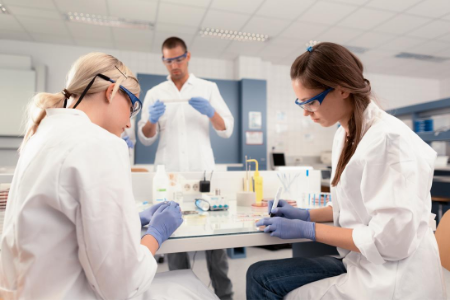
PhD vs. Master’s in Biomedical Science: What’s the Difference?
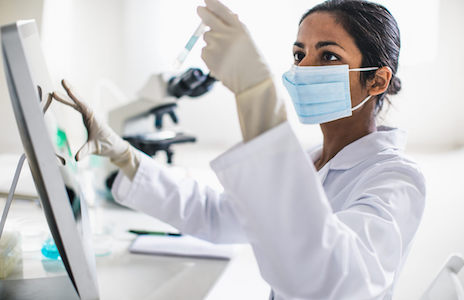
Top 8 Skills for Success in a Biomedical Science Career
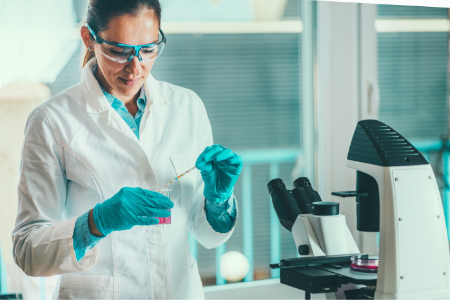
What Can You Do With a Master’s in Biomedical Science?
Be in-demand.
The global pharmaceutical market is expected to grow 7% to reach $225B by 2025, driving job growth for qualified professionals.
Graduate Programs in Pharmaceutical Sciences
Northeastern's pharmaceutical programs allow students to focus on more than one area in biomedical science to prepare them to work in an evolving and interdisciplinary field.
Most Popular:
Tips for taking online classes: 8 strategies for success, public health careers: what can you do with an mph, 7 international business careers that are in high demand, edd vs. phd in education: what’s the difference, 7 must-have skills for data analysts, in-demand biotechnology careers shaping our future, the benefits of online learning: 8 advantages of online degrees, how to write a statement of purpose for graduate school, the best of our graduate blog—right to your inbox.
Stay up to date on our latest posts and university events. Plus receive relevant career tips and grad school advice.
By providing us with your email, you agree to the terms of our Privacy Policy and Terms of Service.
Keep Reading:

Top Higher Education Conferences To Attend in 2024

Grad School or Work? How To Balance Both

Is a Master’s in Computer Science Worth the Investment?

Should I Go to Grad School: 4 Questions To Consider
Applying to Biomedical Research Programs
New section.
Learn about the process of applying to medical research programs.
A diligent, well-organized approach to applying to graduate school can help you gain admission to a program that best matches your professional goals.
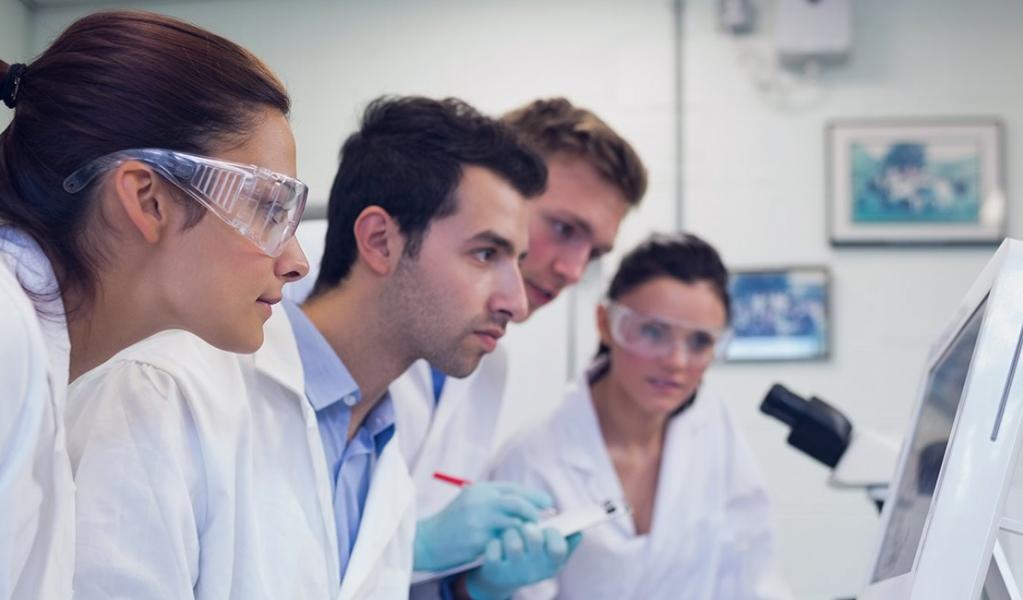
Mayo Clinic Graduate School of Biomedical Sciences offers world-class graduate education leading to Ph.D. and M.D.-Ph.D. degrees, as well as master's degree programs for Mayo Clinic residents and fellows.
We also offer a Summer Undergraduate Research Fellowship that introduces aspiring scientists to the world of biomedical research, along with other training opportunities for developing scientists.
We are committed to enhancing opportunities for traditionally underrepresented minorities in the sciences and offer numerous avenues to success for all students.
Ph.D. Program
Find an exciting environment of academic inquiry and scientific discovery, combined with exceptional intellectual and technological resources designed to help you achieve your highest scientific career goals. Choose from eight specialty tracks.
M.D.-Ph.D. Program
Develop the analytical skills of a basic scientist and the knowledge base of a physician in our collaborative M.D.-Ph.D. Program that prepares you to translate scientific discoveries into applications that improve patient care.
Summer Undergraduate Research Fellowship (SURF)
Immerse yourself in a research lab and work alongside established scientists to build your skills in this summer-long program for college students considering biomedical research careers.
Nephrology and Urology Summer Undergraduate Research Fellowship (nuSURF)
A 10-week, summer-long research experience that exposes future biomedical and clinical scientists to investigative careers in academic nephrology, basic nephrology, and urologic sciences.
Post-baccalaureate Research Education Program (PREP)
Progress toward a career in research in this mentored educational program designed to equip you with the tools you need to succeed.
Graduate Research Education Program (GREP)
Distinguish yourself as a budding scientist in this short-term opportunity designed to provide you with one to two years of research experience before applying to medical or graduate school.
Visiting Graduate Student Program (VGS)
Fulfill educational research requirements of the predoctoral (Ph.D.) or master’s degree program you are currently enrolled in at a U.S. or international academic institution in biomedical research.
Clinician-Scientist Academic Research Excellence Program (CARE)
A program designed for clinicians currently engaged in residency, fellowship, or other roles within Mayo Clinic who are passionate about delving deeper into the field of biomedical science research.
Explore our comprehensive academic catalog, offering a detailed overview of all course offerings.
Need guidance on a program? Get in touch.
- National Institute of General Medical Sciences

Research Training
Training and Career Programs
NIGMS’ Division of Training and Workforce Development (TWD) supports individuals and institutions that foster research training and the development of a strong and diverse biomedical research workforce through a variety of programs at the undergraduate, graduate, postdoctoral, and faculty levels. See the Current Programs in TWD page to learn more or use the search box below to find specific funding opportunities.

NIGMS Trainee Feedback Form
We welcome input from NIGMS trainees as we refine our existing programs and develop new programs to meet the emerging needs in biomedical research training. For example, if you have comments to improve our programs, or you would like to recognize an outstanding program for their training activities, please reach out. All feedback is welcomed and appreciated across the educational and career stages.
See Something, Say Something
Concerned about grant scams, fraud, research misconduct, harassment, foreign interference, or peer review violations? Learn about these different forms of misconduct and get in touch.

- Biophysics, Biomedical Technology, and Computational Biosciences
- Genetics and Molecular, Cellular, and Developmental Biology
- Pharmacology, Physiology, and Biological Chemistry
- Research Capacity Building
- Training and Workforce Development
- Contacts by Research Area
- Funding Opportunities and Notices
- Post Award Information
- Submitting an Application
- NIH RePORTER
- Dashboard of TWD Funded Programs
- High School and Undergraduate
- Postbaccalaureate and Graduate Students
- Postdoctoral, Early Career, and Faculty
- Workforce Development
- Contact Information
- Division Structure and Programs
- Enhancing Diversity in Training Programs
- Evaluation Resources
- Laboratory Safety and Guidelines
- Training Resources
- Institutional Development Award (IDeA)
- Native American Research Centers for Health (NARCH)
- Science Education Partnership Awards (SEPA)
- Support for Research Excellence (SuRE)
- DRCB Staff Contacts
- Current NIGMS Funding Opportunities
- Parent Announcements for Investigator-Initiated Applications
- Research Project Grants (NIH Parent R01)
- Research With Activities Related to Diversity (ReWARD)
- Maximizing Investigators' Research Awards (MIRA)
- Instrumentation Grant Program for Resource-Limited Institutions (RLI-S10)
- Undergraduate-Focused Institutions
- Small Business Research
- Multidisciplinary Teams/Collaborative Research
- Technology Development
- Research Resources
- Clinical Studies and Trials
- Conferences and Scientific Meetings
- Administrative Supplements
- All Funding Opportunities
- Which Research Grant Is Right for Me?
- How to Apply
- Grant Application and Review Process
- NIGMS Funding Policies
- Post-Award Information
- Talking to NIH Staff About Your Application and Grant
- Considerations for Multiple Principal Investigator (MPI) Applications
- Attribution of NIH/NIGMS Support
- Message to NIGMS Investigators
- Research Using Human Subjects or Specimens
- Data Management and Sharing Plan Expectations for NIGMS Grantees
- xTrain Quick Reference Guide
- STEM Teaching Resources
- Coloring Pages
- Educator's Corner
- Image & Video Gallery
- NIGMS-Supported Resources
- Protein Alphabet
- Biomedical Beat Blog
- Featured Topics
- Past Campaigns
- Past Releases and Announcements
- Media Coverage
- Feedback Loop Blog
- NIGMS Events
- Judith H. Greenberg Early Career Investigator Lectures
- DeWitt Stetten Jr. Lectures
- Webinars for the NIGMS Training Community
- Face to Face with Program Directors
- Grant Writing Webinar Series for Institutions Building Research and Research Training Capacity
- Image and Video Gallery
- Director's Corner
- Organization and Staff
- Staff Directory
- Budget, Financial Management, and Congressional Material
- Strategic Plans
- Data Integration, Modeling, and Analytics
- Advisory Council
- Communications and Public Liaison Branch
- Job Vacancies
- Visitor Information

Connect With Us: Instagram Linkedin Subscriptions YouTube
- Your Privacy
- Accessibility
- Disclaimers
- HHS Vulnerability Disclosure
- U.S. Department of Health and Human Services
- National Institutes of Health: NIH...Turning Discovery Into Health®
- 45 Center Drive MSC 6200
- Bethesda, MD 20892-6200
- 301-496-7301

- Family Health Center

Biomedical Science & Management Program
The Biomedical Science and Management (BSM) program is a Professional Science Master's (PSM) program that is a separate academic track within each of our six discipline-based biomedical science master’s programs: biochemistry and molecular biology, cell biology, microbiology and immunology, pathology, pharmacology and physiology.
In the BSM track, you are required to complete 36 academic credits to earn your M.S. degree. This total includes a minimum of 24 credits from a scientific curriculum of required and elective courses, and a minimum of 8 credits from a professional skills curriculum consisting of one required and several elective course options. In addition, students must complete an approved internship at a participating partner company or institution, culminating in a “capstone” report on the focal theme of that internship.
Why the Biomedical Management Program?
As with all our master’s programs, we prepare you for a career in one of our biomedical science disciplines either in academia or in the industry or not-for-profit sectors. The BSM track incorporates unique strategies for preparing you for such careers by including:
- Coursework related to business, management, communication skills, regulatory affairs and other topics important to career success.
- An internship experience to provide practical, hands-on exposure to career opportunities in the pharmaceutical, biotechnology or healthcare industries or related placements in the private sector.
Program Curriculum
In the BSM program you will matriculate into one of the six basic science master’s program tracks. Didactic courses are taken during the regular Graduate School evening sessions in the Fall, Spring or Summer, academic terms. Some elective professional skills courses are available through NYMC’s School of Health Sciences and Practice (SHSP), and some of these are available as online offerings.
You must apply for an internship position at an approved company, agency or institution. The capstone project is either a professional description and critical analysis of the internship project or, if this is precluded by proprietary concerns, a scholarly literature review.
Professional Skills Courses
The Life in Biomedical Research I course and Biomedical Sector Internship are required for all students enrolled in the program. You will also need to complete a minimum of six credits in any of our other professional skills courses.
Required Professional Skills Courses
Life in biomedical research i.
Life in Biomedical Research I & II jointly constitute a professional development course designed to introduce new students to aspects of science and a career in science not covered explicitly in other courses – e.g., learning about the different careers available to the scientist, oral presentation skills, data analysis and figure preparation, philosophy of science, basic grant writing (NIH F30/F31-style fellowships), and networking/communication skills. Broadly speaking, the overall goal of this course is to introduce students to what “they don’t know that they don’t know” about pursuing a career in research or other areas of science.
Internship in the Biomedical Sector
The internship is applicable for students who have a strong interest in gaining experience and practical skills in the biomedical industry, or in the health or not-for-profit sectors related to biomedical science. A defined internship project is carried out in a program-approved professional company or organization and can be composed of several components including the discovery, development, management, and commercialization of medical products. The intern will comply with all guidelines, policies, procedures and training required by the hosting company or organization. Following the internship, the student will prepare a written “capstone“ report and presentation on the assigned internship project that will be assessed by the hosting company/organization and departmental faculty.
Professional Skills Electives
Choose at least six credits:
Organizational Theory
This course will introduce students to the multidisciplinary field of managing organizations, including psychology, sociology, cultural anthropology, human resource management, social systems theory, organizational development (OD), and “learning organizations”. Students will develop expertise in analyzing behaviors and environments including the competitive landscape, macro and micro systems, and other dimensions that influence strategic planning, decision making, managing behaviors and leadership.
Health Economics
This course explores the concepts of scarcity, social choice, resource allocation, efficiency, investment, and market forces and their relationship to health services delivery and health policy. A variety of analytical principles and methods are examined and applied to issues including healthcare financing, cost containment, regulation, access, insurance, productivity, and program evaluation.
Law and Health
This course provides an overview of the legal system, legal issues, and the convergence of public health policy and the law, through analysis of contemporary topics.
Responsible Conduct of Research
This course examines basic principles that govern the responsible conduct of biomedical research. The course explores topics related to scientific integrity, collegiality, research subjects, institutional integrity and social responsibility. Students participate actively in the course through written critiques and analyses of assigned readings, in-class presentations, and group discussions.
Fundamentals of Animal Research
A comprehensive course studying laboratory animals from standpoints of care, management, handling, stress, spontaneous diseases, routine clinical pathology procedures and techniques pertaining to anesthesia, injections, breeding, euthanasia and necropsy. Additional Fee for laboratory supplies.
Student Seminar Series
Proficiency in interpreting primary literature and effective communication are essential skills for those involved in all areas of science and health professions. The 7100 series courses will equip students with the ability to critically read scientific articles and provide opportunities to practice both oral and written communication with their peers.
Biomedical Courses
You’ll matriculate into one of the six basic science master’s programs and take your remaining courses in one of these areas:
- Biochemistry and Molecular Biology
- Cell Biology
- Microbiology and Immunology
- Pharmacology
Admissions Criteria
There are no specific admissions criteria regarding minimum GPA or standardized test scores, but acceptance into corporate internship programs is a highly competitive process, and we seek candidates with strong academic records and other indicators of high potential for career success in the biomedical field. To apply, you will need:
- A baccalaureate or higher degree, prior to the start of the program, from an accredited U.S. college or university or from a recognized foreign institution.
- Official transcripts from all post-secondary institutions attended.
- Two letters of recommendation from professors or other professionals who can attest to the applicant’s abilities, character, motivation and potential, for a career in the biomedical sciences.
Biomedical Internship
The internship is a central feature of this program, and it’s a great opportunity for you to gain experience and practical skills in the biomedical industry, or in the health or not-for-profit sectors related to biomedical science. A defined internship project is carried out in a program-approved professional company or organization and can be composed of several components including the discovery, development, management and commercialization, of medical products.
As an intern, you will comply with all guidelines, policies, procedures and training, required by the hosting company or organization. Following the internship, you will prepare a written capstone report and presentation on the assigned internship project that will be assessed by the hosting company/organization and departmental faculty.
Internship Guidelines and Overview
Purpose The internship is applicable for students who have a strong interest in gaining experience and practical skills in biomedical industry, or in the health or not-for-profit sectors related to biomedical science. The internship provides students with a structured experience in a company or organization whereby they can apply the knowledge and skills acquired in the classroom and extend them to a professional work environment.
Requirement All BSM students will register and complete the three-credit, honors/pass/fail internship experience. In general, fulfillment of the course requirement should begin when the student has completed between 16 and 30 credits, and the student has obtained the approval of their academic advisor. The internship experience should be at least the equivalent of two months of full-time work. The internship can be done either in one semester or spread out over three semesters but must be completed within one year of registering for the internship. Students will keep a log of hours spent at the internship site. At the end of the internship, the student will prepare a written "capstone" report and presentation on the assigned internship project that will be assessed by the hosting company/organization and departmental advisers. Students will not be approved to graduate until all documentation for the internship is completed and approved by the Dean of the Graduate School and the Student’s Academic Advisor.
Types of Internship The internship experience can take many forms, all under appropriate supervision at the internship site and by school faculty. A defined internship project is carried out in a program-approved professional company or organization and can be composed of several components including the discovery, development, management, and commercialization of medical products. During the internship the student can be integrated into professional teams in existing projects as well as work on new projects. The intern will comply with all guidelines, policies, procedures and training required by the hosting company or organization.
If a student fulfills the internship requirement at his/her place of employment, the site supervisor cannot be the student’s immediate work supervisor and student needs to go “above and beyond his/her normal work duties”. The Site Supervisor should have a minimum of a Master of Science degree or a master’s degree in a related field, or the equivalent combination of education and experience. The Site Supervisor meets with the student on a regularly scheduled basis to provide guidance. The student and his/her Academic Advisor and the Site Supervisor will determine the place, scope, and duration of the internship ( Internship Agreement ). Students are required to submit an Internship Application to his/her Academic Advisor before they initiate their internship. The Academic Advisor and the Site Supervisor will need to sign the Internship Agreement form.
As an alternative, students may, with permission of their Academic Advisor, enroll in a 3-credit (minimum 2 months) research experience in a NYMC laboratory. The Internship Guidelines will be utilized for both the internship in-house research experience.
Internship Responsibilities
Student’s Academic Advisor
- Identifies students who are academically prepared to do the internship, facilitates their registration and communicates this information to the BSM Program Director.
- Communicates as needed with the student, the BSM Program Director, and the Site Supervisor to develop the Internship Application , Internship Agreement and Internship Report .
- Communicates with the BSM Program Director, the Site Supervisor and the student during the course of the internship to discuss progress and to resolve any problems as needed.
BSM Program Director
- Meets with students to develop an appropriate site where they can perform their internship that is relevant to their area of concentration.
- Reviews and provides feedback and instruction on the development of all internship through the internship workshop and meetings with students.
- Provides outreach and development of new internship sites, and supports proven high quality sites through ongoing site visits and utilization of evaluation reports.
- Develops the Placement Directory , a file of currently available internship opportunities and solicits new proposals annually and maintains contacts within the companies to encourage the submission of additional placement opportunities.
- Maintains contact with students, Site Supervisors and Academic Advisors throughout the internship to provide constructive feedback and resolve any issues that may arise.
- Sends a welcome email to the internship Site Supervisor with the Internship Guidelines and pertinent information attached. The student and the Academic Advisor are included in the communication.
Site Supervisor
- Provides a meaningful internship experience inclusive of organization chart, mission statement, and description of the company/organization.
- Provides a list of pertinent readings/articles or resource information germane to the internship project.
- Completes all necessary forms regarding the internship inclusive of the Internship Agreement and Site Supervisor Evaluation of Internship forms.
- Explains work rules and procedures, provides necessary resources for the project, and assists in establishing access to the various data systems to be used by the student.
- Communicates directly with the student and, as needed, with the BSM Program Director and the student’s Academic Advisor to discuss progress and resolve problems.
- Meet with his/her Academic Advisor to review their program plan, discuss timing, and obtain approval for registration for the internship course.
- Meet with the BSM Program Director after registering for the internship course to discuss internship placement.
- Provide an up-to date resume to the BSM Program Director.
- Communicate with the Site Supervisor, the BSM Program Director and the Academic Advisor to discuss progress and resolve problems during the internship experience.
- Complete and submit in the format provided in the Internship Guidelines and Course Site, all required deliverables ( Internship Application , Internship Agreement , Evaluation of Internship , log of hours , Internship Report , Student Evaluation of Internship, Site Supervisor Evaluation ) Students are responsible for obtaining the necessary signatures on all forms and submitting them to the BSM Program Director.
- Complete all required deliverables in a timely and accurate manner.
Internship Application
The Internship Application sets forth the proposed scope of the internship experience, including the objectives to be achieved by the student, specific learning competencies that will be attained, the proposed activities, and the timeline for deliverables. In preparing the Internship Application , student should work with their Site Supervisor, the BSM Program Director to ensure common understanding of the objectives and proposed activities of the internship.
Internship Report
The Internship Report summarizes the internship project. If the company allows the student to disclose the project details, then the Internship Report will describe the project, objectives, methods, results and the implications of the work. If the company does not allow the details of the project to be presented than the student will do a literature review, in the general area of the internship project. All students will give an oral presentation (Powerpoint) to a committee including their academic advisor, BSM Program Director and their departmental faculty and students.
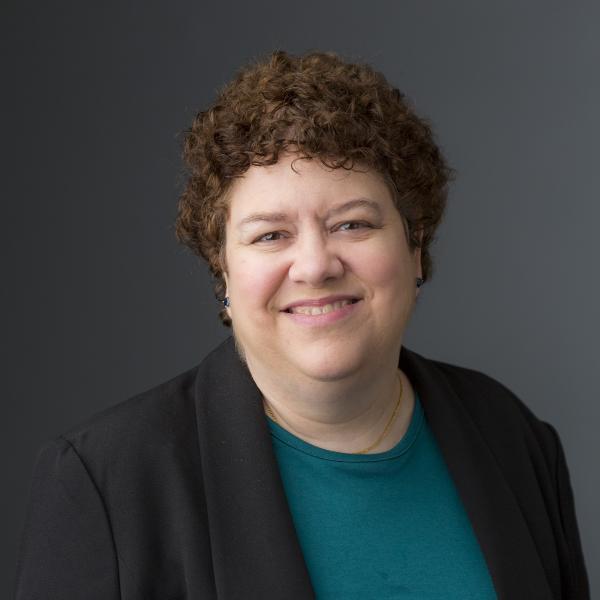
Dana G. Mordue, Ph.D.
- [email protected]
- (914) 594-4981
Affiliation

NYMC's Graduate School of Biomedical Sciences is affiliated with the National Professional Science Master's Association (NPSMA) , which is comprised of more than 150 academic institutions across the country.


- GRANTS & FUNDING HOME
- ABOUT GRANTS
- POLICY & COMPLIANCE
- NEWS & EVENTS
Division of Biomedical Research Workforce
- The Biomedical Research Workforce
- Reports on the Biomedical Research Workforce
- Extramural Diversity
- Undergraduate
- Graduate/Doctorate
- Postdoctoral/Residency
- Early Career
- Established Investigator
- Fellowships
- Career Development
- Other Training-Related
- Research Education
- Institute/Program Matrix
- Resources
Let NIH Help You in Your Research Career Goal toward Becoming a Research Scientist
Phd career with.
Interested in a career with research

Summer internship at NIH
Summer Internship Program at NIH
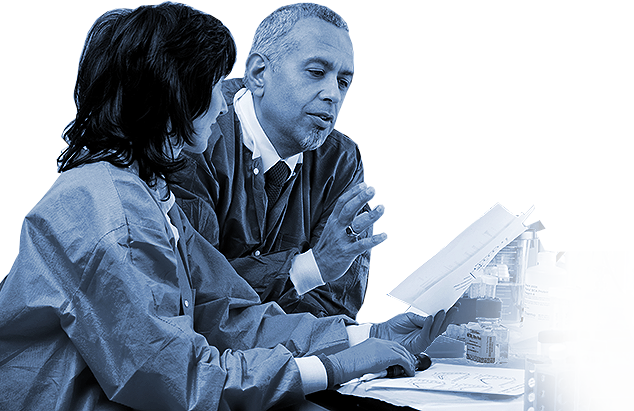
Summer research
The NIH provides funds to institutions for short-term research training for students interested in careers in biomedical, behavioral and clinical research. Learn More

Diversity related programs in science
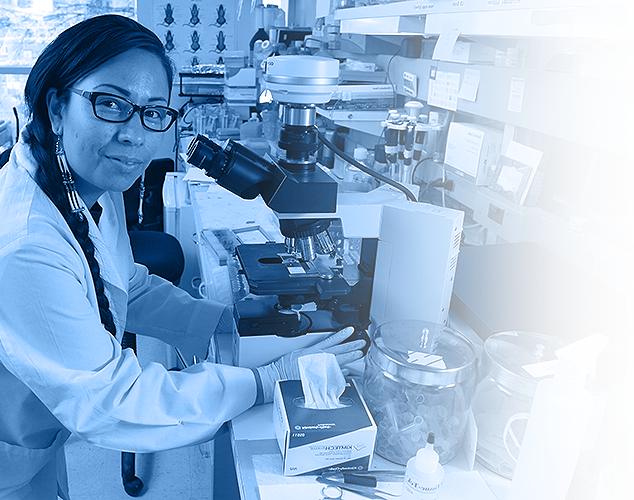
Postbaccalaureate program
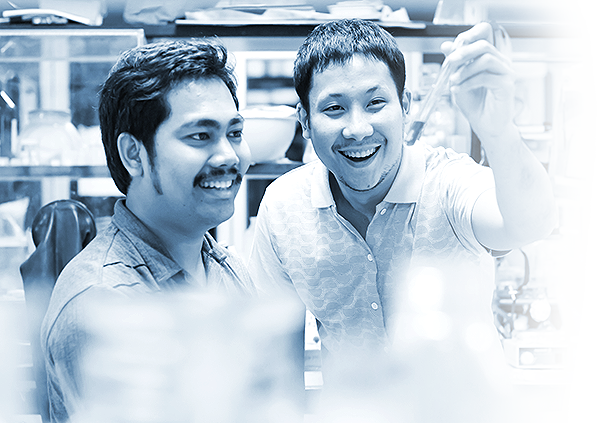
Explore research
Summer research NIH-T35
Short-term research training opportunities are available for students interested in careers in biomedical, behavioral and clinical research. Search for activity T35 award institutions in NIH RePORTER . Learn More
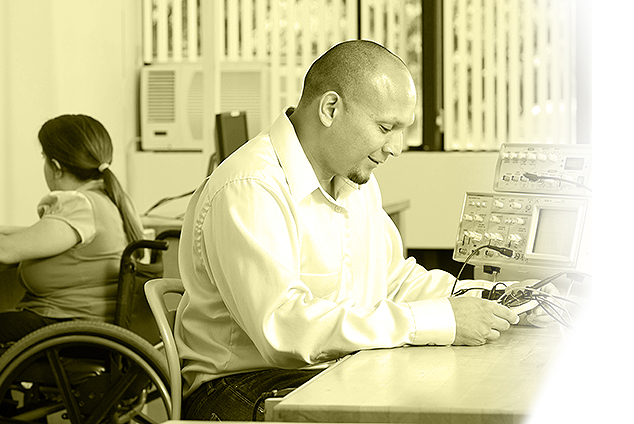
Consider careers NIH BEST
Consider careers
The NIH supports institutions piloting approaches to strengthen training and broaden experiences and exposure to multiple science careers.

Transition MS to PHD
The NIH makes institutional awards that successfully transition diverse students with a science MS through the research doctorate. Learn More
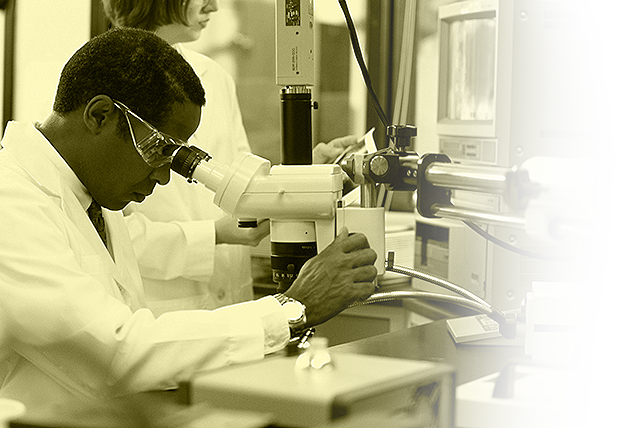
Full year research
The NIH provides institutions with outstanding research training programs with funds to support students in clinical and translational research. Learn more

Complete a PhD
Predoctoral training programs
The NIH supports institutions that offer outstanding research training leading to the doctorate in many biomedical areas. Learn more
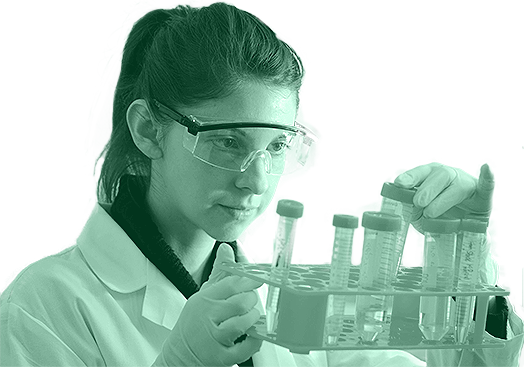
Graduate fellowship
Individual fellowships provide research training for graduate students and MD/PhD students in many fields. Consider preparing an application to support your research and training goals. Learn more
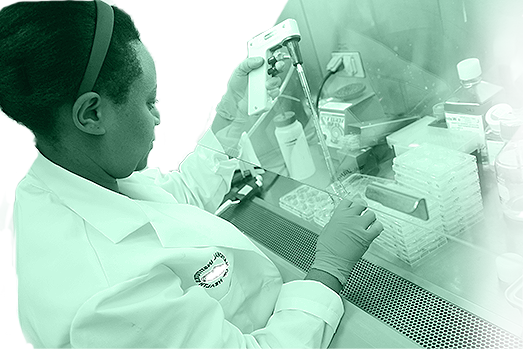
Graduate partnership program
The NIH supports graduate students from participating institutions the opportunity to complete dissertation research with researchers at the NIH campus. Learn more
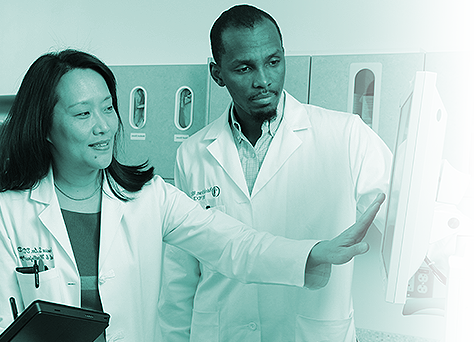
Graduate School

Postdoctorate Research
Postdoctoral training program
The NIH supports institutions that offer outstanding postdoctoral research training in selected biomedical areas. Learn more

Individual fellowship
Individual postdoctoral fellowships provide research training in many fields. Consider preparing an application to support your research and training goals. Learn more
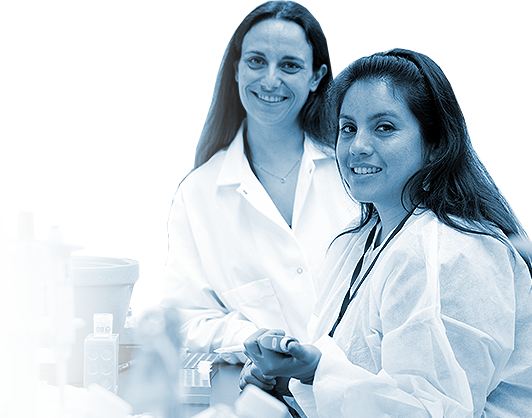
Career development program
NIH supports the timely transition of individuals from mentored postdoctoral research to independent research positions. Learn more
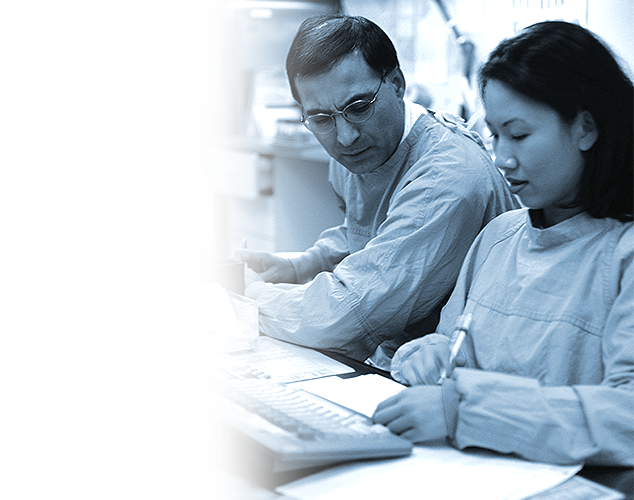
Research training career development
NIH supports institutional consortia that provide traditional mentored postdoctoral research coupled with mentored teaching assignments at partner institutions. Learn more
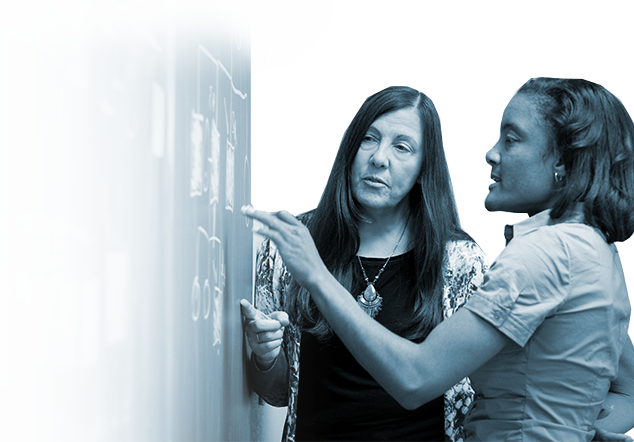
Loan repayment program
NIH will repay educational debt to researchers with a biomedical doctoral degree who engage in qualifying research. Learn more

Biotechnology/Pharmaceuticals SBIR/STTR
NIH supports small business awards to commercialize innovative biomedical technologies. Learn more

Research & Teaching Early, New Investigator
A number of NIH funding opportunities are available to those who identify as early (less than 10 years from doctorate) or new (never had substantial NIH award) investigators. Learn more
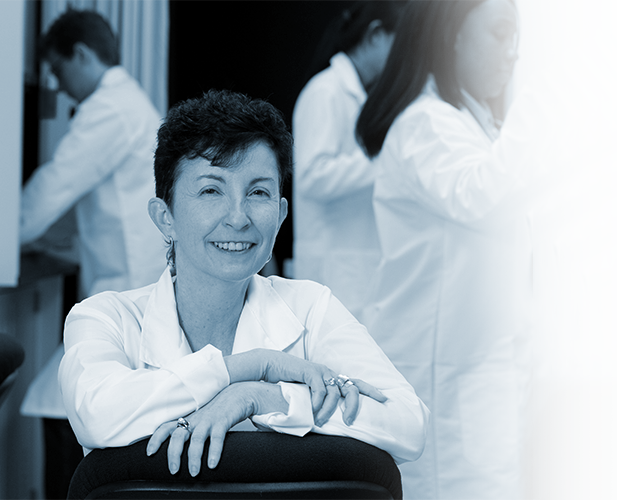
A Career as a Research Scientist
Conduct research on biomedical mechanisms, diagnosis and therapy, population and outcome medicine, health policy or health services
Work at Academic Health Centers, Hospitals, Federal laboratories, or Biotech/Pharmaceutical industry
Collaborate with a team of researchers
Multi-center clinical studies are supported by the NIH for clinical studies, interventional trials and observational studies, conducted at three or more centers. The NIH- R24 supports strong interdisciplinary research teams focused on innovative approaches to address current challenges.

Independent research project grants
The R01 provides support for health-related research that stems from an investigator or multi-investigator team. The R21 encourages exploratory/developmental research, usually proposed as a two-year project.

* Supplement to Enhance Diversity is applicable at all career levels
Home About DBRW Career Path Programs Institute/Program Matrix Resources FAQ HHS Vulnerability Disclosure Disclaimer Contact Us
NIH Grants and Funding National Institutes of Health U.S. Department of Health and Human Services USA.gov – Government Made Easy
Older Versions of this Page
MS in Biomedical Research Curriculum

The MBR program is designed to be completed in two years. MBR students will take graduate-level courses with PhD students while also working on an independent master’s thesis project.
Didactic Courses
In the first year students will take several core courses in fundamental science topics relevant for biomedical research including Graduate Biochemistry and Graduate Cell Biology. Students will also take foundational courses relevant to the discipline they have chosen for the MS degree.
Journal Club
Students will also enroll in a 1 st Year Student Master’s Journal Club. In addition to learning how to critically read and evaluate primary research papers, students will learn how to make clear and effective research presentations (poster and oral formats).
Lab Rotations and Thesis Research
Students will complete two 6 week lab rotations in the fall semester and select a thesis lab by the beginning of the spring semester. Thesis work will begin once the laboratory has been identified and may build on work done during one of the lab rotations. Students will choose a thesis lab from a large selection of potential faculty mentors in the GSBS program that matches their chosen discipline.
Students will have the option to take elective courses in a variety of advanced topics tailored to their field of study. Among the courses offered: Fundamentals of Neuroscience, Synapse Neurobiology, Neurobiology of Disease, Gene Expression and Signal Transduction, Introduction to Genetics, Mammalian Genetics, Biomedical Statistics and Computational Biology, Introduction to Immunology, Advanced Cellular Immunology, Inflammation and Chronic Inflammatory Diseases, Immunochemistry Signaling and Dynamics, Microbial Genetics and Microbiology, Host-Pathogen Interface/Bacterial Host Cell Interactions, and Animal Virology.
A full listing of courses available can be found in the GSBS catalog .
Thesis Research
Thesis research continues leading to the preparation and defense of an MS thesis.

An official website of the United States government
Here's how you know
Official websites use .gov A .gov website belongs to an official government organization in the United States.
Secure .gov websites use HTTPS A lock ( Lock Locked padlock ) or https:// means you’ve safely connected to the .gov website. Share sensitive information only on official, secure websites.

Strengthening the Biomedical Research Workforce
Program snapshot.
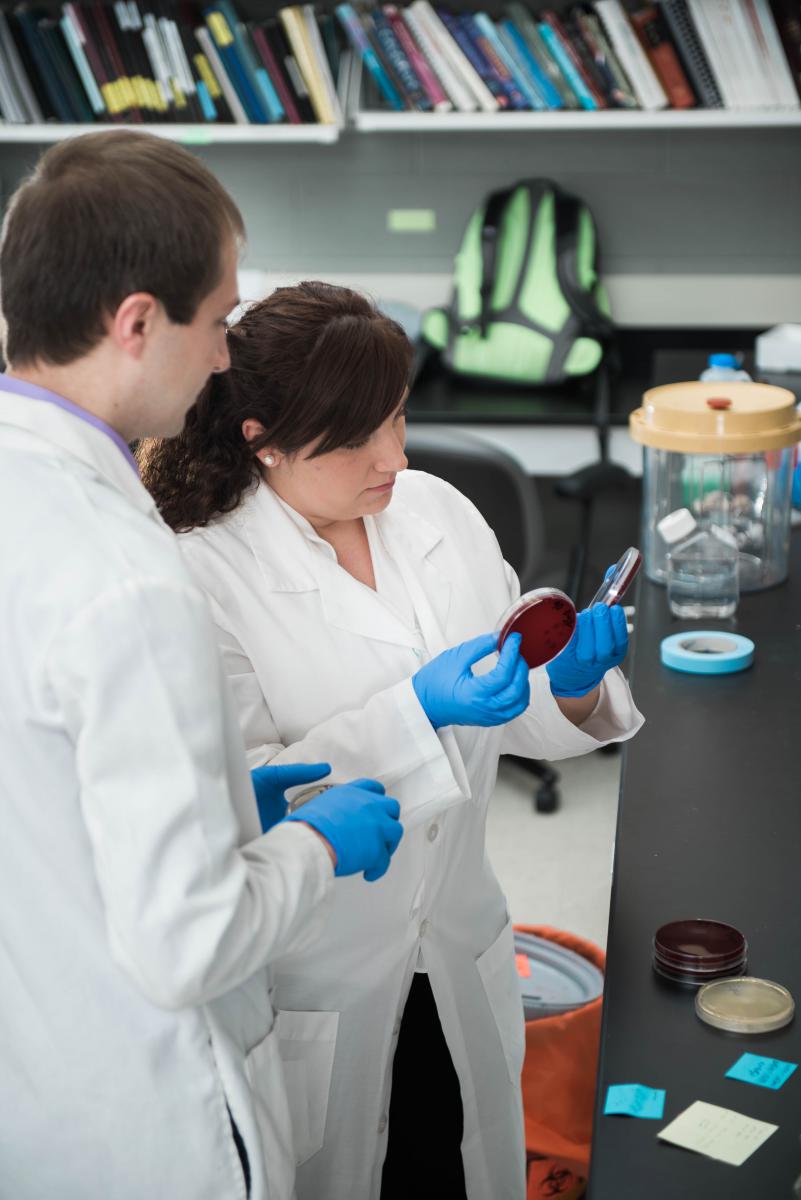
The Strengthening Biomedical Research Workforce program issued awards in September of 2013 and September 2014. These “Broadening Experiences in Scientific Training” awards (aka BEST awards) were designed to develop sustainable approaches to broaden graduate and postdoctoral training, aimed at creating training programs that reflect the range of career options that trainees may ultimately pursue. The awardee sites are also part of a comprehensive cross site evaluation designed to understand trainee agency, time to desired careers, and culture changes at academic institutions to support BEST activities.
In the second year of the program, the awardees collectively formed a consortium branded as the NIH BEST Consortium. Since then, several Consortium members published two marker papers, one on the origin of the program and early experiences and the other on describing overall approach to Transforming training to reflect the workforce . The awardees have made great strides since founding of the Consortium, including:
- Establishment of set of common principles guiding their individual BEST programs, a collaborative project policy, and developed c ommon sets of definitions for data collected by the NIH’s cross-site evaluation.
- The Consortium held a BEST practices workshop in 2017, to share best practices and lessons learned from the NIH BEST programs, and offer guidance on how to create, implement, and evaluate career and professional development opportunities for doctoral and postdoctoral scholars.
- BEST institutions have also led the way in recent efforts to track career outcomes and publish data about their graduate programs.
Awardees have publish initial findings from their site evaluations and more publications are expected as trainees progress to their chosen careers. As intended, each BEST program made great strides in sustaining its programing beyond the period of awards, with all awardees finding alternative funding to continue or incorporate BEST programming into their institutional infrastructure and culture.
Announcements
Broadening Career Knowledge and Awareness in the Future Biomedical Research Workforce
Career Development for Biomedical Research Trainees
Internships Aid Career Exploration
Faculty Support Career Development of Their Trainees
Survey Shows Highly Transferrable Skills and High Job Satisfaction for Science PhDs in Diverse Careers
Develop a "BEST" program!
The University of California-Irvine developed a toolkit to guide institutions through the process of building a presentation for a new career development program. Find out more here .
Five Years of Exploration: MSU BEST
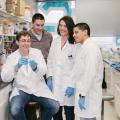
This page last reviewed on June 4, 2024
Masks Strongly Recommended but Not Required in Maryland
Respiratory viruses continue to circulate in Maryland, so masking remains strongly recommended when you visit Johns Hopkins Medicine clinical locations in Maryland. To protect your loved one, please do not visit if you are sick or have a COVID-19 positive test result. Get more resources on masking and COVID-19 precautions .
- Vaccines
- Masking Guidelines
- Visitor Guidelines
Pathway Programs
Summer internship program.
Applications for the 2024 cohort of the Summer Internship Program (SIP) are closed. We will open to accept applications for the 2025 cohort on November 1, 2024 .
2025 SIP will take place from Sunday, May 25 th – Saturday, August 2 nd .
Program Overview
The Summer Internship Program (SIP) provides experience in biomedical and/or public health research to current undergraduate students from all backgrounds - including students from racial/ethnic groups underrepresented in science and medicine, students from low-income/underserved backgrounds, and students with disabilities. The program provides research exposure for those interested in potential careers in science, medicine, and public health.
Participants gain both theoretical knowledge and practical skills in research, scientific experimentation, and other scholarly investigations under the close guidance of faculty or research mentors. SIP students take part in a range of professional and career development activities, networking events, and research discussions. Students also can present their work in oral or poster format at the conclusion of the program. In addition, SIP students often go on to present their summer research at national conferences throughout the year.
The program runs approximately ten weeks and student stipends range from $3,000 - $5,500. Housing is provided at no cost to participants.
Overall, SIP interns can expect an experience similar to that of a first-year graduate student who does a three-month rotation in a laboratory. SIP interns become acquainted with their lab’s scope exploration and investigative techniques. Before arrival, each SIP intern receives several papers related to their specific research project. Interns are assigned their own lab project, and the goal of the project and its relationship to other work in the area will be discussed. Participants also receive training in the techniques necessary to conduct their research activity. The projects that SIP students take on provide students a sense of ownership of their work. Besides daily interactions with others at the lab or project site, most teams have a more formal meeting once or twice a week to discuss research problems, work progress and developments reported in the scientific literature. While the focus of each research site varies, all are composed of highly dedicated mentors who are fully devoted to the professional development, advancement, and success of our SIP scholars.
This summer internship program requires a full-time commitment. It is not permissible to take academic classes or hold other employment during the internship. Students are required to participate for the full period of the program.
The Complete Application
There are multiple divisions of SIP, each providing a unique experience. Applying is free, there is no cost to the applicant. To apply to a SIP division, you will need:
- Two letters of recommendation (faculty and/or research mentors preferred)
- Transcripts for each undergraduate institution attended (transcripts can be unofficial)
- Current CV or resume
- Personal Statement*
- ( CSM-SIP applicants only ) Proof of family income
*The personal statement should be no longer than 1.5 pages, single-spaced using at least an 11-point font. There is no particular prompt for personal statements, but we encourage you to tell us more about yourself. For example: why you want or need to do summer research; the career goal(s) you have in mind; why you're motivated or interested in this type of career; what traits make you a good fit for a potential career in research; any past research experience (hypothesis? what you did/did it work? what you learned about this topic or yourself); and what kind of mentoring you would most benefit from during this experience at Johns Hopkins.
The deadline to apply is 11:59pm on February 1, 2024 . SIP divisions will inform applicants of admissions decisions by March 15th of the year that they are applying, though some divisions release decisions earlier than that date. For more information, contact us at [email protected] .
webinar Information Session
A Live Webinar event was held Saturday December 9th, 2023 from 2:00 - 3:30 PM EST on information about our Undergraduate STEMM programs at Johns Hopkins, for Summer 2024.
Summer Internship Program Opportunities
There are 15 distinct research opportunities available under the SIP umbrella. Each branch of the Summer Internship Program is administered separately and supports different stipend levels, with some additional tailoring of program content to fit each division’s focus. You may apply to up to three divisions.
Basic Science Institute (BSI-SIP)
BSIP-SIP in the Dean-funded “umbrella program” of the Summer Internship Program divisions, incorporating opportunities research in all our basic science departments: Biological Chemistry; Biomedical Engineering; Biophysics and Biophysical Chemistry; Chemistry/Biology interface; Cell Biology; Molecular Biology and Genetics; Molecular and Comparative Pathobiology; Neuroscience; Pharmacology and Molecular Sciences; and Physiology.
Past BSI-SIP Scholars have participated in a broad array of projects from molecular and cellular analysis of the aquaporin water channels, molecular genetic basis of Down syndrome, genomics, neurobiology of disease, applications of polymeric biomaterials to drug delivery, gene therapy, and tissue engineering.
On top of an experience filled with substantive hands-on research, program activities include one-on-one mentorship from current graduate student mentors, journal club participation, and a range of professional development workshops and seminars on topics that include preparation for graduate studies and navigation of scientific careers. The program concludes with presentations by BSI-SIP scholars at a closing research symposium.
In addition to the opportunities mentioned above, BSI-SIP has affiliated sub-programs focused on neuroscience and/or translational research. Students participating in these programs will be invited to BSI-SIP programming and housed with BSI-SIP students, while also enjoying some additional field-specific programming:
NeuroSIP and KavliSIP
Summer interns in the NeuroSIP program are hosted in laboratories of the primary faculty of the Department of Neuroscience. Please see the departmental website for brief descriptions of the projects of previous NeuroSIP interns. KavliSIP summer interns are hosted in the laboratories of the Kavli Neuroscience Discovery Institute at Johns Hopkins (Kavli NDI). Kavli NDI bridges neuroscience, physics, data science, computational neuroscience and engineering to solve the mysteries of the brain. KavliSIP supports summer internships for undergraduate students considering graduate studies in neuroscience, engineering, data science and related areas. In addition to general SIP programming, KavliSIP and NeuroSIP students enjoy neuroscience-focused programming and other content designed to help them delve deeper into this exciting field of study.
Summer Undergraduate Research Experience (SURE)
Summer interns in the SURE program will join labs at the Brady Urological Institute at Johns Hopkins to perform research in prostate cancer, bladder cancer, and kidney cancer. As basic research labs within a clinical department, students will be involved in research that can directly impact how patients are treated, known as “translational research.” In addition to their research experience and SIP programming, interns will also have the option to interact with clinicians, including opportunities to shadow Urologists in the operating room, Medical Oncologists in clinic, and explore other basic, translational, and clinical research careers and observe how clinical observations can influence research being done at the bench. The SURE program was founded to provide research opportunities to undergraduate researchers in an academic environment that would not typically be available to them with the hope to provide an avenue to achieve their goals or dreams. The program strongly encourages applications from students who are first-generation college students, come from disadvantaged economical statuses, and students from racial and ethnic groups historically underrepresented in science.
BSI-SIP, SURE, NeuroSIP and KavliSIP eligibility
All BSI-SIP applicants must have a demonstrated interest in the pursuit of graduate study toward a PhD or MD-PhD degree. BSI-SIP applicants must have completed at least two years of college by the start of the summer program. BSI-SIP is open to US citizens, permanent residents, and international students currently enrolled in college in the United States.
SURE scholars should have an interest in cancer and/or urology-related research, and have some curiosity about in the intersection of clinical care and benchwork (commonly referred to as translational research). SURE applicants must have completed at least two years of college by the start of the summer program and must be US citizens or permanent residents to apply.
The NeuroSIP and KavliSIP programs prefer candidates on the PhD track, without an interest in pursuing clinical medicine. Students applying to NeuroSIP or KavliSIP must have completed at least one year of college by the start of the program and must be US citizens or permanent residents to apply.
Students interested in being considered for SURE, NeuroSIP or KavliSIP must choose BSI-SIP on their application and then select the SURE, NeuroSIP and/or KavliSIP options when they appear. You will still be considered for the BSI-SIP parent program as well.
Careers in Science and Medicine (CSM-SIP)
The Careers in Science and Medicine Summer Internship Program is the undergraduate component of the Johns Hopkins Initiative for Careers in Science and Medicine . The CSM Initiative seeks to partner with scholars from low-income and educationally under-resourced backgrounds to help them build the accomplishments, skills, network, and support necessary to achieve advanced careers in biomedical research, clinical medicine, public health, nursing, and/or STEM professions. Scholars spend 10 weeks conducting high level research with a faculty mentor, and receiving guidance on financial planning, graduate school applications, and career exploration while enjoying lunches and other events with faculty specializing in a wide variety of science and health related areas of study.
In addition to the opportunities described above in the parent program, CSM-SIP has an affiliated sub-program that allows students to do research in labs affiliated with the Molecular Microbiology and Immunology (MMI) department in the Bloomberg School of Public Health. Summer Interns in CSM-SIP-MMI can expect to work on projects ranging from characterizing mechanisms of host-pathogen responses, to examining malarial life-stages for therapeutic development, including analysis of viral evolution leading to epidemics and pandemics, and therapeutic development exploiting antibodies and conjugate vaccines. Centering around immunology, immunological responses to pathogens, and the basic characterization of microbes, research in the MMI department bridges many disciplines and aims to prepare students for futures as physicians, clinical researchers, and other STEM public health and research professions. CSM-SIP-MMI interns work with MMI faculty, post-docs, and graduate students and receive additional mentoring from MMI faculty.
CSM-SIP and CSM-SIP-MMI Eligibility To be considered low-income for our program, your household or family income must be under 200% of the federal poverty limit , which is defined in part by the number of members in the household . We require applicants upload the first 2 pages of their family’s 2021 or 2022 tax return in order to verify you meet income guidelines (feel free to remove social security numbers when you upload) or two consecutive pay stubs. If providing tax returns or pay stubs is prohibitive, please contact us at [email protected] .
Eligible scholars must also be educationally under-resourced , and can meet this eligibility requirement by fitting any ONE of the following criteria: (a) first-generation college student, or (b) from a single-parent household, or (c) attended (or would have attended, based on where you lived) a high school where the majority of students are from low-income households, or (d) have a diagnosed physical, mental, or learning-related disability. There are additional ways to meet this eligibility; to discuss, please contact the SIP team at [email protected] .
Students also must have completed at least one year of college by the start of the summer program and be a U.S. citizen or permanent resident to qualify.
Students interested in being considered for the CM-SIP-MMI sub-program must choose CSM-SIP on their application and then select the MMI option when it appears.
Diversity Summer Internship Program at the Bloomberg School of Public Health (DSIP)
This program , through the Johns Hopkins Bloomberg School of Public Health, a leading international authority on public health, is dedicated to protecting health and saving lives. Every day, the School works to keep millions around the world safe from illness and injury by pioneering new research, deploying its knowledge and expertise in the field, and educating tomorrow’s scientists and practitioners in the global defense of human life. At the Bloomberg School of Public Health, you will be mentored by some of the world’s leading authorities on public health issues. Some of our major research initiatives are in these areas: improving the health of women and children; identifying determinants of behavior and developing communication programs to promote healthy lifestyles; protecting our nation from bioterrorism; preventing and controlling AIDS; reducing the incidence and severity of injuries; elucidating the causes and treatment for mental disorders; preventing chronic diseases (heart diseases, stroke, cancer, diabetes); improving the health of adolescents; preventing and treating substance abuse; assessing the effect of environmental toxins on human health; making water safe and available for the world’s population; assessing the health needs of disadvantaged populations (rural, urban, refugees, US ethnic groups); and developing methods to better understand, manage and finance health care. Your research opportunity may take place in a laboratory, health department, clinic, office, or in a community setting.
DSIP Eligibility
Students must have completed two years of college by the start of the summer program and be a U.S. citizen or permanent resident to apply. Preference is given to students who have one or two years of undergraduate study remaining and seniors who have applied to a graduate program in the Bloomberg School of Public Health.
Generation Tomorrow: Summer Health Disparity Scholars (GT-SIP)
Generation Tomorrow and the Johns Hopkins Center for AIDS Research (CFAR) are pleased to host Generation Tomorrow: Summer Health Disparity Scholars . The program is intended for undergraduate students interested in HIV and/or hepatitis C virus (HCV) health disparities and their intersection with substance use (addiction and overdose), violence, mental health, and the social determinants of health. The program will offer mentorship and training in HIV/HCV education, testing, and counseling; health disparities, cultural competence, and harm reduction. Through a lecture series, the program will also explore the intersection of HIV and/or HCV health disparities with the areas defined above. This program will have a special focus on undergraduate students interested in nursing, public health, science, and medicine. The program will consist of the following components:
- Intensive HIV and HCV testing and counseling training
- Biweekly lecture series
- Health disparities related research (clinical, health services, biomedical) with a designated faculty mentor
- Community-based outreach
GT-SIP Eligibility
The Generation Tomorrow division has a special focus on undergraduate students interested in nursing, public health, science, and medicine. Students must have completed at least one year of college by the start of the summer program and be a U.S. citizen or permanent resident to apply.
Genomics & Society Mentorship Program (GMSP)
Established in 1995, the mission of the Berman Institute of Bioethics is to “identify and address key ethical issues in science, clinical care, and public health, locally and globally.” The Berman Institute trains and mentors future leaders in bioethics through programs such as the undergraduate minor in bioethics, the Master of Bioethics Program, the Ph.D. concentration in bioethics and health policy, and the Johns Hopkins-Fogarty African Bioethics Training Program. The goal of the Genomics and Society Mentorship Program (GSMP) is to broaden the diversity of Ethical, Legal and Social Implication (ELSI) researchers in the interest of equity, ultimately enriching ELSI scholarship by giving trainees opportunities to learn skills, be exposed to the range of possible training and career options in ELSI research, and with the guidance of a faculty mentor, work on issues in genomics and society. Summer trainees will be offered two types of formal, didactic research education opportunities: the first is a workshop/seminar designed specifically for them and their cohort; and the second is the opportunity to take foundational courses in the Berman Institute’s existing Summer Institute. These are in addition to those activities available to all SIP students, such as weekly journal club and the bimonthly seminars and professional development sessions. By the end of summer, students will be expected to be able to identify morally relevant issues in science, medicine, research and public health, and to engage in sound reasoning about those issues. Participants will develop these core skills through exposure to foundational bioethics methodologies, the application of those skills and methodologies to important historical and contemporary cases, and to participants’ own interests. Following the summer internship, the program will continue, remotely, until the following summer, with quarterly cohort meetings and mentorship and career development opportunities.
GSMP Eligibility
Applicants must be full-time college students, who will have completed at least one full year of collegiate study by the start of the program. Recent college graduates are not eligible to apply. Applicants must be U.S. citizens or permanent residents.
Institute for Cell Engineering (ICE)- The Foundation for Advanced Research in the Medical Services Internships (FARMS)
Opportunities in the Institute for Cell Engineering (ICE) on one of our four program areas: Vascular Biology, Stem Cell Biology, Immunology or Neuroregeneration. Program participants may participate in a broad array of projects from computational biology, gene regulatory networks, immune system development, lymphoid malignancies, molecular and cellular mechanisms of oxygen regulation, molecular and cellular signals controlling neurodegeneration, neurogenesis, single cell biology, stem cell modeling, gene and stem cell therapies, MRI cell tracking techniques, or stem cell engineering. The rich environment and guidance by our faculty helps prepare students for successful careers as independent research scientists. Interns are expected to participate in all student related activities in ICE, conduct research and write a small progress report at the end of their internship or present their work in a poster session at the end of the program. This is a ten-week program that includes housing and a stipend.
FARMS Eligibility
Students must have completed two years of college by the start of the summer program and be a U.S. citizen or permanent resident to apply. The FARMS program is looking for at least a 3.8 GPA and focusing on students that do not have access to in-depth research at their current institution.
Institute for Computational Medicine (ICM)
Founded in 2005, the mission of the Institute for Computational Medicine is to develop mechanistic computational models of disease, personalize these models using data from individual patients, and apply them to improve disease diagnosis and treatment. ICM researchers work in four different application areas. Computational Molecular Medicine seeks to understand the function of highly interconnected molecular networks in health and disease. This knowledge is applied to enhance discovery of molecular disease networks, detection of disease, discrimination among disease subtypes, prediction of clinical outcomes, and characterization of disease progression. Computational Physiological Medicine seeks to develop highly integrative mechanistic models of biological systems in disease, spanning from the levels of cells to tissues and organs. These models are personalized using patient data and apply them to improve disease diagnosis and treatment. Computational Anatomy is an interdisciplinary area of research focused on quantitative analysis of variability in biological shapes in health and disease. It is applied to imaging data to develop anatomic biomarkers for disease diagnosis. Computational Healthcare analyzes large-scale data sets from the electronic health record to discover new ways of improving individualized patient care.
The twenty ICM core faculty are appointed in departments of the Whiting School of Engineering, School of Medicine, and the Bloomberg School of Public Health. Our interdisciplinary labs offer students the opportunity to work with faculty in these four different research areas. Opportunities exist to work on computational, as well as combined computational and experimental/clinical studies. At the end of the summer, the student will present their work at a university-wide poster session. This internship provides a unique opportunity to gain research experience in the emerging discipline of computational medicine and would be of great benefit to those interested in pursuing graduate research in this area or in attending medical school.
ICM Eligibility
The Institute for Computational Medicine is dedicated to providing opportunities to students that are underrepresented in STEM. This internship is in partnership with the Johns Hopkins Vivien Thomas Scholars Initiative and will have a special focus on students currently attending an HBCU or MSI. Please click here to see the complete list of eligible universities and colleges.
Students must have completed at least one year of college by the start of the summer program and be a U.S. citizen or permanent resident to apply. Students majoring in computer science, engineering, mathematics, chemistry, biology and/or biophysics are eligible. While not required, we seek candidates with some combination of experiences in scientific or academic research (C++/Python/*nix/databases, software engineering, object-oriented programming, and/or collaborative development).
Institute for NanoBioTechnology - Nanotechnology for Biology and Bioengineering Research Experience for Undergraduates (INBT-REU)
The INBT has a unique model for training researchers at the interface of nanoscience, engineering, biology, and medicine to uncover new knowledge and create innovative technologies. Our laboratories are interdisciplinary and offer students research opportunities in both the physical sciences/engineering and biological sciences/medicine. We recruit students from many undergraduate majors including biology, bioengineering, biomedical engineering, biophysics, cell biology, chemistry, chemical engineering, material science and engineering, and physics. Students in the program are co-advised by faculty and senior lab personnel, and work on current graduate level projects in various research areas such as nanotechnology, biomaterials, nanoparticles, microfabrication, tissue engineering, stem cells, drug delivery, particle synthesis, lab-on-chip devices, and cancer research.
During the program, students conduct research, attend educational and professional development seminars, and participate in social activities. At the end of the summer participants create a PowerPoint and poster of their research to present to the INBT community and at a university-wide symposium. The program’s goal is to give undergraduates a true perspective of graduate research with the hope that the experience will inspire pursuits of a PhD. The sponsor, National Science Foundation, provides housing, travel, and a stipend.
INBT-REU Eligibility
Students must have completed one year of college (i.e., freshman) and be a U.S. citizen or Permanent Resident to apply.

The Johns Hopkins NeuroHIV Comorbidities Scholars Program (JHNeurophytes)
The Johns Hopkins NeuroHIV Comorbidities Scholars Program (JHNeurophytes) aims to recruit and train highly qualified first or second year undergraduate students in STEM degree programs from across the nation with special emphasis on those who reside in regions where the incidence/prevalence of HIV/AIDS infection is high or has newly appeared.
For 10 weeks during the summer, on a multi-year basis, trainees will have the opportunity at JHU to learn about and/or engage in leading edge hands-on basic, translational, clinical or computational research in a vast array of specialties including: HIV-neuropathogenesis; stress/inflammation and HIV cognition, neuroHIV and CNS reservoir, neuroHIV and drug abuse, neuroHIV and comorbidities of aging, analytical concepts in Big Data, bioinformatics, and computational neuroscience. By program completion, successful undergraduate trainees will have completed several oral podium and poster presentations at scientific conferences on and off of campus, and made contributions toward scientific publications. Combined with a program of professional development and mentorship sessions, our trainees will have gained, developed and strengthened their science: -skills, -identity, and -self-efficacy to succeed in an academic research or clinician-research career pathway. Our long-term goal is to strengthen pathways to the biomedical workforce focused on research and clinical care at the interface of HIV-neurologic dysfunction and associated comorbidities. Additionally, alumni will have developed competencies to address ongoing and emerging threats to human health and well-being.
JHNeurophytes Eligibility: Students eligible for the program must be U.S. citizens or legal residents who will be accepted into or are enrolled in a nationally accredited college or university by the beginning of the program (graduating high school seniors, 1 st or 2 nd year undergraduates). To promote a diverse pool of applicants and selected scholars, we strongly encourage individuals from the following groups to apply: students who are underrepresented in STEM, female students, students who identify as LGBTQ+, first-generation college students, students with a disability, or students from an economically disadvantaged background, as described in Notice of NIH's Interest in Diversity.
Johns Hopkins Neuroscience Scholars Program (JHNSP)
The Neuroscience Scholars Program focuses on providing mentorship along with a high quality research experience for undergraduates from underrepresented and/or deaf or hard-of-hearing (D/HH) backgrounds that are interested in pursuing research-based PhD or MD/PhD programs in the neurosciences. JHNSP will help students navigate two critical transition periods: from high school to college, and from college to graduate school. Participants also enjoy yearlong contact with our community of mentors and colleagues.
For 10 weeks during the summer, trainees will have the opportunity at JHU to learn about and/or engage in leading edge hands-on basic, translational, clinical or computational research in a vast array of specialties including: neuropathogenesis of disease; neuroinflammation, neurological basis of mental health, drug abuse and cognitive impairments, CNS biochemistry, analytical concepts in Big Data, bioinformatics, and computational neuroscience, and more. By program completion, successful undergraduate trainees will have completed several oral podium and poster presentations at scientific conferences on and off of campus, and made contributions toward scientific publications. Combined with a program of professional development and mentorship sessions, our trainees will have gained, developed and strengthened their science: -skills, -identity, and -self-efficacy to succeed in an academic research or clinician-research career pathway. Our long-term goal is to strengthen pathways to the biomedical workforce to increase diversity of thought and insight, as well as support our scholars’ long-term engagement in neuroscience research. Additionally, alumni will have developed competencies to address ongoing and emerging threats to human health and well-being.
JHNSP Eligibility: Students eligible for the program must be U.S. citizens or legal residents who will be accepted into or are enrolled in a nationally accredited college or university by the beginning of the program (graduating high school seniors, 1 st or 2 nd year undergraduates). To promote a diverse pool of applicants and selected scholars, we strongly encourage individuals from the following groups to apply: students who are underrepresented in STEM, female students, students who identify as LGBTQ+, first-generation college students, students who are deaf/hard of hearing or with another disability, or students from an economically disadvantaged background, as described in Notice of NIH's Interest in Diversity.
Johns Hopkins Summer Undergraduate Program in Kidney Science (SUPerKS)
Kidney researchers and physicians are critically needed to address the skyrocketing burden of kidney disease, and the racial disparities that are associated with it, with African American persons developing severe forms at rates 3-4 times higher than those in other racial groups. The S ummer U ndergraduate P rogram in K idney S cience (SUPerKS) provides talented students the unique opportunity to explore research and physician-scientist careers in the kidney field with exposure to the practice of medicine. During the summer internship, students will work under the mentorship of esteemed faculty on cutting-edge research projects to unravel how the kidney functions in health and goes awry in kidney disease. Research projects span from the basic science of kidney genes to studying kidney function in genetically engineered mice, or cell models; clinical and epidemiological studies of kidney disease; studying biomarkers in human cohorts; tissue engineering; to developing biosensors or nanotechnologies that specifically interrogate kidney physiology and disease mechanisms. As a key aspect of the program that helps demonstrate translation of the research work, a clinical experience is provided, where students round with kidney doctors (nephrologists), meet patients, and discuss diagnoses and treatment plans. In addition to the research and clinical experiences, students participate in a weekly journal club, presenting research articles to their peers and members of the faculty. Students also attend a seminar series featuring faculty members from Johns Hopkins, providing time to interact with faculty members and hear different perspectives about research, clinical practice, and career development. At the end of the summer, students present their work in a poster session with other kidney programs around the country. We hope that through these activities students will gain first-hand knowledge of research and academic medicine, and ultimately pursue careers in the kidney sciences.
SUPerks Eligibility:
- At least one year of college
- 1 semester of general chemistry and biology (or AP equivalents)
- At least 18 years old
- official college transcripts, GPA should be greater than 3.0
- 2 letters of recommendation,
- a personal statement describing career goals, specific research interests, prior research experiences, and biographical and demographic information.
To apply, please email Paul Welling [email protected] to request an application.
Pulmonary and Critical Care Medicine (PCCM)
Students in the Pulmonary and Critical Care Medicine (PCCM) division work on specific research projects under the supervision of an assigned mentor. Projects span a broad range of research, from the basic science of endothelial or epithelial cell biology to asthma epidemiology. In addition to the research experience, students participate in a weekly journal club during which they present primary research articles to their peers and members of the faculty. Students also attend a seminar series featuring faculty members from Johns Hopkins and the NIH. This forum provides students with the opportunity to interact with faculty members and hear different perspectives on issues related to career development. Students interested in clinical medicine are given the opportunity to “round” with the Johns Hopkins Medicine residents, providing a glimpse of life in clinical medicine as a resident at an academic institution. At the end of the summer, students present their work in a poster session. We hope that through these activities students will gain first-hand knowledge of research and academic medicine, and ultimately pursue careers in the biomedical sciences.
PCCM Eligibility
Students must have completed one year of college by the start of the summer program (i.e., freshman) and be a U.S. citizen or Permanent Resident to apply.
Rosetta Commons Research Experience for Undergraduates (Rosetta REU)
The Rosetta Commons REU program is a cyberlinked program in computational biomolecular structure and design. The Rosetta Commons software library includes algorithms for computational modeling and analysis of protein structures, which has enabled notable scientific advances in computational biology, including de novo protein design, enzyme design, ligand docking and structure prediction of biological macromolecules and macromolecular complexes. Participants in this program are placed in laboratories around the United States and even abroad. The program begins with students spending one week together at Rosetta Code School where they learn the inner details of the Rosetta code and community coding environment. Students spend the next eight weeks at their host laboratory conducting hands-on research in a molecular modeling and design project, developing new algorithms and discovering new science. In the final week students present their research in a poster and connect with Rosetta developers from around the world at the Rosetta Conference.
The sponsor, National Science Foundation, provides housing, travel, a sustenance allowance, and a stipend.
Rosetta REU Eligibility
Current sophomores or juniors majoring in computer science, engineering, mathematics, chemistry, biology and/or biophysics are eligible. While not required, we seek candidates with some combination of experiences in scientific or academic research, C++/Python/*nix/databases, software engineering, object-oriented programming, and/or collaborative development.
Partner Programs
As summer research programs are increasingly competitive, it is advisable to apply to several summer opportunities. We have partnerships with the following non-JHU summer programs that permit you to do your summer research at Johns Hopkins:
- The Leadership Alliance Leadership Alliance is consortium of 20+ leading research institution around the country. Their Summer Research – Early Identification Program (SR-EIP) is geared towards students who want to pursue PhDs or MD-PhDs.
- EntryPoint! EntryPoint! identifies and recruits students with apparent and non-apparent disabilities studying in science, engineering, mathematics or computer science for outstanding internship and co-op opportunities.
- NIDDK STEP-UP This program funds students for summer research internships at the institution of their choice.
- MCHC/RISE-UP Though not directly under the SIP umbrella, the Maternal Child Health Careers/Research Initiatives for Student Enhancement - Undergraduate Program (MCHC/RISE-UP) allows students with an interest in public health and to do research at Johns Hopkins through the Kennedy Krieger Institute.
Summer Undergraduate Research Fellowship (SURF) in Gynecology & Obstetrics (GYN/OB) Program (returning in 2025)
The SURF GYN/OB Program at Johns Hopkins offers rising junior and senior undergraduate students from across the country with interest in pursuing a career as a physician-scientist, the opportunity to work closely with faculty and leadership in the Department of Gynecology and Obstetrics at Johns Hopkins Hospital. This program is designed for students to gain the valuable, necessary skillsets in preparation for a career as a physician-scientist by: 1) shadowing in the clinic, wards, and operating rooms and 2) conducting research on a project that focuses on a subspeciality of Women’s Health. Additionally, SURF fellows will attend lectures and workshops aimed at enhancing preparedness for medical school.
SURF GYN/OB Eligibility:
Rising juniors and seniors in good academic standing with interest in OBGYN career as a physician-scientist.
For more information, contact [email protected]
Looking for a year-round opportunity for clinical research?
Clinical trials core internship program (oto-ctc ip).
Program Overview:
The Department of Otolaryngology, Head and Neck Surgery: Clinical Trials Core Internship Program (OTO-CTC IP) provides experience in everything related to clinical research/trials including regulatory, data management and patient-facing clinical experience. There are also opportunities for limited work in the lab. This role is available year-round, and flexible to student schedules.
Students in this role will gain experience in clinical trials design and execution from start-up to close out. Under the guidance of faculty and staff, students will be able to take an active role in data input, patient screening, patient observation, reporting outcomes to the IRB and FDA, and basic laboratory responsibilities. In addition, students can meet with the director of the clinical trials core for professional development and/or Pre-med mentoring.
Complete application:
Applying is free, there is no cost to the applicant. To apply, email Internship Program Coordinator Jordan Smith using [email protected] or [email protected] with the following information:
- a CV or resume
- your ideal timeline for the internship
- the school where you are currently enrolled
- New releases
- All articles
- Give feedback
- Meet the team
- Our impact and credibility
- Our mistakes
- Work with us
Biomedical research
On this page:.
- Introduction
- 1 What is this career path?
- 2 How did we research this career?
- 3.1 Promising cause area
- 3.2 Constrained by good researchers
- 3.3 Satisfying work
- 4.1 High drop-out rates
- 4.2 Long time to train
- 4.3 Relatively narrow exit options
- 5.1 What traits are important for success?
- 5.2 How can you work out whether you’ll fit this career?
- 5.3 What concrete signs are looked for when entering the field after your PhD?
- 6.1 Do you need to do a PhD at all?
- 7 Learn more
- 8 Further issues to investigate

Biomedical researchers investigate how the human body works with the aim of finding new ways to improve health. Biomedical research has likely produced large returns to society per researcher in the past; we expect it to continue to be a high-impact area in the future; and it appears to be constrained by good researchers. Its drawbacks are that it takes a long time to train, has high drop-out rates and leaves you relatively fixed in the biomedical field. You should strongly consider this path if you have an undergraduate degree from a top university with high grades (GPA 3.8+); you’ve tested your fit for research by doing a placement in a lab; and you have a place at a top 10 PhD program for your specialty . However, success in this path is very hard to predict, and so we encourage you to have a back-up plan.
- • Biomedical research is promising cause area.
- • The field seems to be constrained by good researchers.
- • Highly interesting work for the intellectually curious.
- • Long time to train (4-12 years).
- • Highly competitive; people drop out even in their late thirties and forties.
- • Relatively narrow exit options.
Key facts on fit
Contact lab managers during your sophomore (2nd) or junior (3rd) year at university to get a job as a research assistant in a lab to test your fit. Then read this advice on applying to graduate school .
Sometimes recommended
We recommend this career if it is a better fit for you than our other recommended careers.
Review status
Based on a medium-depth investigation
Table of Contents
What is this career path?
Biomedical researchers investigate how the human body works with the aim of finding new ways to improve health. They work in academia and industry, but in this profile we focus on those who work in academia. In general, academia tends to focus on improving tools and techniques, studying healthy biological processes and the causes and progress of diseases, whereas industry tends to focus on generating and evaluating possible treatments. 1

Training is usually done either by doing a PhD in biomedical science, or by doing a medical degree . As we explain below, it’s also possible to enter without a PhD in biomedical science if you have strong quantitative skills.
Note that you don’t need to study Biology undergraduate to enter many biomedical PhD programs – it’s possible to enter with other science or mathematical subjects. 2 There are also masters programs that aim to help science students transfer into biomedical research, such as CoMPLEX at UCL .
After training you usually start as a postdoc, and work your way up to professor level. Junior researchers spend most of their time in the lab, while senior researchers spend most of their time managing, writing papers and speaking to other researchers. More on what it’s like at the different stages .
How did we research this career?
We interviewed three leading senior biomedical researchers in the UK: Prof. McMichael and Prof. Townsend 3 (both work on vaccines for infectious diseases) and Prof. Todd (who works on the genetics of disease). We also interviewed Dr. Ewer , a mid-career researcher working on vaccines, read GiveWell’s interviews on biomedical research, interviewed Holden, the co-Executive Director of GiveWell, by email, read the most relevant challenge paper from the Copenhagen Consensus, and did a web search for existing advice.
Why should you do biomedical research?
Promising cause area.
Overall, our view is that biomedical research is a promising cause.
Large historical returns
There have been some economic analyses attempting to estimate the returns to biomedical research. 4 Many of these conclude that the historical returns have been very high compared to costs, and that future returns are also likely to be very high. According to one estimate, the prevention and treatment of cardiovascular disease in the US in the 1970’s and 1980’s alone had $31 trillion of associated gains. 5 This is on the order of 60 times as large as all spending on medical research over the period. 6 A recent review concludes that:
“Overall, there is strong evidence that new biomedical technologies have created significant value, as measured through the economic value of health improvements.”
However, these estimates have been criticised and so shouldn’t be taken at face value, and may not reflect returns from future work.
Potentially high returns at the margin
Our guess is that biomedical research offers large potential returns from future work. It seems like very valuable improvements in health are possible with comparatively small amounts of investment. For instance, GiveWell has done a first pass forward-looking cost-effectiveness analysis of cancer research concluding that:
“The estimate is ~$2800 per life-year, which is substantially worse than our estimate of ~$80/DALY for LLIN [malaria bed net] distribution, but not so much worse as to make it implausible that well-directed scientific research (as opposed to “the average dollar spent on cancer research”) could have greater (even substantially greater) benefits.”
Another analysis estimates that a 1% reduction in cancer mortality in the US would be worth $500 billion (the current research budget is around 5 billion). 7 Biomedical research also contains some very exciting areas of research that could offer enormous upside, for instance anti-ageing research and synthetic biology .
Other groups in global priorities research agree
Biomedical research is also a priority area being investigated by Open Philanthropy , which we think is one off the best groups that looks for causes with opportunities to accomplish as much good as possible – suggesting there may be opportunities to have outsized impact here.
Constrained by good researchers
Senior researchers we’ve spoken to have said that really good researchers are rare, have vastly more impact than average researchers, and that they’d be willing to turn down large amounts of money if they could get a good researcher for their lab . For example:
“The best people are the biggest struggle. The funding isn’t a problem. It’s getting really special people. I call them the one percenters…If you have a good person, it’s easy to get the grants for them.” “One good guy can cover the ground of five, and I’m not exaggerating” John Todd, Professor of Medical Genetics at Cambridge
The fact that lab leaders would be willing to forego large amounts of grant money for a single good researcher suggests that (i) more grant money isn’t a very effective way to attract top researchers, and (ii) top researchers are more valuable than the other things that lab leaders can buy with grant money (like lab equipment). Although we expect this to overestimate the extent to which the field as a whole is constrained by good researchers, 8 it suggests that if you have the potential to be a top researcher, contributing to this cause through direct work is likely to lead to more impact than contributing to the cause by donating.
Satisfying work
Being a biomedical researcher can be highly satisfying because you get to:
- Work on interesting, challenging problems with intelligent people
- Have high autonomy. Through most of your career, the work you do is largely self-directed. In the earlier stages, you’ll be put on projects by your supervisor, but even then you’ll be highly independent day to day and probably able to have a substantial say over what you do (though this varies by lab).
- Have a lot of variety. Biomedical researchers investigate many different questions, use different techniques and technologies, and collaborate with people around the world.
However, it’s weaker for job satisfaction in that many projects take years to bear fruit, which can be less motivating. We’ve also heard that during your PhD the work can be quite monotonous (like counting fruit flies).
Drawbacks of biomedical research careers
High drop-out rates.
Biomedical research is highly competitive, and most people don’t make it to tenured professor roles. In the UK, only 3.5% of people with a science PhD make it to permanent research positions in academia, and only around 20% end up in any sort of research roles.

In the US the picture is similar. The percentage of people with tenure track jobs five or six years after their PhD has been steadily falling:
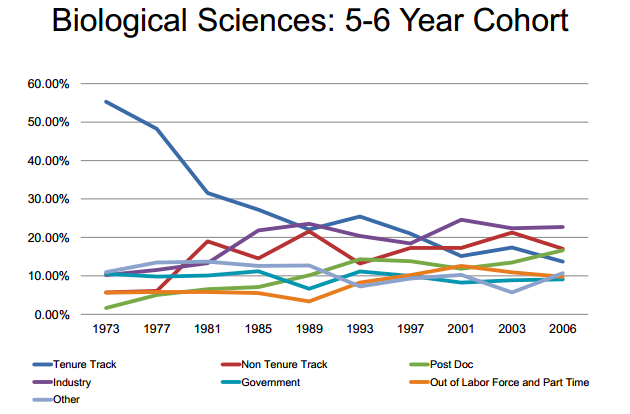
This trend is likely due to the increase in the number of PhDs being produced, without a corresponding increase in the number of tenure track positions.
The field is also notorious for long hours , especially early in the career where there is fierce competition for jobs.
Moreover, biomedical researchers can get pushed out even in their forties:
“It can leave people a bit stranded mid career. You start out well, but you don’t quite make it to the top. You’re on a 3-5 year contract. You find it doesn’t get renewed. You’re 45 and stranded.” Prof. Sir Andrew McMichael
Long time to train
There are two main routes into biomedical research, both of which take many years:
- Medical degree – you first train as a doctor, and then you transition into research, often by doing a PhD after medical school whilst doing your junior medic training. If you take this route it can take 10-12 years before you’re fully qualified in medicine and able to run a research program.
- PhD in biomedical sciences – you go straight into a PhD, which takes 4-6 years, and then move into academic research roles.
Relatively narrow exit options
If you’ve taken the PhD entry route, this path is not particularly good at broadening your career options , because the career capital you gain is mainly relevant to careers in medicine and biology. The most common exit options are academic roles focusing more on teaching and/or administration than research, roles in allocating research funding and public health. If you’ve built quantitative analysis skills, there is also the option going into data science .
If you’ve taken the medical degree route, then you’re in a much better position, because you can go back to medicine, as well as the options above.
Another potential positive is that biomedical researchers may be able to use their expertise to reduce the risks from natural pandemics and dual use research .
Who should consider this option?
You should consider this option if you think you have a high chance of being a top researcher. This is both because of the funding landscape (the senior researchers we interviewed said that good researchers can generally get funding, but it’s significantly harder for mid-range ones) and because good researchers are likely to have a lot more impact. This is because:
- Some researchers publish scientific papers at a rate at least fifty times greater than others, and the distribution appears to be log normal . 9 This is what we would expect if publishing papers was a multiplicative function of several independent skills .
- The distribution of citations is very peaked: the top 0.1% of papers have 1000 citations , compared to ~1 citation per paper at the median. The citation distribution may be more skewed than the true distribution of impact per paper, because it’s exaggerated by feedback effects in which one paper becomes the standard paper that everyone cites. Nevertheless, we suspect the basic point that some papers are vastly more influential than others remains.
- The senior researchers we interviewed all said that a ‘good researcher’ was rare and valuable. Prof. Townsend used the phrase “worth their weight in gold.” Prof. Todd said “One good guy can cover the ground of 5, and I’m not exaggerating.”
What traits are important for success?
All our interviewees mentioned that having intense intellectual curiosity is crucial for succeeding. 10 Having a lot of grit was also frequently mentioned – you will likely face many setbacks in research, over many years, while working in the highly competitive environment of academia. Many of our interviewees also mentioned that you have a better chance of doing well if you know programming, maths or statistics, because these skills are highly in-demand. 11
Another key trait is being willing and able to be highly strategic in positioning yourself for career progression, not just excelling at research. Successful researchers optimise heavily around building strong collaborations to make it easier to get funding, publishing large numbers of papers in top journals and working at the most prestigious labs to establish their credentials. 12
The interviewees also mentioned intelligence, which is important in most roles and we’d expect to be especially important in a complex research role. Indeed, studies have shown that IQ is a predictor of success even at the highest levels of science. 13
How can you work out whether you’ll fit this career?
- Assess yourself on the traits above. In particular, try to think of concrete situations in which you have demonstrated these traits before. For instance, when doing science experiments in school, did you enjoy the times when things went wrong or were difficult and unclear? Did you find yourself motivated by curiosity (rather than simply by success) and unfazed by uncertainty?
- Speak to several people in the field and read extensively about the nature of the work, particularly in your areas of interest.
- Do a summer placement in a lab. This was suggested by several people as one of the best indicators.
- After your PhD, reassess your chances of success, including on the concrete signs looked for by lab managers below.
What concrete signs are looked for when entering the field after your PhD?
The senior researchers we interviewed look for:
- A good degree class from a top university
- Several publications: First author on a Nature paper would be very good, second or third author on a Nature paper and lead author on a few others would be more common.
- A strong reference: This is a useful differentiating factor, especially because they normally know the referee.
- Statistics, programming, maths and technical skills that are especially needed by the lab (e.g. imaging at the moment), or other relevant hands-on experimental experience.
Should you do a medical degree or a PhD?
Among the people we interviewed, there was no clear consensus. Medicine offers better backup prospects and is more motivating to some, but the PhD route is faster, allowing you to get into research more quickly.
| Medicine | Biology PhD | |
|---|---|---|
| Time to qualify | 10-12 years | 4-6 years |
| Exit options | Can exit into practicing medicine and public health; easier to exit into jobs in pharmaceutical industry | Main exit options are academic roles focusing on teaching and/or administration, and allocating research funding |
| Breadth | Broader training may give you more ideas for research topics | More focused on research |
| Fit | Working with patients may increase motivation for research | Better suited for those who want to focus entirely on research and prefer not to work with patients |
| Pay | Potential for higher salaries if you practice medicine whilst doing research | Academic salaries |
The more committed you are to research, the more the PhD route makes sense compared to the medical path. If you think you’d find either path motivating, then we’re tempted to lean towards the medical path for the increased flexibility. In the future, we want to investigate the prospects of entering from PhD’s in other sciences and applied mathematics.
Do you need to do a PhD at all?
We’ve been told it’s possible to go into research roles without a PhD if you have programming or statistics skills, because these skills are highly in demand. Depending on your background, it may be possible to enter directly into informatics and data analysis roles. Otherwise, something like a Masters in Bioinformatics could be a good path.
If you’re interested in biomedical research, therefore, learning to program seems like a good step, since it keeps your options open in lots of other areas too (learn more in our software engineering profile ). The same goes for data science .
- Podcast: Laura Deming on the science that could keep us healthy in our 80s and beyond
- Podcast: Athena Aktipis on why cancer is actually one of the fundamental phenomena in our universe
- Our wiki on biomedical researchers
- Medical Research Scientist profile on Prospects
- Life Sciences Research Scientist profile on Prospects
- High impact research questions — biology and genetics
Further issues to investigate
- How good are the opportunities for biomedical research outside of academia?
- How promising is entering biomedical research from PhD’s in other sciences?
Notes and references
- “(A) – (C) are generally associated with academia, while (D) – (F) are generally associated with industry.” GiveWell Blog – The Path to Biomedical Progress ↩
Also Harvard’s admission page: “To qualify for admission, applicants must demonstrate strong enthusiasm and ability for the vigorous pursuit of scientific knowledge. Minimal requirements include a bachelor’s degree and undergraduate preparation in the sciences.” Harvard Division of Medical Sciences: Admissions
UCL’s CoMPLEX is a centre for interdisciplinary research in the medical and life sciences, which accepts students with backgrounds in mathematics, physics, computer science and engineering. ↩
- Our interview with Prof. Townsend is not published. ↩
- Bhaven N. Sampat APPENDIX D. THE IMPACT OF PUBLICLY FUNDED BIOMEDICAL AND HEALTH RESEARCH: A REVIEW. National Academies (US) Committee on Measuring Economic and Other Returns on Federal Research Investments. Washington (DC): National Academies Press (US); 2011.
- GiveWell Blog – Returns to Life Sciences Funding
- Exceptional Returns: The Economic Value of America’s Investment in Medical Research
- Murphy, Kevin M. and Topel, Robert H. (2006). ‘The Value of Health and Longevity’, Journal of Political Economy 114(5), 871–904.
- Murphy, Kevin M., and Robert H. Topel, eds. Measuring the gains from medical research: an economic approach. University of Chicago Press, 2010. ↩
- “Increases in life expectancy in just the decades of the 1970’s and 1980’s were worth $57 trillion to Americans – a figure six times larger than the entire output of tangible good and services last year. The gains associated with the prevention and treatment of cardiovascular disease alone totaled $31 trillion.” Exceptional Returns: The Economic Value of America’s Investment in Medical Research ↩
- “Murphy and Topel estimate that the total economic value to Americans of reductions in mortality from cardiovascular disease averaged $1.5 trillion annually in the 1970-1990 period. So if just one-third of the gain came from medical research, the return on the investment averaged $500 billion a year. That’s on the order of 20 times as large as average annual spending on medical research – by any benchmark an astonishing return for the investment.” Exceptional Returns: The Economic Value of America’s Investment in Medical Research ↩
- Estimates of Funding for Various Research, Condition, and Disease Categories ↩
- A top researcher would lead to more and better research than the grant money.
- A top researcher would attract more grants for the lab in the future.
But because individual lab leaders are competing with other labs for a fixed amount of grant money, this means that the extra money a lab gets as a result of having a top researcher is money that would have gone to other labs instead. This is a cost that lab leaders are likely not taking into consideration, and so the amount of grant money they’d be willing to forego for a top researcher is likely an overestimate of their true value. ↩
- Shockley, William. “On the statistics of individual variations of productivity in research laboratories.” Proceedings of the IRE 45.3 (1957): 279-290. ↩
- For example, Dr Ewer said : “Unless you have an absolute obsession with your subject, it’s very hard to persevere and not become demoralized.” ↩
- For example, Prof. Todd said : “The MD and programming/statistics combo is lethal. Top of the world. There’s major demand.” “All the kids need to learn to program and understand statistics. The data sets are getting bigger and bigger, and better. You need to learn to move data around. You need to avoid being fooled by randomness.” ↩
- “…you want to go to the best labs in your general area – neuroscience, immunology, cancer, cell biology. You just need to go where the best science is – the most Nature papers, the most Cell papers.” Interview with leading HIV vaccine researcher – Prof. Sir Andrew McMichael “”Get into a really really good lab (in a major centre). (e.g. LMB in Cambridge) Then work on a really difficult important problem for 10 years. Try to get long-term funding.” “To get the first step, you’ll need to initially focus on publishing in a couple of top journals. There’s a lot of hard work and luck involved; always be asking the question, if I get the answer to my big question, how many people in the world will care?” Interview with a Cambridge Professor of Medical Genetics on research careers – Prof. Todd ↩
- One study of 64 eminent scientists found that their median IQ scores were above 150. See also Lubinski, David, et al. “Top 1 in 10,000: a 10-year follow-up of the profoundly gifted.” Journal of applied Psychology 86.4 (2001): 718. ↩

An official website of the United States government
Here's how you know
Official websites use .gov A .gov website belongs to an official government organization in the United States.
Secure .gov websites use HTTPS A lock ( Lock Locked padlock ) or https:// means you’ve safely connected to the .gov website. Share sensitive information only on official, secure websites.

Mentored Research Program for Early Career Bioethics Scholars From Low- and Middle-Income Countries
Open call for applications.
Early career bioethics scholars (PhD students, Postdocs, and Lecturers/Assistant Professors) from low- and middle-income countries (LMICs) are invited to apply for a mentored research program at the US National Institutes of Health (NIH).
Program Description
The Department of Bioethics, located within the NIH Clinical Center (CC), offers a mentored bioethics research program for early career bioethics scholars from LMICs. The goal is to support the development of advanced bioethics expertise in LMICs.
Selected scholars will visit the NIH CC Department of Bioethics for a limited period of time and work on a bioethics research project in close collaboration with one or more faculty members in the Department. Collaboration on the research project will continue after the visit, as needed. Empirical, conceptual, and normative bioethics research projects are welcome. The program requires that the fellow's institution provide salary and other support for the fellow's research for the duration of the mentorship period. The Department of Bioethics will only support direct expenses associated with the short visit to the Department.
During the visit at the NIH Department of Bioethics, scholars will be given a workspace and take part in the daily life of the Department (e.g., work-in-progress seminars, ethics research lab meetings, invited lectures).
Program Requirements
- Completion of the application packet. This is an open call, i.e., applications can be submitted at any point while the program is active.
- A cover letter describing your interest in the NIH mentored bioethics research program, your plans for pursuing a career in bioethics in your country of residence or another LMIC, and how participation in the NIH mentored bioethics research program might help you realize these plans.
- A bioethics research project that is within the area of interest of one or more faculty members in the Department of Bioethics and will lead to a peer-reviewed publication. The template to describe your project is available online .
- Enrollment in a relevant PhD program, a PhD in a relevant discipline, or a relevant professional degree (such as an MD or JD).
- Primary academic appointment or institution of study in an LMIC, as defined by World Bank criteria.
- Endorsement of the application from a supervisor or mentor at the applicant's home institution, including a statement describing how the applicant is currently involved in bioethics research; how they will be involved in bioethics research after the NIH mentored bioethics research program; and how participation in the NIH mentored bioethics research program will enhance their involvement in these bioethics research activities.
- Eligibility for the relevant U.S. visa.
- Proficiency in English.
There is no charge for the program.
The Department sponsors the visa and offers a stipend to cover round-trip economy class travel expenses from the scholar's home city to Bethesda, MD, as well as living expenses for the duration of the visit in the NIH CC Department of Bioethics. Up to $12,000 is for travel and accommodation. In addition, scholars have the option to apply for an additional $3,000 to cover relevant travel in the U.S. during their visit. The Department of Bioethics does not have accommodations to offer; visitors typically find short-term rentals in the area near NIH.
Application Packet
To apply, please submit the following:
- A cover letter describing your interest in the NIH mentored bioethics research program, including a description of your current position and your current bioethics research; your plans for pursuing a career in bioethics in your country of residence or another LMIC; how participation in the NIH mentored bioethics research program might help you advance your current bioethics research and realize your bioethics career plans; and the preferred time period for your visit at NIH (max. 2 pages).
- A research proposal describing the bioethics research project you would like to undertake as part of the NIH mentored bioethics research program; please use the template available online (max. 3 pages).
- Endorsement letter from a supervisor or mentor at your home institution. The endorsement should include a statement describing your current involvement in bioethics research; how you will be involved in bioethics research activities after the NIH mentored bioethics research program; and how participation in the NIH mentored bioethics research program will enhance your involvement in these bioethics research activities. The endorsement letter should be written on official letterhead and provide a clear indication of the letter writer's position.
- Curriculum vitae.
- Copy of your degree (e.g., PhD, MD, JD) or evidence of enrollment in a relevant PhD program.
- If your native language is not English, evidence of English proficiency, such as your TOEFL score, IELTS score, or previous education at English-speaking institutions.
Preferred File Format: We prefer receiving documents as PDF (.pdf) formatted documents.
Guidance on How to Apply
If you are interested in applying to this program, please ensure you are eligible and review the information on how to write a bioethics research proposal for our bioethics research training programs.
Please contact the program lead with any questions or submit your application to: Professor Reidar K. Lie, Department of Bioethics, NIH Clinical Center & Department of Philosophy, University of Bergen: [email protected] .
Applicants will be notified by e-mail within four weeks of receipt of their complete application.
- U.S. Department of Health & Human Services
- National Institutes of Health

En Español | Site Map | Staff Directory | Contact Us
- Labs @ NIBIB
Biomedical Engineering Summer Internship Program (BESIP)

The BESIP Experience: Summer 2024
This summer, 24 student interns had the opportunity to work on cutting-edge research projects alongside top-flight experts on NIH campus. Learn more about a few of our interns and their projects and take a look at some photos from this summer.
Hear from some of last year's interns
The Biomedical Engineering Summer Internship Program (BESIP) summer program is hosted by the BETA Center . Housed within NIBIB, the BETA Center is an NIH-wide resource that is comprised of researchers with specialized expertise in a broad array of bioengineering research areas. The BETA Center community brings researchers together with engineering and imaging expertise including biomedical imaging, biosensing, biomechanics, engineered/synthetic biology, nano/biomaterials, artificial intelligence, modeling, computation, and informatics. Central to BETA’s mission is to expand diversity, equity, and inclusion within NIH’s training programs.
Students interested in biomedical engineering research will come to the NIH campus from June 3, 2024 to August 9, 2024 for an intensive in-person research experience. The internship allows students to participate in cutting-edge biomedical research projects under the mentorship of world-class scientists and engineers in NIH laboratories in Bethesda, MD. BESIP interns can also participate in a variety of professional and career development programs offered by the NIH’s Office of Intramural Training and Education.
To meet our goals of providing cutting edge research opportunities to biomedical engineering majors, broadening and diversifying the trainee workforce, and getting more people excited about biomedical imaging and bioengineering, the BESIP program contains two tracks: BESIP-BME and BESIP-STEM.
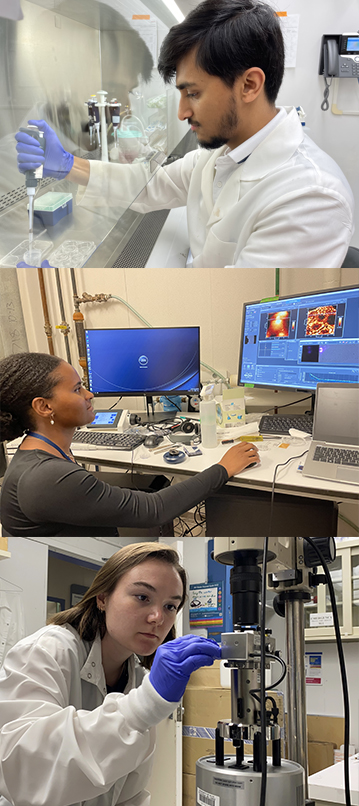
BESIP-STEM : Applicants are NOT majoring in engineering, physical science, or computer science but are interested in pursuing biomedical engineering in graduate school or as a career. This could include applicants from other science majors such as biology, biochemistry, mathematics, chemistry, and other related biomedical disciplines. Alternatively, BESIP-STEM applicants may be majoring in engineering, physical science, and computer science but have not had a previous in-person biomedical engineering research experience.
We welcome applicants from diverse backgrounds and strongly encourage applications of individuals: from racial and ethnic groups that have been underrepresented in biomedical research and healthcare fields, with disabilities, who are/were Pell Grant-eligible in college, who are/were enrolled in Tribal Colleges and Universities, community colleges, Hispanic-serving institutions, or Historically Black Colleges and Universities (HBCUs), who identify as LGBTQ+, disadvantaged by life circumstances that have negatively impacted their educational opportunities.
How to Apply : Follow this link to the Application Information page for information about eligibility, stipends, deadlines, and how to apply for BESIP using the SIP application form.
Deadlines and Important Dates : Online application must be submitted by February 16, 2024 Reference letters must be submitted by February 23, 2024
BESIP Projects
A group of mentors/researchers at NIH have submitted biomedical research projects to BESIP that involve areas of engineering or physical science expertise. Participants will have the opportunity to indicate several project preferences of from the available list. We will try to match BESIP interns with their highest possible preference for the summer, but interns may be assigned to any one of these projects. The 2024 project list can be found here .
An official website of the United States government
The .gov means it’s official. Federal government websites often end in .gov or .mil. Before sharing sensitive information, make sure you’re on a federal government site.
The site is secure. The https:// ensures that you are connecting to the official website and that any information you provide is encrypted and transmitted securely.
New initiative for early career researchers and community health centers
Published September 16, 2024
ARPA-H launches initiative for early career researchers and community health centers
Agency releases network survey to learn from next generation of health innovators
The Advanced Research Projects Agency for Health ( ARPA-H ), an agency within the U.S. Department of Health and Human Services (HHS), today announced the ARPA-H Emerging Health Innovators (EHI) Initiative to increase access to government research funding and address health care gaps in the U.S. The EHI Initiative begins with a Network Survey, which will gather information and insights from early career investigators, community innovators, and administrators at academic institutions, including minority-serving institutions (MSIs) and community-based organizations (CBOs).
“ARPA-H was built to drive breakthroughs in health, including finding a cure for cancer and addressing other health care gaps. To succeed, we need the best ideas from every corner of the country, including from those traditionally not given opportunities in research,” said HHS Secretary Xavier Becerra. "The Biden-Harris Administration is making it easier for early career investigators, researchers, and administrators from minority-serving institutions and community-based organizations to be included and supported. The result will be the creation of new opportunities and game-changing results that benefit all Americans.”
Through the EHI Network Survey, ARPA-H seeks to learn from these emerging health innovators about their specific needs, challenges, and concerns. These responses will inform a forthcoming funding solicitation, anticipated to be available in late 2024. ARPA-H intends the solicitation to offer two tracks:
- Technology-driven Innovation (track 1) supports early career investigators in developing innovative health technologies. Eligible applicants: early career researchers, within 10 years of earning their final degree, in academic or research institutions including U.S.-based MSIs.
- Community-center Innovation (track 2) empowers community innovators to develop technology that addresses specific community needs. Eligible applicants: community innovators, including but not limited to community health care workers, medical professionals, nurses, social workers at community health centers, non-profit organizations, and/or faith-based organizations.
“ARPA-H seeks to accelerate better health outcomes for everyone, so it’s vital to partner with these emerging health trailblazers who are working every day to develop solutions for and in their communities,” said ARPA-H Director Renee Wegrzyn, Ph.D. “We are strengthened when our performers include those with fresh perspectives, deep technical expertise, and wide-ranging networks – all key ingredients in solving the toughest challenges in human health. The ARPA-H EHI Initiative is opening new doors to community-based innovations and inclusive solutions to improve health outcomes for all Americans.”
In remarks at the announcement event at San José State University, ARPA-H Deputy Director Susan Monarez, Ph.D. notes, “ARPA-H understands that we have a responsibility to remove as many barriers as possible to work with us. The EHI Initiative aims to do just that by making it easier for everyone, regardless of any demographic differentiator, to contribute to achieving our mission.”
View the full Network Survey . The deadline to respond is October 25, 2024, 11:59 PM ET. The EHI solicitation is anticipated to be available later in 2024. Future EHI awards would generally be in the form of other transaction agreements. Exact award amounts depend on meeting aggressive milestones, typical to the ARPA-H model .
The ARPA-H EHI Initiative is in collaboration with the Customer Experience (CX) Hub of ARPANET-H , the agency’s nationwide health innovation network that connects people, innovators, and institutions to accelerate better health outcomes for everyone. Organizations interested in becoming a part of the CX Hub can view the member application process on the CX Hub website .

Biomedical Beat Blog – National Institute of General Medical Sciences
Follow the process of discovery
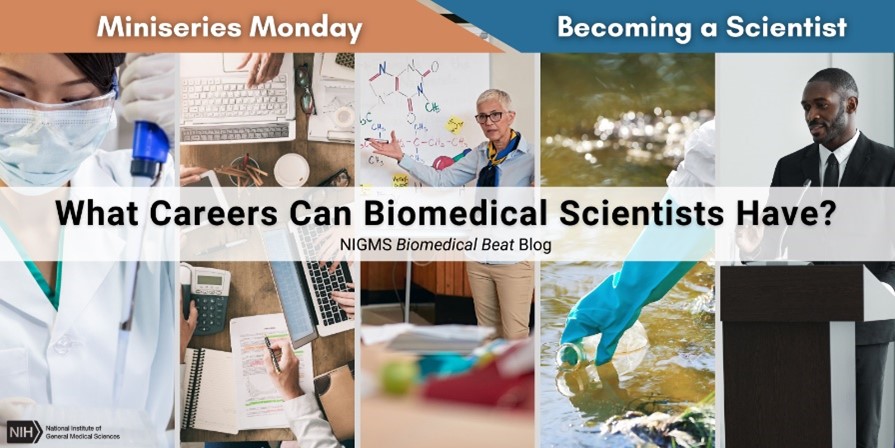
Search this blog
What careers can biomedical scientists have.
Many of us enjoy learning about topics like plants, weather, or rocks, but did you know that you can make a career out of your love for science? Scientist is a job title, just like carpenter , firefighter , or lawyer . At NIGMS, we work to get students interested in careers in health science. Read on to learn about some of the different jobs that biomedical scientists do and the level of education they require. (Find more info on the different education paths in our first post of this series .) And who knows, maybe this post will spark your interest in pursuing one of these jobs in the future!
Principal Investigator at an Academic Institution or Government Organization
One scientific job option is to become a principal investigator—a researcher who’s head of a laboratory or research project—at a college/university or a government organization such as the National Institutes of Health. Either way, as a principal investigator, you’d start your own lab to answer questions about a scientific area and hire people to help you. In addition to lab work, you would stay up to date on trending research topics, travel to conferences to present the lab’s results, and, if at an academic or other private institution, write applications for research funding. Principal investigators at colleges and universities may also teach; for some, this is a required part of the job, but for others, it’s something they can choose to do.
This job requires a doctoral degree, like a Ph.D. or an M.D., and, often, postdoctoral training. However, labs at universities or government organizations are staffed with people at different educational levels:
- Bachelor’s, master’s, or even Ph.D. degree holders (typically as research technicians or lab managers)
- Students working toward a master’s degree or a Ph.D.
- Postdoctoral researchers
Scientist at a Pharmaceutical, Agricultural, or Other Private Industrial Company
Like universities, private companies also hire scientists to lead or be part of research labs. There are a few key differences in how you might conduct research at a private company, like how the topic of your research is chosen and how the research is funded, but the goals are the same: ask scientific questions, design experiments to answer them, and make discoveries. There’s a range of industries you might work in. For example, you might join a team of scientists at a pharmaceutical company developing a new treatment for a disease or a group at an agricultural company working on a new drought-resistant crop. At a food production company, you may be hired to oversee quality control to prevent outbreaks of foodborne illnesses caused by bacteria .
High-ranking jobs at private companies often require a Ph.D. However, jobs for those with a bachelor’s or master’s degree also exist at these types of companies, and they’re a great way to get more experience and learn what day-to-day lab work looks like before deciding whether to commit to graduate school.
Regulatory Affairs, Science Policy, or Grants Management Specialist
The government plays a big role in research and public health. It makes laws and publishes guidelines surrounding many medical or scientific topics, such as regulations for the safety and efficacy of new medical devices and limits to chemical and microbial contaminants in our drinking water.

You can find many jobs related to the government’s role in science. For example, you could become a regulatory affairs specialist. People in this role oversee private companies’ research methods and products to make sure that they’re in compliance with laws that govern their product type, such as medical devices, medicines , cosmetics, or food.
Or you may be interested in science policy. Science policy specialists are often trained in a STEM (science, technology, engineering, and math) field but work side by side with government officials to ensure that the laws and recommendations they pass are supported by current scientific knowledge. For example, you could train to be an environmental scientist and produce a report on local water pollution that lawmakers could use to understand how a proposed law could affect water quality.
Another important role of the government in science is providing money—for example, in the form of grants—to many institutions to fund their research programs. You could support this role by working in grants management with a governmental research agency. A grants manager oversees all steps in the grant process, including making the initial announcement, reviewing applications and eligibility, and monitoring awardee success.
Workers in regulatory affairs, science policy, and grants management usually have a master’s degree or a Ph.D. in a scientific discipline, as well as a familiarity with the U.S. government.
Science Communicator
The field of science communication focuses on sharing scientific knowledge and advances with the public. There are many science communication roles you could enter, each with a different subject, audience, or main goal. For example, you might work for a government organization or a local science museum on projects to get students excited about science. This could include making age-appropriate lesson plans that introduce students to experiments, developing educational materials, or even visiting local classrooms to do science demonstrations. Check out our science education webpage to find the different materials we develop here at NIGMS, including our image and video gallery and scientific glossary .
Science communicators may also write informative summaries for the public on a wide variety of topics, like health conditions, environmental topics such as the importance of protecting wildlife in national parks, or physical science topics like how the moon and sun affect the tides. Some communicators work for journals that publish the results of scientific experiments, where they edit articles or write research summaries.
Jobs in science communication usually require at least a bachelor’s or master’s degree in science and a familiarity with education and/or writing, or, alternatively, a degree in communications and a familiarity with science.
If you’re interested in health science, there are many job opportunities for you to pursue, even more than those listed above. For instance, you could be a nurse, teacher, or physical therapist, which are all great careers with science at their center. Check out my Individual Development Plan (myIDP) —a free career planning tool designed to help graduate students and postdoctoral researchers find careers aligned with their specific interests and skills for more help.
So, do any biomedical science careers spark your interest?
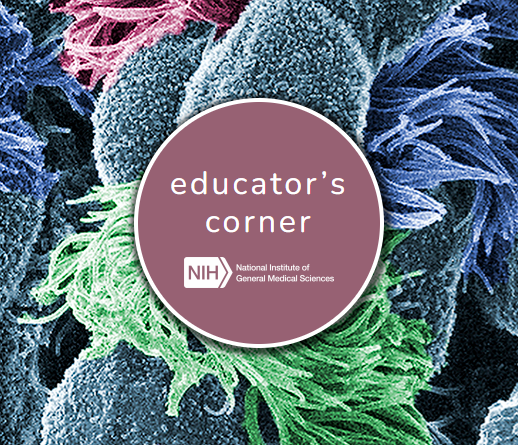
Learn more in our Educator’s Corner .
Other Posts You May Like

Submit a Comment Cancel reply
Please note: Comment moderation is enabled and may delay your comment. There is no need to resubmit your comment.
Subscribe to Biomedical Beat
Get our latest blog posts delivered straight to your inbox! Sign Up Here
Part 1. Overview Information
National Institutes of Health ( NIH )
National Institute on Aging ( NIA )
National Institute on Alcohol Abuse and Alcoholism ( NIAAA )
National Institute of Arthritis and Musculoskeletal and Skin Diseases ( NIAMS )
National Institute of Biomedical Imaging and Bioengineering ( NIBIB )
Eunice Kennedy Shriver National Institute of Child Health and Human Development ( NICHD )
National Institute of Diabetes and Digestive and Kidney Diseases ( NIDDK )
National Center for Complementary and Integrative Health ( NCCIH )
- August 31, 2022 - Implementation Changes for Genomic Data Sharing Plans Included with Applications Due on or after January 25, 2023. See Notice NOT-OD-22-198 .
- August 5, 2022 - Implementation Details for the NIH Data Management and Sharing Policy. See Notice NOT-OD-22-189 .
See Section III. 3. Additional Information on Eligibility .
The purpose of the NIH HEAL Initiative PainCare Clinician Training Program (PCTP): Mentored Patient-Oriented Research Career Development award (K23) (Clinical Trial Required) is to support the career development of individuals with clinical doctoral degrees to create a group of new and well-trained, independent investigators. This supervised career development program will provide independent NIH research support during the early-career phase to help recipients establish independent research programs in areas supported by the NIH HEAL Initiative’s Clinical Research in Pain Management program.
This Notice of Funding Opportunity (NOFO) is designed specifically for applicants proposing to serve as the lead investigator of an independent clinical trial, a clinical trial feasibility study, or a separate ancillary study to an existing trial, as part of their research and career development. Applicants not planning an independent clinical trial, or proposing to gain research experience in a clinical trial led by another investigator, must apply to the companion NOFO.
Not Applicable
| Application Due Dates | Review and Award Cycles | ||||
|---|---|---|---|---|---|
| New | Renewal / Resubmission / Revision (as allowed) | AIDS - New/Renewal/Resubmission/Revision, as allowed | Scientific Merit Review | Advisory Council Review | Earliest Start Date |
| October 12, 2024 * | November 12, 2024 * | Not Applicable | March 2025 | May 2025 | July 2025 |
| February 12, 2025 * | March 12, 2025 * | Not Applicable | July 2025 | October 2025 | December 2025 |
| June 12, 2025 * | July 12, 2025 * | Not Applicable | November 2025 | January 2026 | April 2026 |
| October 12, 2025 * | November 12, 2025 * | Not Applicable | March 2026 | May 2026 | July 2026 |
| February 12, 2026 * | March 12, 2026 * | Not Applicable | July 2026 | October 2026 | December 2026 |
| June 12, 2026 * | July 12, 2026 * | Not Applicable | November 2026 | January 2027 | April 2027 |
| October 12, 2026 * | November 12, 2026 * | Not Applicable | March 2027 | May 2027 | July 2027 |
| February 12, 2027 * | March 12, 2027 * | Not Applicable | July 2027 | October 2027 | December 2027 |
| June 12, 2027 * | July 12, 2027 * | Not Applicable | November 2027 | January 2028 | April 2028 |
All applications are due by 5:00 PM local time of applicant organization.
Applicants are encouraged to apply early to allow adequate time to make any corrections to errors found in the application during the submission process by the due date.
It is critical that applicants follow the instructions in the Career Development (K) Instructions in the How to Apply - Application Guide except where instructed to do otherwise (in this NOFO or in a Notice from the NIH Guide for Grants and Contracts ). Conformance to all requirements (both in the How to Apply - Application Guide and the NOFO) is required and strictly enforced. Applicants must read and follow all application instructions in the How to Apply - Application Guide as well as any program-specific instructions noted in Section IV . When the program-specific instructions deviate from those in the How to Apply - Application Guide , follow the program-specific instructions. Applications that do not comply with these instructions may be delayed or not accepted for review.
There are several options available to submit your application through Grants.gov to NIH and Department of Health and Human Services partners. You must use one of these submission options to access the application forms for this opportunity.
- Use the NIH ASSIST system to prepare, submit and track your application online.
- Use an institutional system-to-system (S2S) solution to prepare and submit your application to Grants.gov and eRA Commons to track your application. Check with your institutional officials regarding availability.
- Use Grants.gov Workspace to prepare and submit your application and eRA Commons to track your application.
Part 2. Full Text of Announcement
Section i. funding opportunity description.
The overall goal of the NIH Research Career Development program is to help ensure that a diverse pool of highly trained scientists is available in appropriate scientific disciplines to address the Nation's biomedical, behavioral, and clinical research needs. NIH Institutes and Centers (ICs) support a variety of mentored and non-mentored career development award programs designed to foster the transition of new investigators to research independence and to support established investigators in achieving specific objectives. Candidates should review the different career development (K) award programs to determine the best program to support their goals. More information about Career programs may be found at the NIH Research Training and Career Development website.
The objective of the NIH Mentored Patient-Oriented Research Career Development Award (K23) program is to provide salary and research support for a sustained period of “protected time” (3-5 years) to ensure a future cadre of well-trained scientists conducting NIH-supported Patient-Oriented Research (POR). The specific objectives of the Mentored Patient-Oriented Research Career Development Award are to: (a) Encourage research-oriented clinicians to develop research skills and gain experience in advanced methods and experimental approaches needed to become independent investigators conducting patient-oriented research; (b) Increase the pool of clinical researchers who can conduct patient-oriented studies, capitalizing on the discoveries of biomedical research and translating them to clinical settings; and (c) Support the career development of investigators who have made a commitment to focus their research endeavors on patient-oriented research.
For the purposes of the K23 award, Patient-Oriented Research is defined as research conducted with human subjects (or on material of human origin such as tissues, specimens and cognitive phenomena) for which an investigator (or colleague) directly interacts with human subjects. This area of research includes: 1) mechanisms of human disease; 2) therapeutic interventions; 3) clinical trials; and 4) the development of new technologies. Excluded from this definition are in vitro studies that utilize human tissues but do not deal directly with patients. In other words, patient-oriented research is research in which it is necessary to know the identity of the patients from whom the cells or tissues under study are derived. Studies falling under Exemption 4 for human subjects research are not included in this definition. See also the NIH Directors Panel on Clinical Research Report .
Background
More than 25 million Americans suffer from high impact chronic pain, a highly debilitating biopsychosocial condition that is complex and difficult to manage. Innovative scientific solutions to develop effective and safe treatment options are thus critically needed. This Notice of Funding Opportunity (NOFO) is part of the NIH Helping End Addiction Long-term (HEAL) Initiative, an aggressive, trans-agency effort to speed scientific solutions to stem the chronic pain and opioid public health crisis. To achieve the ambitious goals of the NIH HEAL Initiative, a multitude of research programs are currently underway to better understand, manage, and treat pain. A robust workforce in clinical pain research is needed to support and advance these programs and innovative actionable care pathways to support patients, clinicians, and health systems.
Feedback from the HHS Interagency Pain Research Coordinating Committee (IPRCC) related to issues in retaining and recruiting a pain research workforce led to a survey conducted by the Office of Pain Policy and Planning (OPPP) at NINDS that highlighted barriers for early-career clinician-scientists interested in pursuing research careers. Taken together, these data indicate there is a critical need to expand and better support the clinical pain research workforce, particularly in research areas supported by the NIH HEAL Initiative, to facilitate timely accomplishment of the NIH HEAL Initiative’s goals.
To determine possible ways to support early-career clinician-scientists interested in clinical pain research careers, the OPPP conducted a portfolio analysis of NIH career development awards provided to early-career clinician-scientists from 2013-2023. In that timeframe, NIH funded 191 individual career development awards for early-career clinician-scientists studying pain. Compared to early-career clinician-scientists who applied for, but did not receive, a career development award to study pain, receiving a career development award led to a 2.5-fold greater odds of successfully competing for an R01 or equivalent award. Of the career development recipients who received an R01 or equivalent award, more than half received this award within 5 years of career development award issuance. These findings support the importance of NIH-funded mentored career development awards (K08, K23) as beneficial for promoting a clinical pain research workforce. Please visit the Training and Career Development Outcome Data for Early-Career Pain Clinician-Scientists webpage for more details about the pain research workforce analysis conducted by OPPP ( https://www.painconsortium.nih.gov/training-and-career-development-outcome-data-early-career-pain-clinician-scientists ).
Purpose
The purpose of this NOFO is to enhance career development for early-career clinician-scientists in areas supported by the NIH HEAL Initiative's Clinical Research in Pain Management program . This career development award program is intended to foster the development of well-trained, independent clinical pain researchers that will help advance the pain-related mission of the NIH HEAL Initiative.
Research Areas:
Applications for this NOFO may propose biopsychosocial research within the clinical pain management research area (encompassing chronic pain, acute pain, recurrent/episodic pain, the transition from acute to chronic pain, and/or a combination of these). Examples of such research programs include, but are not limited to:
- advancing health equity in pain management (including interventions on social determinants of health and healthcare to shape pain outcomes)
- biomarkers
- chronic overlapping pain conditions (COPC)
- implementation science (the scientific study of the use of strategies to adopt and integrate evidence-based health interventions into clinical and community settings to improve individual outcomes and benefit population health)
- non-opioid treatments for pain (including nonpharmacological approaches and effectiveness/implementation studies)
- pain across the lifespan
- pain education
- prevention of chronic pain
- placebo analgesia
Because pain research proposals do not always fully align with the missions of one specific IC, applications proposing cross-cutting research projects are allowed and may be prioritized.
Pre-Submission Consultation
Applicants are strongly encouraged to consult with NIH scientific/research staff as early as possible before the due date when planning an application. Early contact provides an opportunity for NIH scientific/research staff to provide guidance on program scope and appropriateness of the proposed research training for potential funding in response to this NOFO.
Clinical Trial Required: This NOFO is designed specifically for applicants proposing to serve as the lead investigator of an independent clinical trial, a clinical trial feasibility study, or a separate ancillary clinical trial, as part of their research and career development. NIH defines a clinical trial as “A research study in which one or more human subjects are prospectively assigned to one or more interventions (which may include placebo or other control) to evaluate the effects of those interventions on health-related biomedical or behavioral outcomes.” Most implementation trials including those that randomize at the organization, system or community level meet this definition. For additional details and frequently asked questions, visit https://grants.nih.gov/policy/clinical-trials/definition.htm or read the notice describing the revised definition of a clinical trial NOT-OD-15-015 .
Annual National Pain Scientist Career Development Program Meeting (R24)
The HEAL R24 Coordinating Center for National Pain Scientists recipient has created a network of early-career pain scientists, pain trainees, and mentors (RFA-NS-22-060). The HEAL R24 Coordinating Center for National Pain Scientists has named their program Positively Uniting Researchers of Pain to Opine, Synthesize, and Engage (PURPOSE) https://heal.nih.gov/research/cross-cutting-research/training-next-generation-researchers/purpose-network-coordinating-center-pain-scientists.The HEAL R24 Coordinating Center for National Pain Scientists will work to improve the collaboration between basic, translational, and clinical researchers, who do not regularly collaborate or work together. One function of the HEAL R24 Coordinating Center for National Pain Scientists is to organize an annual meeting (called the Annual Purpose Meeting for Pain Research ) for established scientists as well as early career pain investigators. This meeting facilitates the creation of a network of pain research mentors and mentees; fosters communication between scientists and clinicians of different disciplines; and provides enhanced mentorship, leadership courses, and any additional trainings that might be helpful for early-career scientists. Recipients of this K23 award are required to attend - and may be asked to present at - the HEAL R24 Annual National Pain Scientist Career Development Meeting. Recipients of this K23 award should build in travel to the HEAL R24 Annual Pain Scientist Career Development Meeting (also known as the PURPOSE Annual Meeting) as part of their proposed budget, which can cover up to $2,000 for travel costs for the K23 recipient.
In addition, K23 recipients are strongly encouraged to participate in all other aspects of the PURPOSE network, including networking experiences and webinars.
HEAL Annual Meeting
In addition to the Annual PURPOSE Meeting for Pain Research, The NIH HEAL Initiative further encourages coordination and sharing between investigators through participation at the annual HEAL Scientific Meeting . NIH HEAL Initiative award Career development recipients who receive a NIH HEAL Initiative PainCare Clinician Training Program (PCTP) grant are encouraged to participate in Program Director/Principal Investigator (PD/PI) meetings, including the annual HEAL Scientific Meeting, as well as other HEAL activities.
Rigor and Transparency
NIH strives for rigor and transparency in all research it funds. For this reason, this NOFO explicitly emphasizes the NIH application instructions related to rigor and transparency ( https://grants.nih.gov/policy/reproducibility/guidance.htm ) and provides additional guidance to the scientific community ( https://www.ninds.nih.gov/Funding/grant_policy ). For example, the rationale for the proposed experiments must be based on rigorous and robust supporting data, which means that data should be collected via methods that minimize the risk of bias and be reported in a transparent manner. If previously published or preliminary studies do not meet these standards, applicants should address how the current study design addresses the deficiencies in rigor and transparency. Proposed experiments should likewise be designed in a manner that minimizes the risk of bias and ensures validity of experimental results. K23 recipients will need to receive training in this area to equip themselves with the following skills required for careers in the research workforce:
- Technical (e.g., appropriate methods, approaches, technologies, and quantitative/qualitative/mixed-methods analyses and reasoning)
- Operational (e.g., independent knowledge acquisition, appropriate data management, robust and unbiased experimental design, safe laboratory conduct, proper interpretation of data, transparent reporting of all results, and sharing of data and materials)
- Professional (e.g., leadership, management, and teamwork)
- Communication (e.g., how to communicate results to professional organizations, fellow clinicians, people with lived experience of pain, and the general public; how to give job talks)
Note: This Notice of Funding Opportunity (NOFO) is designed specifically for candidates proposing to serve as the lead investigator of an independent clinical trial, a clinical trial feasibility study, or a separate ancillary clinical trial, as part of their research and career development.
Investigators proposing NIH-defined clinical trials may refer to the Research Methods Resources website for information about developing statistical methods and study designs.
See Section VIII. Other Information for award authorities and regulations.
Section II. Award Information
Grant: A financial assistance mechanism providing money, property, or both to an eligible entity to carry out an approved project or activity.
The OER Glossary and the How to Apply - Application Guide provides details on these application types.
Required: Only accepting applications that propose an independent clinical trial(s).
Awards pursuant to this funding opportunity are contingent upon NIH appropriations and the submission of a sufficient number of meritorious applications.
Other Award Budget Information
The HEAL PainCare Clinician Training Program (PCTP): Pain Mentored Patient-Oriented Research Career Development Award (K23) will offer up to $125,000 salary per year per K23 recipient .
In addition, the candidate may derive additional compensation for effort associated with other Federal sources or awards provided the total salary derived from all Federal sources does not exceed the maximum legislated salary rate (see http://grants.nih.gov/grants/policy/salcap_summary.html ) and the total percent effort does not exceed 100%. See also NOT-OD-17-094 .
NIH will contribute $50,000 per year toward the research development costs of the award recipient, which must be justified and consistent with the stage of development of the candidate and the proportion of time to be spent in research or career development activities. These funds may be used for the following expenses: (a) tuition and fees related to career development; (b) research-related expenses, such as supplies, equipment, technical personnel, and participant incentives; (c) travel to research meetings or training; and (d) statistical services including personnel and computer time.
K23 recipients can request up to $2,000 per year in travel to attend the PURPOSE Annual Meeting. The K23 recipient is required to attend the PURPOSE Annual meeting.
Salary for mentors, secretarial and administrative assistants, etc. is not allowed.
NIH grants policies as described in the NIH Grants Policy Statement will apply to the applications submitted and awards made from this NOFO.
Section III. Eligibility Information
1. eligible applicants.
Higher Education Institutions
- Public/State Controlled Institutions of Higher Education
- Private Institutions of Higher Education
The following types of Higher Education Institutions are always encouraged to apply for NIH support as Public or Private Institutions of Higher Education:
- Hispanic-serving Institutions
- Historically Black Colleges and Universities (HBCUs)
- Tribally Controlled Colleges and Universities (TCCUs)
- Alaska Native and Native Hawaiian Serving Institutions
- Asian American Native American Pacific Islander Serving Institutions (AANAPISIs)
Nonprofits Other Than Institutions of Higher Education
- Nonprofits with 501(c)(3) IRS Status (Other than Institutions of Higher Education)
- Nonprofits without 501(c)(3) IRS Status (Other than Institutions of Higher Education)
For-Profit Organizations
- Small Businesses
- For-Profit Organizations (Other than Small Businesses)
Local Governments
- State Governments
- County Governments
- City or Township Governments
- Special District Governments
- Indian/Native American Tribal Governments (Federally Recognized)
- Indian/Native American Tribal Governments (Other than Federally Recognized)
Federal Governments
- Eligible Agencies of the Federal Government
- U.S. Territory or Possession
- Independent School Districts
- Public Housing Authorities/Indian Housing Authorities
- Native American Tribal Organizations (other than Federally recognized tribal governments)
- Faith-based or Community-based Organizations
- Regional Organizations
Non-domestic (non-U.S.) Entities (Foreign Organizations) are not eligible to apply.
Non-domestic (non-U.S.) components of U.S. Organizations are not eligible to apply.
Foreign components, as defined in the NIH Grants Policy Statement , are not allowed.
Applicant Organizations
Applicant organizations must complete and maintain the following registrations as described in the How to Apply - Application Guide to be eligible to apply for or receive an award. All registrations must be completed prior to the application being submitted. Registration can take 6 weeks or more, so applicants should begin the registration process as soon as possible. Failure to complete registrations in advance of a due date is not a valid reason for a late submission, please reference NIH Grants Policy Statement 2.3.9.2 Electronically Submitted Applications for additional information.
- NATO Commercial and Government Entity (NCAGE) Code – Foreign organizations must obtain an NCAGE code (in lieu of a CAGE code) in order to register in SAM.
- Unique Entity Identifier (UEI) - A UEI is issued as part of the SAM.gov registration process. The same UEI must be used for all registrations, as well as on the grant application.
- eRA Commons - Once the unique organization identifier is established, organizations can register with eRA Commons in tandem with completing their Grants.gov registration; all registrations must be in place by time of submission. eRA Commons requires organizations to identify at least one Signing Official (SO) and at least one Program Director/Principal Investigator (PD/PI) account in order to submit an application.
- Grants.gov – Applicants must have an active SAM registration in order to complete the Grants.gov registration.
Program Directors/Principal Investigators (PD(s)/PI(s))
All PD(s)/PI(s) must have an eRA Commons account. PD(s)/PI(s) should work with their organizational officials to either create a new account or to affiliate their existing account with the applicant organization in eRA Commons. If the PD/PI is also the organizational Signing Official, they must have two distinct eRA Commons accounts, one for each role. Obtaining an eRA Commons account can take up to 2 weeks.
All PD(s)/PI(s) must be registered with ORCID . The personal profile associated with the PD(s)/PI(s) eRA Commons account must be linked to a valid ORCID ID. For more information on linking an ORCID ID to an eRA Commons personal profile see the ORCID topic in our eRA Commons online help .
Any candidate with the skills, knowledge, and resources necessary to carry out the proposed research as the Program Director/Principal Investigator (PD/PI) is invited to work with their mentor and organization to develop an application for support. Individuals from diverse backgrounds, including individuals from underrepresented racial and ethnic groups, individuals with disabilities, and women are always encouraged to apply for NIH support. See, Reminder: Notice of NIH's Encouragement of Applications Supporting Individuals from Underrepresented Ethnic and Racial Groups as well as Individuals with Disabilities , NOT-OD-22-019 . Multiple PDs/PIs are not allowed.
By the time of award, the individual must be a citizen or a non-citizen national of the United States or have been lawfully admitted for permanent residence (i.e., possess a currently valid Permanent Resident Card USCIS Form I-551, or other legal verification of such status).
Current and former PDs/PIs on NIH research project (R01), program project (P01), center grants (P50), Project Leads of program project (P01), or center grants (P50), other major individual career development awards (e.g., K01, K07, K08, K22, K23, K25, K76, K99/R00), or the equivalent are not eligible. Current and former PDs/PIs of an NIH Small Grant (R03), Exploratory/Developmental Grants (R21/R33), Planning Grant (R34/U34), Dissertation Award (R36), or SBIR/STTR (R41, R42, R43, R44) remain eligible, as do PD/PIs of Transition Scholar (K38) awards and individuals appointed to institutional K programs (K12, KL2).
Individuals with the PhD or other doctoral degree in clinical disciplines such as clinical psychology, nursing, clinical genetics, speech-language pathology, audiology or rehabilitation are also eligible.
Candidates for the K23 award must have a health-professional doctoral degree. Such degrees include, but are not limited to, an MD, DO, DDS, DMD, OD, DC, PharmD, ND (Doctor of Naturopathy), as well as a doctoral degree in nursing research or practice. Individuals with a PhD or other doctoral degree in clinical disciplines such as clinical psychology, clinical genetics, speech-language pathology, audiology or rehabilitation are also eligible. Individuals holding a PhD in a non-clinical discipline but who are certified to perform clinical duties should contact the appropriate Institute concerning their eligibility for a K23 award. Candidates also must have completed their clinical training, including specialty and, if applicable, subspecialty training prior to receiving an award. However, candidates may submit an application prior to the completion of clinical training.
2. Cost Sharing
This NOFO does not require cost sharing as defined in the NIH Grants Policy Statement Section 1.2 Definitions of Terms .
3. Additional Information on Eligibility
Applicant organizations may submit more than one application, provided that each application is scientifically distinct, and each is from a different candidate.
NIH will not accept duplicate or highly overlapping applications under review at the same time per NIH Grants Policy Statement Section 2.3.7.4 Submission of Resubmission Application . An individual may not have two or more competing NIH career development applications pending review concurrently. In addition, NIH will not accept:
- A new (A0) application that is submitted before issuance of the summary statement from the review of an overlapping new (A0) or resubmission (A1) application.
- A resubmission (A1) application that is submitted before issuance of the summary statement from the review of the previous new (A0) application.
- An application that has substantial overlap with another application pending appeal of initial peer review. (See NIH Grants Policy Statement 2.3.9.4 Similar, Essentially Identical, or Identical Applications ).
Candidates may submit research project grant (RPG) applications concurrently with the K application. However, any concurrent RPG application may not have substantial scientific and/or budgetary overlap with the career award application. K award recipients are encouraged to obtain funding from NIH or other Federal sources either as a PD/PI on a competing research grant award or cooperative agreement, or as project leader on a competing multi-project award as described in NOT-OD-18-157 .
At the time of award, the candidate must have a full-time appointment at the academic institution. Candidates are required to commit a minimum of 75% of full-time professional effort (i.e., a minimum of 9 person-months) to their program of career development. Candidates may engage in other duties as part of the remaining 25% of their full-time professional effort not covered by this award, as long as such duties do not interfere with or detract from the proposed career development program.
Candidates who have VA appointments may not consider part of the VA effort toward satisfying the full-time requirement at the applicant institution. Candidates with VA appointments should contact the staff person in the relevant Institute or Center prior to preparing an application to discuss their eligibility.
After the receipt of the award, adjustments to the required level of effort may be made in certain circumstances. See NOT-OD-18-156 and NIH Grants Policy Statement , Section 12.3.6.4 Temporary Adjustments to the Percent Effort Requirement for more details.
recruitment Mentor(s)
Before submitting the application, the candidate must identify a mentor who will supervise the proposed career development and research experience. The mentor should be an active investigator in the area of the proposed research and be committed both to the career development of the candidate and to the direct supervision of the candidate’s research. The mentor must document the availability of sufficient research support and facilities. Candidates are encouraged to identify more than one mentor, i.e., a mentoring team, if this is deemed advantageous for providing expert advice in all aspects of the research career development program. In cases where a candidate has identified a mentoring team, one individual must be identified as the primary mentor who will coordinate the candidate’s research. It is strongly encouraged that at least one mentor should conduct research within the field of clinical pain management research. The candidate must work with the mentor(s) in preparing the application. The mentor, or a member of the mentoring team, should have a successful track record of mentoring individuals at the candidate’s career stage. The recruitment of women, individuals from underrepresented racial and ethnic groups, and individuals with disabilities as potential mentors is encouraged.
Mentor competencies: Previous work (Fleming et al., 2013; Michel et al., 2018; and Wiskur et al., 2020) has identified 6 core competencies for successful and culturally competent mentors. In the mentoring section of the grant, mentors and co-mentors should address how they have a track record of providing mentorship in line with these competencies. Consultants and collaborators should address the mentoring competencies in their letters of support. These competencies include:
- Address Self-Efficacy – a mentor’s ability to consider how to identify inequities, how to take accountability for personal biases they bring into the mentoring relationship, how to participate in and/or lead programs designed to promote diversity* in research, and how to work effectively with mentees whose personal backgrounds differ from their own
- Align Expectations – a mentor’s ability to consider how personal and professional differences between the mentor and mentee impact their respective expectations, how to work with mentees to set expectations for the mentoring relationship and research goals, and how to help mentees develop strategies to meet goals
- Assess Understanding – a mentor’s ability to accurately assess a mentee’s level of ability to publish research, submit grants, and conduct research as well as guidance for strategies to enhance their mentee’s scientific knowledge and skills
- Foster Independence – a mentor’s ability to build mentees’ confidence, motivate mentees, encourage mentees’ creativity, and acknowledge mentees’ professional contributions
- Maintain Effective Communication – a mentor’s ability to actively listen to mentees, accommodate different communication styles, coordinate effectively with other mentors, build trust, and provide constructive feedback
- Promote Professional Development – a mentor’s ability to help gain resources, maintain balance with personal life goals, set career goals, and network effectively
*Consistent with federal law, the race, ethnicity, or sex (including gender identify, sexual orientation, or transgender status) of a researcher, award participant, or trainee will not be considered during the application review process or when making funding decisions.
The mentor(s) or mentoring team must demonstrate appropriate expertise, experience, and ability to guide the applicant in the organization, management and implementation of the proposed research and clinical trial.
The applicant institution must have a strong, well-established record of research and career development activities and faculty qualified to serve as mentors in biopsychosocial and clinical research.
Section IV. Application and Submission Information
1. requesting an application package.
Buttons to access the online ASSIST system or to download application forms are available in Part 1 of this NOFO. See your administrative office for instructions if you plan to use an institutional system-to-system solution.
2. Content and Form of Application Submission
It is critical that applicants follow the instructions in the Career Development (K) Instructions in the How to Apply - Application Guide except where instructed in this notice of funding opportunity to do otherwise. Conformance to the requirements in the How to Apply - Application Guide is required and strictly enforced. Applications that are out of compliance with these instructions may be delayed or not accepted for review.
For information on Application Submission and Receipt, visit Frequently Asked Questions – Application Guide, Electronic Submission of Grant Applications .
Page Limitations
All page limitations described in the How to Apply - Application Guide and the Table of Page Limits must be followed.
The following section supplements the instructions found in the How to Apply - Application Guide and should be used for preparing an application to this NOFO.
SF424(R&R) Cover
All instructions in the How to Apply - Application Guide must be followed.
SF424(R&R) Project/Performance Site Locations
Other project information.
Project Summary/Abstract
Include a description of your current research and the future research you propose during the K23 award period.
SF424(R&R) Senior/Key Person Profile Expanded
IMPORTANT REMINDER: The personal profile associated with the eRA Commons username entered in the Credential field for the PD/PI (candidate) must include an ORCID ID. For more information on linking an ORCID ID to an eRA Commons personal profile see the ORCID topic in our eRA Commons online help .
R&R Budget
Phs 398 cover page supplement, phs 398 career development award supplemental form.
The PHS 398 Career Development Award Supplemental Form is comprised of the following sections:
Candidate Research Plan Other Candidate Information Mentor, Co-Mentor, Consultant, Collaborators Environment & Institutional Commitment to the Candidate Other Research Plan Sections Appendix
Candidate Section
All instructions in the How to Apply - Application Guide must be followed, with the following additional instructions:
Candidate Information and Goals for Career Development
Candidate’s Background
- Describe the candidate's commitment to an academic career in Patient-Oriented Research (POR). Describe all of the candidate's professional responsibilities in the recipient institution, national/state organizations, various committees, participation on journal editorial boards, community engagement effort, etc. and describe their relationship to the proposed activities on the career award.
- Present evidence of the candidate's ability to interact and collaborate with other scientists.
- Describe prior training and how it relates to the objectives and long-term career plans of the candidate.
- Describe the candidate's research efforts to this point in their research career, including any publications, prior research interests and experience.
- Describe the candidate's committment to clinical pain research.
- Provide evidence of the candidate's potential to develop into an independent investigator. Usually this is evident from publications, prior research interests and experience, service in national/state organizations, participation in journals, engagement with community partners, role as an effective mentor, prior training, and reference letters.
- Candidates with limited research experience may propose a career development experience that includes a designated period of didactic training followed by a period of closely supervised research experience.
- The candidate must demonstrate they have received training or will participate in courses/training in areas such as: data management, epidemiology, study design (including statistics), hypothesis development, community engagement, health equity, etc., as well as the legal and ethical issues associated with research on human participants and clinical trials.
- Describe the candidate's ability to organize, manage, and implement the proposed clinical trial, feasibility or ancillary clinical trial.
- Describe the candidate's prior efforts, interests and experience in clinical trials research.
- Describe the candidate's commitment to the field of clinical pain management.
Career Goals and Objectives
- Describe a systematic plan: (1) that shows a logical progression from prior research and training experiences to the research and career development experiences that will occur during the mentored career award period and then to independent investigator status in the field of pain management; and (2) that specifically identifies and justifies the need for further career development to become an independent investigator.
Candidate’s Plan for Career Development/Training Activities During Award Period
- The candidate and the mentor(s) are jointly responsible for the preparation of the career development plan. A career development timeline is often helpful.
- The didactic (if any) and the research aspects of the plan must be designed to develop the necessary knowledge and research skills in scientific areas relevant to the candidate's stated career goals.
- Describe the professional responsibilities/activities including other research projects beyond the minimum required 9 person months (75% full-time professional effort) commitment to the career award, if any. Explain how these responsibilities/activities will help ensure career progression to achieve independence as a clinical investigator..
- The candidate is encouraged to demonstrate how they will develop skills to meaningfully engage and consider the needs of people with lived experience of pain in their research, as well as how they will communicate the results of their research to various stakeholders (e.g., people with lived experience, policy makers, and journalists).
Research Plan Section
All instructions in the How to Apply - Application Guide must be followed, with the following additional instructions:
Research Strategy
- A sound research project that is consistent with the candidate’s level of research experience and that aligns with the research career goals and objectives of their career development plan must be provided. The research description should demonstrate the quality of the candidate’s research thus far and also the novelty, significance, creativity and approach, as well as the ability of the candidate to carry out the proposed research.
- The application must also describe the relationship between the mentor’s research and the candidate’s proposed research plan.
- While the focus of the K23 award is on Patient-oriented research (POR), complementary laboratory research directly related to patient-oriented research may be proposed in the application, thereby providing an opportunity for a career development experience in translational research.
- Describe the proposed timelines for the proposed clinical trial, feasibility study or ancillary clinical trial, including any potential challenges and solutions (e.g., enrollment shortfalls or inability to attribute causal inference to the results of an intervention when performing a small feasibility study).
- Describe how the proposed clinical trial or ancillary clinical trial will test the safety, efficacy or effectiveness of an intervention that could lead to a change in clinical practice, community behaviors or health care policy (This would not apply to a feasibility study).
- The research proposal should demonstrate an understanding of pain as a biopsychosocial phenomenon.
- The candidate may want to engage people with lived experience of pain, as advisors/partners on the proposed research project. If using community-engaged research methods, the proposed budget should reflect appropriate compensation for these individuals' time and expertise on the project. For more information about community-engagement in HEAL research please see the "Patient and Community Engagement" resources page (https://heal.nih.gov/resources/engagement).
Training in the Responsible Conduct of Research
- All applications must include a plan to fulfill NIH requirements for instruction in the Responsible Conduct of Research (RCR). See How to Apply - Application Guide for instructions.
Mentor, Co-Mentor, Consultant, Collaborators Section
Plans and Statements of Mentor and Co-mentor(s)
- The candidate must name a primary mentor who, together with the candidate, is responsible for the planning, directing, monitoring, and executing the proposed program. The candidate may also nominate co-mentors as appropriate to the goals of the program.
- The mentor should have sufficient independent research support to cover the costs of the proposed research project in excess of the allowable costs of this award.
- Include a statement that the mentor and institution can commit to having the career development awardee commit at least 9 person months (75% of full-time professional effort) to the career development program and related career development activities.
- The application must include a statement from the mentor providing: 1) information on their research qualifications and previous experience and success as a research supervisor; 2) a plan that describes the nature of the supervision and mentoring that will occur during the proposed award period; 3) a plan for career progression for the candidate to move from the mentored stage of their career to independent research investigator status during the project period of the award; 4) a plan for monitoring the candidate’s research, publications, and progression towards independence; and 5) a plan for which areas of the proposed research will belong to the candidate versus the mentor(s) and which areas will overlap between the candidate and mentor(s).
- The mentoring plan section should describe how he/she/they demonstrate the mentorship competencies outlines above under “Mentor(s”). 1) information on his/her/their research qualifications and previous experience as a research supervisor; 2) a plan that describes the nature of the supervision and mentoring that will occur during the proposed award period; 3) a plan for career progression for the candidate to move from the mentored stage of his/her/their career to independent research investigator status during the project period of the award; and 4) a plan for monitoring the candidate’s research, publications, and progression towards independence
- Similar information must be provided by any co-mentor. If more than one co-mentor is proposed, the respective areas of expertise and responsibility of each should be described. Co-mentors should clearly describe how they will coordinate the mentoring of the candidate. If any co-mentor is not located at the sponsoring institution, a statement should be provided describing the mechanism(s) and frequency of communication with the candidate, including the frequency of face-to-face meetings.
- The application must include a description of why the mentor(s), consultant(s), and/or collaborator(s) are well-suited to the research proposed by the
- The mentor must agree to provide annual evaluations of the candidate’s progress as required in the annual progress report.
- If the candidate is proposing to gain experience in a clinical trial as part of his/her/their research career development, the mentor or co-mentor of the mentoring team must include a statement to document leadership of the clinical trial, and appropriate expertise to guide the applicant in any proposed clinical trials research experience.
- The mentor or mentoring team must provide evidence of expertise, experience, and ability to guide the candidate in the organization, management and implementation of the proposed clinical trial, ancillary clinical trial or feasibility study and help the candidate to meet timelines.
Letters of Support from Collaborators, Contributors and Consultants
- Signed statements must be provided by all collaborators and/or consultants confirming their participation in the project and describing their specific roles. Unless also listed as senior/key personnel, collaborators and consultants do not need to provide their biographical sketches. However, information should be provided clearly documenting the appropriate expertise in the proposed areas of consulting/collaboration.
- Advisory committee members (if applicable): Signed statements must be provided by each member of the proposed advisory committee. These statements should confirm their participation, describe their specific roles, and document the expertise they will contribute. Unless also listed as senior/key personnel, these individuals do not need to provide their biographical sketches.
Environmental and Institutional Commitment to the Candidate
Description of Institutional Environment
- The sponsoring institution must document a strong, well-established research and career development program related to the candidate's area of interest, including a high-quality research environment with key faculty members and other investigators capable of productive collaboration with the candidate.
- Describe how the institutional research environment is particularly suited for the development of the candidate's research career and the pursuit of the proposed research plan.
- Describe the resources and facilities that will be available to the candidate, including any oversight and mechanisms for fair resolution of disputes.
- Describe the resources and facilities that will be available to the candidate, including any clinical trial-related resources, such as specialized administrative, data coordinating, enrollment, and laboratory/testing support. If applicable, include a description of the resources and facilities available at international sites.
Institutional Commitment to the Candidate’s Research Career Development
- The sponsoring institution must provide a statement of commitment to the candidate's development into a productive, independent investigator and to meeting the requirements of this award. It should be clear that the institutional commitment to the candidate is not contingent upon receipt of this career award.
- Provide assurances that the candidate will be able to devote the required effort to activities under this award. The remaining effort should be devoted to activities related to the development of the candidate’s career as an independent scientist.
- Provide assurances that the candidate will have access to appropriate office and laboratory space, equipment, and other resources and facilities (including access to clinical and/or other research populations) to carry out the proposed research plan.
- Provide assurance that appropriate time and support will be available for any proposed mentor(s) and/or other staff consistent with the career development plan.
- Candidates who will be using resources associated with a Clinical and Translational Science Award (CTSA) during the course of their career development award should include a letter of agreement from the CTSA PD/PI as part of their application.
Other Plan(s):
Note: Effective for due dates on or after January 25, 2023, the Data Management and Sharing Plan will be attached in the Other Plan(s) attachment in FORMS-H application forms packages.
All applicants planning research (funded or conducted in whole or in part by NIH) that results in the generation of scientific data are required to comply with the instructions for the Data Management and Sharing Plan. All applications, regardless of the amount of direct costs requested for any one year, must address a Data Management and Sharing Plan.
HEAL Public Access and Data Sharing Policy:
NIH intends to maximize the impact of HEAL Initiative-supported projects through broad and rapid data sharing and immediate access to publications ( https://heal.nih.gov/about/public-access-data ). Guidelines for complying with the HEAL Public Access and Data Sharing Policy can be found at https://heal.nih.gov/data/complying-heal-data-sharing-policy . Resources and tools to assist with data related activities can be found at https://www.healdatafair.org/ .
Publications resulting from NIH HEAL Initiative funded studies must be immediately publicly available upon publication.
For manuscripts published in journals that are not immediately open access, authors should arrange with journals in advance to pay for immediate open access.
Costs to ensure manuscripts are immediately publicly available upon publication should be included in budget requests.
All instructions in the SF424 (R&R) Application Guide must be followed, with the following additional instructions:
All applicants planning research (funded or conducted in whole or in part by NIH) that results in the generation of scientific data are required to comply with the instructions for the Data Management and Sharing Plan. All applications, regardless of the amount of direct costs requested for any one year, must address a Data Management and Sharing Plan.
The HEAL Initiative has additional requirements that must be addressed in the Data management and Sharing plan. All HEAL-generated data must be shared through the HEAL Initiative Data Ecosystem following HEAL’s compliance guidance ( https://heal.nih.gov/data/complying-heal-data-sharing-policy ). Specifically, HEAL applicants must:
1. Select a HEAL – Compliant data repository ( https://www.healdatafair.org/resources/guidance/selection )
Data generated by HEAL Initiative-funded projects must be submitted to study-appropriate, HEAL-compliant, data repositories to ensure the data is accessible via the HEAL Initiative Data Ecosystem.
Some repositories require use of specific data dictionaries or structured data elements, so knowing your repository’s requirements up front can help reduce the burden of preparing data for submission.
HEAL-funded recipients must follow requirements for selected repository
2. Within one year of award, register your study with the HEAL platform ( https://heal.github.io/platform-documentation/study-registration/ )
This process will connect the Platform to information about your study and data, including metadata, and identify the selected repository. HEAL requests initial submission within one year of award, with annual updates, and to be updated in accordance with any release of study data.
3. Within one year of award, submit HEAL-specific study-level metadata.
Some of the required study-level metadata ( https://github.com/HEAL/heal-metadata-schemas/blob/main/for-investigators-how-to/study-level-metadata-fields/study-metadata-schema-for-humans.pdf ) will be auto-populated as part of the registration process.
4. Submit data and metadata (and code, if applicable) to HEAL-Compliant repository
At the completion of the study and/or when prepared to make the final data deposits in the repositor(ies) of choice, ensure your study registration ( https://heal.github.io/platform-documentation/study-registration/ ) is complete.
Submit data dictionaries to the HEAL data ecosystem, if applicable.
The NIH HEAL Initiative expects data sharing timelines to align with timeline requirements stated in the Final NIH Policy for Data Management and Sharing ( NOT-OD-21-013 ).
6. Additional Requirements for HEAL Initiative studies conducting clinical research or research involving human subjects.
These studies must meet the following additional requirements:
HEAL Initiative trials that are required to register in clinicaltrials.gov should reference support from and inclusion in the HEAL Initiative by including the standardized terms “the HEAL Initiative ( https://heal.nih.gov/ )” in the Study Description Section.
All new HEAL clinical pain studies are required to use core questionnaires required by the HEAL Clinical Data Elements (CDE) Program ( https://heal.nih.gov/data/common-data-elements ). Outside of the core questionnaires, studies should select questionnaires from among the repository of supplemental questionnaires that are already being used by other HEAL clinical pain studies. The program has created the CDE files containing standardized variable names, responses, coding, and other information for all of these questionnaires The program has also formatted the case-report forms in a standardized way that is compliant with accessibility standards under Section 508 of the Rehabilitation Act of 1973 (29 U.S.C § 794 (d); https://www.govinfo.gov/content/pkg/USCODE-2011-title29/html/USCODE-2011-title29-chap16-subchapV-sec794d.htm ) which “require[s] Federal agencies to make their electronic and information technology accessible to people with disabilities.”
Studies that wish to use questionnaires not already included in the HEAL CDE repository should consult with their program official and the HEAL CDE team. New questionnaires will be considered for inclusion in the repository on a case-by-case basis and only when appropriate justification is provided.
HEAL Initiative clinical studies that are using copyrighted questionnaires are required to obtain licenses for use prior to initiating data collection. Licenses must be shared with the HEAL CDE team and the program officer prior to use of copyrighted materials. For additional information, visit the HEAL CDE Program (https://heal.nih.gov/data/common-data-elements).
To the extent possible, all other (non-pain) HEAL studies conducting clinical trials or research involving human subjects are expected to use questionnaires by the HEAL Clinical Data Elements (CDE) Program ( https://heal.nih.gov/data/common-data-elements ) if applicable and relevant to their research.
To the extent possible, HEAL recipients are expected to integrate broad data sharing consent language into their informed consent forms.
Additional details, resources, and tools to assist with data related activities can be found at https://www.healdatafair.org/. Budgeting guidance for data sharing can be found in NOT-OD-21-015 and the NIH Scientific Data Sharing site .
All data collected as part of the NIH HEAL Initiative are so collected under a Certificate of Confidentiality and entitled to the protections thereof. Institutions who receive Data and/or Materials from this award for performance of activities under this award are required to use the Data and/or Materials only as outlined by the NIH HEAL Initiative, in a manner that is consistent with applicable state and federal laws and regulations, including any informed consent requirements and the terms of the institution’s NIH funding, including NOT-OD-17-109 and 42 U.S.C. 241(d). Failure to adhere to this criterion may result in enforcement actions.
Limited items are allowed in the Appendix. Follow all instructions for the Appendix as described in the How to Apply - Application Guide ; any instructions provided here are in addition to the How to Apply - Application Guide instructions.
PHS Human Subjects and Clinical Trials Information
When involving NIH-defined human subjects research, clinical research, and/or clinical trials (and when applicable, clinical trials research experience) follow all instructions for the PHS Human Subjects and Clinical Trials Information form in the How to Apply - Application Guide , with the following additional instructions:
If you answered “Yes” to the question “Are Human Subjects Involved?” on the R&R Other Project Information form, you must include at least one human subjects study record using the Study Record: PHS Human Subjects and Clinical Trials Information form or Delayed Onset Study record.
Study Record: PHS Human Subjects and Clinical Trials Information
Delayed Onset Study
Note: Delayed onset does NOT apply to a study that can be described but will not start immediately (i.e., delayed start).
All instructions in the SF424 (R&R) Application Guide must be followed.
PHS Assignment Request Form
Reference letters.
Candidates must carefully follow the How to Apply - Application Guide , including the time period for when reference letters will be accepted . Applications lacking the appropriate required reference letters will not be reviewed. This is a separate process from submitting an application electronically. Reference letters are submitted directly through the eRA Commons Submit Referee Information link and not through Grants.gov.
3. Unique Entity Identifier and System for Award Management (SAM)
See Part 2. Section III.1 for information regarding the requirement for obtaining a unique entity identifier and for completing and maintaining active registrations in System for Award Management (SAM), NATO Commercial and Government Entity (NCAGE) Code (if applicable), eRA Commons, and Grants.gov
4. Submission Dates and Times
Part I. contains information about Key Dates and Times. Applicants are encouraged to submit applications before the due date to ensure they have time to make any application corrections that might be necessary for successful submission. When a submission date falls on a weekend or Federal holiday , the application deadline is automatically extended to the next business day.
Organizations must submit applications to Grants.gov (the online portal to find and apply for grants across all Federal agencies) using ASSIST or other electronic submission systems. Applicants must then complete the submission process by tracking the status of the application in the eRA Commons , NIH’s electronic system for grants administration. NIH and Grants.gov systems check the application against many of the application instructions upon submission. Errors must be corrected and a changed/corrected application must be submitted to Grants.gov on or before the application due date and time. If a Changed/Corrected application is submitted after the deadline, the application will be considered late. Applications that miss the due date and time are subjected to the NIH Grants Policy Statement Section 2.3.9.2 Electronically Submitted Applications .
Applicants are responsible for viewing their application before the due date in the eRA Commons to ensure accurate and successful submission.
Information on the submission process and a definition of on-time submission are provided in the How to Apply - Application Guide .
5. Intergovernmental Review (E.O. 12372)
This initiative is not subject to intergovernmental review.
6. Funding Restrictions
All NIH awards are subject to the terms and conditions, cost principles, and other considerations described in the NIH Grants Policy Statement Section 7.9.1 Selected Items of Cost .
Pre-award costs are allowable only as described in the NIH Grants Policy Statement .
7. Other Submission Requirements and Information
Applications must be submitted electronically following the instructions described in the How to Apply - Application Guide . Paper applications will not be accepted.
Applicants must complete all required registrations before the application due date. Section III. Eligibility Information contains information about registration.
For assistance with your electronic application or for more information on the electronic submission process, visit How to Apply - Application Guide . If you encounter a system issue beyond your control that threatens your ability to complete the submission process on-time, you must follow the Dealing with System Issues guidance. For assistance with application submission, contact the Application Submission Contacts in Section VII.
Important reminders:
All PD(s)/PI(s) must include their eRA Commons ID in the Credential field of the Senior/Key Person Profile form . Failure to register in the Commons and to include a valid PD/PI Commons ID in the credential field will prevent the successful submission of an electronic application to NIH. See Section III of this NOFO for information on registration requirements.
The applicant organization must ensure that the unique entity identifier provided on the application is the same identifier used in the organization’s profile in the eRA Commons and for the System for Award Management. Additional information may be found in the How to Apply - Application Guide .
See more tips for avoiding common errors.
Upon receipt, applications will be evaluated for completeness and compliance with application instructions by the Center for Scientific Review and responsiveness by components of participating organizations , NIH. Applications that are incomplete or non-compliant will not be reviewed.
Post Submission Materials
Applicants are required to follow the instructions for post-submission materials, as described in the policy .
Section V. Application Review Information
1. criteria.
Only the review criteria described below will be considered in the review process. Applications submitted to the NIH in support of the NIH mission are evaluated for scientific and technical merit through the NIH peer review system.
Overall Impact
Reviewers should provide their assessment of the likelihood that the proposed career development and research plan will enhance the candidate’s potential for a productive, independent scientific research career in the field of clinical pain management, taking into consideration the criteria below in determining the overall impact score.
Reviewers will consider each of the review criteria below in the determination of scientific merit, and give a separate score for each. An application does not need to be strong in all categories to be judged likely to have major scientific impact.
The reviewers will consider that the clinical trial may include study design, methods, and intervention that are not by themselves innovative, but address important questions or unmet needs. Reviewers should also consider the scope of the clinical trial relative to the available resources, including the possibility that research support provided through career development awards may be sufficient to support only small feasibility studies.
- Does the candidate have the potential to develop as an independent and productive researcher in the field of clinical pain management?
- Are the candidate's prior training, research experience, and community engagement experience appropriate for this award?
- Is the candidate’s academic, clinical (if relevant), and research record of high quality?
- Is there evidence of the candidate’s commitment to meeting the program objectives to become an independent investigator in research?
- Do the reference letters address the above review criteria, and do they provide evidence that the candidate has a high potential for becoming an independent investigator.
- Does the candidate have the potential to organize, manage, and implement the proposed clinical trial, feasibility or ancillary study?
- Does the candidate have training (or plans to receive training) in data management and statistics including those relevant to clinical trials?
- Does the candidate have the appropriate background and experience to pursue a career as a pain clinician scientist?
Career Development Plan/Career Goals and Objectives/Plan to Provide Mentoring
- What is the likelihood that the plan will contribute substantially to the scientific development of the candidate and lead to scientific independence?
- Are the content, scope, phasing, and duration of the career development plan appropriate when considered in the context of prior training/research experience and the stated training and research objectives for achieving research independence?
- Are there adequate plans for monitoring and evaluating the candidate’s research and career development progress?
- Is the mentor or mentorship team appropriate for the proposed research project and career development program?
- Will the proposed experiments and career development plan prepare the candidate to transition to an independent pain clinician-scientist?
- Will the proposed clinical trial contribute to the candidate's research career development?
Research Plan
- Is the prior research that serves as the key support for the proposed project rigorous?
- Has the candidate included plans to address weaknesses in the rigor of prior research that serves as the key support of the proposed project?
- Has the candidate presented strategies to ensure a robust and unbiased approach, as appropriate for the work proposed?
- Has the candidate presented adequate plans to address relevant biological variables, such as sex, for studies in vertebrate animals or human subjects?
- Is the proposed research question, design, and methodology of significant scientific and technical merit?
- Is the research plan relevant to the candidate’s research career objectives?
- Is the research plan appropriate to the candidate's stage of research development and does it support the candidate in developing the research skills described in the career development plan?
- Does the research plan explain the areas of research belonging to the candidate versus those belonging to the mentor(s), and any areas of research that overlap?
- Will the proposed research lead to an independent line of research for the candidate?
- Does the proposed research express appreciation for the biopsychosocial nature of pain?
- Will the proposed research project answer meaningful questions in the field of translational pain science or pain management?
- Are the scientific rationale and need for a clinical trial, ancillary clinical trial, or feasibility or ancillary study well supported by preliminary data, clinical and/or preclinical studies, or information in the literature or knowledge of biological mechanisms?
- If proposing a small feasibility study, is the study warranted and will it contribute to planning and preliminary data needed for design of future larger scale clinical trials?
- Is the clinical trial or ancillary clinical trial necessary for testing the safety, efficacy or effectiveness of an intervention, or in the case of a feasibility study necessary to establish feasibility of future clinical tria
- For trials focusing on mechanistic, behavioral, physiological, biochemical, social, or other endpoints, is this trial needed to advance scientific understanding?
- "Is the study design justified and relevant to the hypothesis(es) being tested?
- Are the plans to standardize, assure quality of, and monitor adherence to, the protocol and data collection or distribution guidelines appropriate?
- Are planned analyses and statistical approaches appropriate for the proposed study design and methods used to assign participants and deliver interventions, if interventions are delivered?
Mentor(s), Co-Mentor(s), Consultant(s), Collaborator(s)
- Does the mentor or mentoring team have the expertise, experience, and ability to guide the candidate in the organization, management and implementation of the proposed clinical trial, ancillary clinical trial, or feasibility study and help to meet timelines?
- Do the mentors demonstrate mentorship competencies as defined in the Mentorship Competencies section?
- Does the mentor or any member of the mentoring team have experience as a clinician scientist in the field of pain?
- Do the mentors include individuals across diverse backgrounds, including a multidisciplinary mentoring team and scholars from underrepresented sociodemographic groups in research?
- Is there an explanation that distinguishes research areas belonging to the candidate versus the research areas belonging to mentor(s), as well as areas of overlap between the candidate and mentor(s)?
- Do the mentors, consultants, and/or collaborators have appropriate expertise in clinical pain research?
- Do the mentor(s), consultant(s), and/or collaborator(s) adequately address the candidate’s potential and their strengths and areas needing improvement?
- Is there adequate description of the quality and extent of the mentor’s, consultant’s, and/or collaborator’s proposed role in providing guidance and advice to the candidate?
- Is the mentor’s, consultant’s, and/or collaborator’s description of the elements of the research career development activities, including formal course work adequate?
- Is there evidence of the mentor’s, consultant’s, and/or collaborator’s previous experience in fostering the development of independent investigators?
- Is there evidence of the mentor's, consultant’s, and/or collaborator’s current and previous research productivity and peer-reviewed support?
- Is the mentor’s, consultant’s, and/or collaborator’s support in relation to the research project adequate and appropriate for the candidate’s career development?
- Are there adequate plans for monitoring and evaluating the career development recipient’s progress toward independence?
- Are the mentor’s, consultant’s, and/or collaborator’s research qualifications, scientific stature, experience, and mentoring track record appropriate for the candidate's research career development needs?
- Are the nature and extent of the proposed mentorship adequate and appropriate, and is the commitment of the mentor(s), consultant(s), and/or collaborator(s) to the candidate's advanced research career development appropriate?
- Do the mentors, consultants, and/or collaborators demonstrate a history of mentoring individuals from diverse backgrounds
- Do the mentors, consultants, and/or collaborators demonstrate mentorship competencies as defined in the Mentorship Competencies section?
- Does the mentor or mentoring team have the expertise, experience, and ability to guide the applicant in the organization, management and implementation of the proposed clinical trial, ancillary clinical trial, or feasibility study and help him/her to meet timelines?
Environment & Institutional Commitment to the Candidate
- Is there clear commitment of the sponsoring institution to ensure that the required minimum of 75% of the candidate’s effort will be devoted directly to the research described in the application, with the remaining percent effort being devoted to an appropriate balance of research, teaching, administrative, and clinical responsibilities?
- Is the institutional commitment to the career development of the candidate appropriately strong?
- Are the research facilities, resources and training opportunities, including faculty capable of productive collaboration with the candidate adequate and appropriate?
- Is the environment for the candidate’s scientific and professional development of high quality?
- Is there assurance that the institution intends the candidate to be an integral part of its research program as an independent investigator?
- Are the administrative, data coordinating, enrollment and laboratory/testing centers, appropriate for the trial proposed?
- Does the application adequately address the capability and ability to conduct the trial, ancillary clinical trial, or feasibility study at the proposed site(s) or centers? If applicable, are there plans to add or drop enrollment centers, as needed, appropriate?
- If international site(s) is/are proposed, does the application adequately address the complexity of executing the clinical trial?
Study Timeline for Clinical Trials
Is the study timeline described in detail, taking into account start-up activities, the anticipated rate of enrollment, and planned follow-up assessment? Is the projected timeline feasible and well justified? Does the project incorporate efficiencies and utilize existing resources (e.g., CTSAs, practice-based research networks, electronic medical records, administrative database, or patient registries) to increase the efficiency of participant enrollment and data collection, as appropriate?
Are potential challenges and corresponding solutions discussed (e.g., strategies that can be implemented in the event of enrollment shortfalls)?
Protections for Human Subjects
For research that involves human subjects but does not involve one of the categories of research that are exempt under 45 CFR Part 46, the committee will evaluate the justification for involvement of human subjects and the proposed protections from research risk relating to their participation according to the following five review criteria: 1) risk to subjects, 2) adequacy of protection against risks, 3) potential benefits to the subjects and others, 4) importance of the knowledge to be gained, and 5) data and safety monitoring for clinical trials.
For research that involves human subjects and meets the criteria for one or more of the categories of research that are exempt under 45 CFR Part 46, the committee will evaluate: 1) the justification for the exemption, 2) human subjects involvement and characteristics, and 3) sources of materials. For additional information on review of the Human Subjects section, please refer to the Guidelines for the Review of Human Subjects .
Inclusion of Women, Minorities, and Individuals Across the Lifespan
When the proposed project involves human subjects and/or NIH-defined clinical research, the committee will evaluate the proposed plans for the inclusion (or exclusion) of individuals on the basis of sex/gender, race, and ethnicity, as well as the inclusion (or exclusion) of individuals of all ages (including children and older adults) to determine if it is justified in terms of the scientific goals and research strategy proposed. For additional information on review of the Inclusion section, please refer to the Guidelines for the Review of Inclusion in Clinical Research .
Vertebrate Animals
The committee will evaluate the involvement of live vertebrate animals as part of the scientific assessment according to the following three points: (1) a complete description of all proposed procedures including the species, strains, ages, sex, and total numbers of animals to be used; (2) justifications that the species is appropriate for the proposed research and why the research goals cannot be accomplished using an alternative non-animal model; and (3) interventions including analgesia, anesthesia, sedation, palliative care, and humane endpoints that will be used to limit any unavoidable discomfort, distress, pain and injury in the conduct of scientifically valuable research. Methods of euthanasia and justification for selected methods, if NOT consistent with the AVMA Guidelines for the Euthanasia of Animals, is also required but is found in a separate section of the application. For additional information on review of the Vertebrate Animals Section, please refer to the Worksheet for Review of the Vertebrate Animals Section.
Reviewers will assess whether materials or procedures proposed are potentially hazardous to research personnel and/or the environment, and if needed, determine whether adequate protection is proposed.
Resubmissions
The committee will evaluate the application as now presented, taking into consideration the responses to comments from the previous scientific review group and changes made to the project.
The committee will consider the appropriateness of the proposed expansion of the scope of the project. If the Revision relates to a specific line of investigation presented in the original application that was not recommended for approval by the committee, then the committee will consider whether the responses to comments from the previous scientific review group are adequate and whether substantial changes are clearly evident.
As applicable for the project proposed, reviewers will consider each of the following items, but will not give scores for these items, and should not consider them in providing an overall impact score.
Resource Sharing Plans
Reviewers will comment on whether the Resource Sharing Plan(s) (i.e., Sharing Model Organisms ) or the rationale for not sharing the resources, is reasonable.
All applications for support under this NOFO must include a plan to fulfill NIH requirements for instruction in the Responsible Conduct of Research (RCR). Taking into account the level of experience of the candidate, including any prior instruction or participation in RCR as appropriate for the candidate’s career stage, the reviewers will evaluate the adequacy of the proposed RCR training in relation to the following five required components: 1) Format - the required format of instruction, i.e., face-to-face lectures, coursework, and/or real-time discussion groups (a plan with only on-line instruction is not acceptable); 2) Subject Matter - the breadth of subject matter, e.g., conflict of interest, authorship, data management, human subjects and animal use, laboratory safety, research misconduct, research ethics; 3) Faculty Participation - the role of the mentor(s) and other faculty involvement in the fellow’s instruction; 4) Duration of Instruction - the number of contact hours of instruction (at least eight contact hours are required); and 5) Frequency of Instruction – instruction must occur during each career stage and at least once every four years. Plans and past record will be rated as ACCEPTABLE or UNACCEPTABLE , and the summary statement will provide the consensus of the review committee. See also: NOT-OD-10-019 .
Select Agent Research
Reviewers will assess the information provided in this section of the application, including 1) the Select Agent(s) to be used in the proposed research, 2) the registration status of all entities where Select Agent(s) will be used, 3) the procedures that will be used to monitor possession use and transfer of Select Agent(s), and 4) plans for appropriate biosafety, biocontainment, and security of the Select Agent(s).
Authentication of Key Biological and/or Chemical Resources
For projects involving key biological and/or chemical resources, reviewers will comment on the brief plans proposed for identifying and ensuring the validity of those resources.
Budget and Period of Support
Reviewers will consider whether the budget and the requested period of support are fully justified and reasonable in relation to the proposed research.
2. Review and Selection Process
Applications will be evaluated for scientific and technical merit by (an) appropriate Scientific Review Group(s), in accordance with NIH peer review policies and practices , using the stated review criteria. Assignment to a Scientific Review Group will be shown in the eRA Commons.
As part of the scientific peer review, all applications:
May undergo a selection process in which only those applications deemed to have the highest scientific and technical merit (generally the top half of applications under review) will be discussed and assigned an overall impact score.
All applications will receive reviewers' written critique.
Applications will be assigned on the basis of established PHS referral guidelines to the appropriate NIH Institute or Center. Applications will compete for available funds with all other recommended applications. Following initial peer review, recommended applications will receive a second level of review by the appropriate national Advisory Council or Board.
- Scientific and technical merit of the proposed project as determined by scientific peer review.
- Availability of funds.
- Relevance of the proposed project to program priorities
3. Anticipated Announcement and Award Dates
After the peer review of the application is completed, the PD/PI will be able to access his or her Summary Statement (written critique) via the eRA Commons . Refer to Part 1 for dates for peer review, advisory council review, and earliest start date.
Information regarding the disposition of applications is available in the NIH Grants Policy Statement Section 2.4.4 Disposition of Applications .
Section VI. Award Administration Information
1. award notices.
If the application is under consideration for funding, NIH will request "just-in-time" information from the applicant as described in the NIH Grants Policy Statement . This request is not a Notice of Award nor should it be construed to be an indicator of possible funding.
A formal notification in the form of a Notice of Award (NoA) will be provided to the applicant organization for successful applications. The NoA signed by the grants management officer is the authorizing document and will be sent via email to the recipient’s business official.
Recipients must comply with any funding restrictions described in Section IV.6. Funding Restrictions . Selection of an application for award is not an authorization to begin performance. Any costs incurred before receipt of the NoA are at the recipient's risk. These costs may be reimbursed only to the extent considered allowable pre-award costs.
Any application awarded in response to this NOFO will be subject to terms and conditions found on the Award Conditions and Information for NIH Grants website. This includes any recent legislation and policy applicable to awards that is highlighted on this website.
Individual awards are based on the application submitted to, and as approved by, the NIH and are subject to the IC-specific terms and conditions identified in the NoA.
ClinicalTrials.gov: If an award provides for one or more clinical trials. By law (Title VIII, Section 801 of Public Law 110-85), the "responsible party" must register and submit results information for certain “applicable clinical trials” on the ClinicalTrials.gov Protocol Registration and Results System Information Website ( https://register.clinicaltrials.gov ). NIH expects registration and results reporting of all trials whether required under the law or not. For more information, see https://grants.nih.gov/policy/clinical-trials/reporting/index.htm
Institutional Review Board or Independent Ethics Committee Approval: Recipient institutions must ensure that all protocols are reviewed by their IRB or IEC. To help ensure the safety of participants enrolled in NIH-funded studies, the recipient must provide NIH copies of documents related to all major changes in the status of ongoing protocols.
Data and Safety Monitoring Requirements: The NIH policy for data and safety monitoring requires oversight and monitoring of all NIH-conducted or -supported human biomedical and behavioral intervention studies (clinical trials) to ensure the safety of participants and the validity and integrity of the data. Further information concerning these requirements is found at http://grants.nih.gov/grants/policy/hs/data_safety.htm and in the application instructions (SF424 (R&R) and PHS 398).
Investigational New Drug or Investigational Device Exemption Requirements: Consistent with federal regulations, clinical research projects involving the use of investigational therapeutics, vaccines, or other medical interventions (including licensed products and devices for a purpose other than that for which they were licensed) in humans under a research protocol must be performed under a Food and Drug Administration (FDA) investigational new drug (IND) or investigational device exemption (IDE).
2. Administrative and National Policy Requirements
All NIH grant and cooperative agreement awards include the NIH Grants Policy Statement as part of the NoA. For these terms of award, see the NIH Grants Policy Statement Part II: Terms and Conditions of NIH Grant Awards, Subpart A: General and Part II: Terms and Conditions of NIH Grant Awards, Subpart B: Terms and Conditions for Specific Types of Grants, Recipients, and Activities , including of note, but not limited to:
- Federal-wide Standard Terms and Conditions for Research Grants
- Prohibition on Certain Telecommunications and Video Surveillance Services or Equipment
- Acknowledgment of Federal Funding
If a recipient is successful and receives a Notice of Award, in accepting the award, the recipient agrees that any activities under the award are subject to all provisions currently in effect or implemented during the period of the award, other Department regulations and policies in effect at the time of the award, and applicable statutory provisions.
If a recipient receives an award, the recipient must follow all applicable nondiscrimination laws. The recipient agrees to this when registering in SAM.gov. The recipient must also submit an Assurance of Compliance ( HHS-690 ). To learn more, see Laws and Regulations Enforced by the HHS Office for Civil Rights website .
HHS recognizes that NIH research projects are often limited in scope for many reasons that are nondiscriminatory, such as the principal investigator’s scientific interest, funding limitations, recruitment requirements, and other considerations. Thus, criteria in research protocols that target or exclude certain populations are warranted where nondiscriminatory justifications establish that such criteria are appropriate with respect to the health or safety of the subjects, the scientific study design, or the purpose of the research. For additional guidance regarding how the provisions apply to NIH grant programs, please contact the Scientific/Research Contact that is identified in Section VII under Agency Contacts of this NOFO.
In accordance with the statutory provisions contained in Section 872 of the Duncan Hunter National Defense Authorization Act of Fiscal Year 2009 (Public Law 110-417), NIH awards will be subject to System for Award Management (SAM.gov) requirements. SAM.gov requires Federal agencies to review and consider information about an applicant in the designated integrity and performance system (currently SAM.gov) prior to making an award. An applicant can review and comment on any information in the responsibility/qualification records available in SAM.gov. NIH will consider any comments by the applicant, in addition to the information available in the responsibility/qualification records in SAM.gov, in making a judgement about the applicant’s integrity, business ethics, and record of performance under Federal awards when completing the review of risk posed by applicants as described in 2 CFR Part 200.206 “Federal awarding agency review of risk posed by applicants.” This provision will apply to all NIH grants and cooperative agreements except fellowships.
3. Data Management and Sharing
Consistent with the 2023 NIH Policy for Data Management and Sharing, when data management and sharing is applicable to the award, recipients will be required to adhere to the Data Management and Sharing requirements as outlined in the NIH Grants Policy Statement . Upon the approval of a Data Management and Sharing Plan, it is required for recipients to implement the plan as described.
HEAL Data Sharing Requirements
NIH intends to maximize the impact of HEAL Initiative-supported projects through broad and rapid data sharing. All HEAL Initiative award recipients, regardless of the amount of direct costs requested for any one year, are required to comply with the HEAL Public Access and Data Sharing Policy. HEAL award recipients must following all requirements and timelines developed through the HEAL Initiative Data Ecosystem ( https://heal.nih.gov/about/heal-data-ecosystem ), as described in HEAL’s compliance guidance (See “Already Funded” section: https://heal.nih.gov/data/complying-heal-data-sharing-policy ) :
1. Select a HEAL – Compliant data repository ( https://www.healdatafair.org/resources/guidance/selection )
Data generated by HEAL Initiative-funded projects must be submitted to study-appropriate, HEAL-compliant, data repositories to ensure the data is accessible via the HEAL Initiative Data Ecosystem.
Some repositories require use of specific data dictionaries or structured data elements, so knowing your repository’s requirements up front can help reduce the burden of preparing data for submission.
HEAL-funded recipients must follow requirements for selected repository
2. Within one year of award, register your study with the HEAL platform ( https://heal.github.io/platform-documentation/study-registration/ )
This process will connect the Platform to information about your study and data, including metadata, and identify the selected repository. HEAL requests initial submission within one year of award, with annual updates, and to be updated in accordance with any release of study data.
3. Within one year of award, submit HEAL-specific study-level metadata.
Some of the required study-level metadata ( https://github.com/HEAL/heal-metadata-schemas/blob/main/for-investigators-how-to/study-level-metadata-fields/study-metadata-schema-for-humans.pdf ) will be auto-populated as part of the registration process.
4. Submit data and metadata (and code, if applicable) to HEAL-Compliant repository
At the completion of the study and/or when prepared to make the final data deposits in the repositor(ies) of choice, ensure your study registration ( https://heal.github.io/platform-documentation/study-registration/ ) is complete.
Submit data dictionaries to the HEAL data ecosystem, if applicable.
The NIH HEAL Initiative expects data sharing timelines to align with timeline requirements stated in the Final NIH Policy for Data Management and Sharing ( NOT-OD-21-013 ).
6. Additional Requirements for HEAL Initiative studies conducting clinical research or research involving human subjects.
These studies must meet the following additional requirements:
HEAL Initiative trials that are required to register in clinicaltrials.gov should reference support from and inclusion in the HEAL Initiative by including the standardized terms “the HEAL Initiative ( https://heal.nih.gov/ )” in the Study Description Section.
All new HEAL clinical pain studies are required to use core questionnaires required by the HEAL Clinical Data Elements (CDE) Program ( https://heal.nih.gov/data/common-data-elements ). Outside of the core questionnaires, studies should select questionnaires from among the repository of supplemental questionnaires that are already being used by other HEAL clinical pain studies. The program has created the CDE files containing standardized variable names, responses, coding, and other information for all of these questionnaires The program has also formatted the case-report forms in a standardized way that is compliant with accessibility standards under Section 508 of the Rehabilitation Act of 1973 (29 U.S.C § 794 (d); https://www.govinfo.gov/content/pkg/USCODE-2011-title29/html/USCODE-2011-title29-chap16-subchapV-sec794d.htm ) which “require[s] Federal agencies to make their electronic and information technology accessible to people with disabilities.”
HEAL Initiative clinical studies that are using copyrighted questionnaires are required to obtain licenses for use prior to initiating data collection. Licenses must be shared with the HEAL CDE team and the program officer prior to use of copyrighted materials. For additional information, visit the HEAL CDE Program (https://heal.nih.gov/data/common-data-elements).
To the extent possible, all other (non-pain) HEAL studies conducting clinical trials or research involving human subjects are expected to use questionnaires by the HEAL Clinical Data Elements (CDE) Program ( https://heal.nih.gov/data/common-data-elements ) if applicable and relevant to their research.
To the extent possible, HEAL recipients are expected to integrate broad data sharing consent language into their informed consent forms.
Additional details, resources, and tools to assist with data related activities can be found at https://www.healdatafair.org/. Budgeting guidance for data sharing can be found in NOT-OD-21-015 and the NIH Scientific Data Sharing site .
All data collected as part of the NIH HEAL Initiative are so collected under a Certificate of Confidentiality and entitled to the protections thereof. Institutions who receive Data and/or Materials from this award for performance of activities under this award are required to use the Data and/or Materials only as outlined by the NIH HEAL Initiative, in a manner that is consistent with applicable state and federal laws and regulations, including any informed consent requirements and the terms of the institution’s NIH funding, including NOT-OD-17-109 and 42 U.S.C. 241(d). Failure to adhere to this criterion may result in enforcement actions.
4. Reporting
When multiple years are involved, recipients will be required to submit the Research Performance Progress Report (RPPR) annually and financial statements as required in the NIH Grants Policy Statement . The Supplemental Instructions for Individual Career Development (K) RPPRs must be followed. For mentored awards, the Mentor’s Report must include an annual evaluation statement of the candidate’s progress.
A final RPPR, invention statement, and the expenditure data portion of the Federal Financial Report are required for closeout of an award, as described in the NIH Grants Policy Statement . NIH NOFOs outline intended research goals and objectives. Post award, NIH will review and measure performance based on the details and outcomes that are shared within the RPPR, as described at 2 CFR 200.301.
The Federal Funding Accountability and Transparency Act of 2006 as amended (FFATA), includes a requirement for recipients of Federal grants to report information about first-tier subawards and executive compensation under Federal assistance awards issued in FY2011 or later. All recipients of applicable NIH grants and cooperative agreements are required to report to the Federal Subaward Reporting System (FSRS) available at www.fsrs.gov on all subawards over the threshold. See the NIH Grants Policy Statement for additional information on this reporting requirement.
In accordance with the regulatory requirements provided at 2 CFR Part 200.113 and Appendix XII to 2 CFR Part 200, recipients that have currently active Federal grants, cooperative agreements, and procurement contracts from all Federal awarding agencies with a cumulative total value greater than $10,000,000 for any period of time during the period of performance of a Federal award, must report and maintain the currency of information reported in the System for Award Management (SAM) about civil, criminal, and administrative proceedings in connection with the award or performance of a Federal award that reached final disposition within the most recent five-year period. The recipient must also make semiannual disclosures regarding such proceedings. Proceedings information will be made publicly available in the designated integrity and performance system (Responsibility/Qualification in SAM.gov, formerly FAPIIS). This is a statutory requirement under section 872 of Public Law 110-417, as amended (41 U.S.C. 2313). As required by section 3010 of Public Law 111-212, all information posted in the designated integrity and performance system on or after April 15, 2011, except past performance reviews required for Federal procurement contracts, will be publicly available. Full reporting requirements and procedures are found in Appendix XII to 2 CFR Part 200 – Award Term and Condition for Recipient Integrity and Performance Matters.
5. Evaluation
In carrying out its stewardship of human resource-related programs, NIH may request information essential to an assessment of the effectiveness of this program from databases and from participants themselves. Participants may be contacted after the completion of this award for periodic updates on various aspects of their employment history, publications, support from research grants or contracts, honors and awards, professional activities, and other information helpful in evaluating the impact of the program.
The overall evaluation of the program will be based on metrics that will include, but are not limited to, the following:
- Subsequent participation in research or employment in pain research
- Authorship of scientific publications in pain research
- Subsequent independent research grant support from NIH or another source
Section VII. Agency Contacts
We encourage inquiries concerning this funding opportunity and welcome the opportunity to answer questions from potential applicants.
Prior consultation with NIH staff is strongly encouraged.
eRA Service Desk (Questions regarding ASSIST, eRA Commons, application errors and warnings, documenting system problems that threaten on-time submission, and post-submission issues)
Finding Help Online: https://www.era.nih.gov/need-help (preferred method of contact) Telephone: 301-402-7469 or 866-504-9552 (Toll Free)
General Grants Information (Questions regarding application processes and NIH grant resources) Email: [email protected] (preferred method of contact) Telephone: 301-637-3015
Grants.gov Customer Support (Questions regarding Grants.gov registration and Workspace) Contact Center Telephone: 800-518-4726 Email: [email protected]
Laura D. Wandner, PhD National Institute of Neurological Disorders and Stroke (NINDS) Email: [email protected]
Elizabeth Sypek, PhD National Institute of Neurological Disorders and Stroke (NINDS) Email: [email protected]
Lanay M. Mudd, Ph.D., FACSM National Center for Complementary and Integrative Health (NCCIH) Phone: 301-594-9346 Email: [email protected]
Helena H. Ahn, PhD Eunice Kennedy Shriver National Institute of Child Health and Human Development Telephone: 301-827-3207 Email: [email protected]
Mark Egli, Ph.D. National Institute on Alcohol Abuse and Alcoholism (NIAAA) Phone: 301-594-6382 E-mail: [email protected]
NIA Training Office National Institute on Aging (NIA) E-mail: [email protected]
Tina L Gatlin NIBIB - NATIONAL INSTITUTE OF BIOMEDICAL IMAGING AND BIOENGINEERING Phone: 301.480.2280 E-mail: [email protected]
Kevin C Abbott, Ph.D NIDDK - NATIONAL INSTITUTE OF DIABETES AND DIGESTIVE AND KIDNEY DISEASES Phone: 301.594.7714 E-mail: [email protected]
Rebecca N Lenzi NIAMS - NATIONAL INSTITUTE OF ARTHRITIS AND MUSCULOSKELETAL AND SKIN DISEASES Phone: (301) 402-2446 E-mail: [email protected]
Chief, Scientific Review Branch National Institute of Neurological Disorders and Stroke (NINDS) Email: [email protected]
Chief Grants Management Officer National Institute of Neurological Disorders and Stroke (NINDS) Email: [email protected]
Debbie Chen National Center for Complementary and Integrative Health (NCCIH) Phone: 301-594-3788 Email: [email protected]
Margaret Young Eunice Kennedy Shriver National Institute of Child Health and Human Development (NICHD) Telephone: 301-642-4552 Email: [email protected]
Judy Fox National Institute on Alcohol Abuse and Alcoholism (NIAAA) Telephone: 301-443-4704 Email: [email protected]
Jessica Perez National Institute on Aging (NIA) Phone: 301 496-1472 E-mail: [email protected]
Katie Ellis NIBIB - NATIONAL INSTITUTE OF BIOMEDICAL IMAGING AND BIOENGINEERING Phone: 301-451-4791 E-mail: [email protected]
Erik Edgerton NIAMS - NATIONAL INSTITUTE OF ARTHRITIS AND MUSCULOSKELETAL AND SKIN DISEASES Phone: 301-594-7760 E-mail: [email protected]
Section VIII. Other Information
Recently issued trans-NIH policy notices may affect your application submission. A full list of policy notices published by NIH is provided in the NIH Guide for Grants and Contracts . All awards are subject to the terms and conditions, cost principles, and other considerations described in the NIH Grants Policy Statement .
Please note that the NIH Loan Repayment Programs (LRPs) are a set of programs to attract and retain promising early-stage investigators in research careers by helping them to repay their student loans. Recipients of career development awards are encouraged to consider applying for an extramural LRP award ( https://www.lrp.nih.gov/ ).
Awards are made under the authorization of Sections 301 and 405 of the Public Health Service Act as amended (42 USC 241 and 284) and under Federal Regulations 42 CFR Part 52 and 2 CFR Part 200.


Senior Scientist - Biology
About the role.
Your key responsibilities:
- Plan, execute, and troubleshoot in vitro and ex vivo studies for a variety of Neuroscience programs
- Cell and tissue processing to support RNA and protein assays (Western, qPCR, in situ hybridization assays)
- Development and assay optimization to support drug development efforts
- Data analysis, organization and presentation
- Handle many projects simultaneously and prioritize experiments while producing high quality, reliable and reproducible results
- Maintain up to date, organized and accurate study records including the use of electronic lab notebooks
- Write protocols and study reports
Minimum Requirements:
- BA/BS in science related field and 5+ years of research experience
- Experience executing in vitro assays (transfection, free uptake, DNA/RNA isolation, RT-PCR, qPCR, western blot, ELISA)
- Cell culture expertise including experience with cell lines, primary cells and pluripotent stem cells
- Experience managing teams and coordinating activities to drive project goals
- Excellent technical abilities, attention to detail, and an eagerness to learn new things
- Adaptability to learn new skills as experimental needs arise
- Ability to work well in collaborative fast-paced team environment
- Excellent problem-solving and interpersonal skills
- Knowledge of computer software and Microsoft applications (Word, Excel, PowerPoint, GraphPad Prism)
Preferred Qualifications:
- MS in science related discipline
You’ll receive: You can find everything you need to know about our benefits and rewards in the Novartis Life Handbook. https://www.novartis.com/careers/benefits-rewards
Commitment to Diversity & Inclusion: Novartis is committed to building an outstanding, inclusive work environment and diverse teams’ representative of the patients and communities we serve. Accessibility and Reasonable Accommodations: The Novartis Group of Companies are committed to working with and providing reasonable accommodation to individuals with disabilities. If, because of a medical condition or disability, you need a reasonable accommodation for any part of the application process, or in order to perform the essential functions of a position, please send an e-mail to tas.nacomms@novartis.com call +1(877)395-2339 and let us know the nature of your request and your contact information. Please include the job requisition number in your message. Novartis Compensation and Benefit Summary: The pay range for this position at commencement of employment is expected to be between $92,000 - $139,000/year; however, while salary ranges are effective from 1/1/24 through 12/31/24, fluctuations in the job market may necessitate adjustments to pay ranges during this period. Further, final pay determinations will depend on various factors, including, but not limited to geographical location, experience level, knowledge, skills, and abilities. The total compensation package for this position may also include other elements, including a sign-on bonus, restricted stock units, and discretionary awards in addition to a full range of medical, financial, and/or other benefits (including 401(k) eligibility and various paid time off benefits, such as vacation, sick time, and parental leave), dependent on the position offered. Details of participation in these benefit plans will be provided if an employee receives an offer of employment. If hired, employee will be in an “at-will position” and the Company reserves the right to modify base salary (as well as any other discretionary payment or compensation program) at any time, including for reasons related to individual performance, Company or individual department performance, and market factors. Join our Novartis Network: If this role is not for you, but you wish to stay connected to learn more about Novartis and our career opportunities, join the Novartis Network here: https://talentnetworork.novartis.com/network
Why Novartis: Helping people with disease and their families takes more than innovative science. It takes a community of smart, passionate people like you. Collaborating, supporting and inspiring each other. Combining to achieve breakthroughs that change patients’ lives. Ready to create a brighter future together? https://www.novartis.com/about/strategy/people-and-culture
Join our Novartis Network: Not the right Novartis role for you? Sign up to our talent community to stay connected and learn about suitable career opportunities as soon as they come up: https://talentnetwork.novartis.com/network
Benefits and Rewards: Read our handbook to learn about all the ways we’ll help you thrive personally and professionally: https://www.novartis.com/careers/benefits-rewards
EEO Statement:
The Novartis Group of Companies are Equal Opportunity Employers who are focused on building and advancing a culture of inclusion that values and celebrates individual differences, uniqueness, backgrounds and perspectives. We do not discriminate in recruitment, hiring, training, promotion or other employment practices for reasons of race, color, religion, sex, national origin, age, sexual orientation, gender identity or expression, marital or veteran status, disability, or any other legally protected status. We are committed to fostering a diverse and inclusive workplace that reflects the world around us and connects us to the patients, customers and communities we serve.
Accessibility & Reasonable Accommodations
The Novartis Group of Companies are committed to working with and providing reasonable accommodation to individuals with disabilities. If, because of a medical condition or disability, you need a reasonable accommodation for any part of the application process, or to perform the essential functions of a position, please send an e-mail to [email protected] or call +1(877)395-2339 and let us know the nature of your request and your contact information. Please include the job requisition number in your message.

Dr. Francis Collins explores his faith and science in new book, ‘The Road to Wisdom’

Geoff Bennett Geoff Bennett
Azhar Merchant Azhar Merchant
Leave your feedback
- Copy URL https://www.pbs.org/newshour/show/dr-francis-collins-explores-his-faith-and-science-in-new-book-the-road-to-wisdom
Dr. Francis Collins has been at the forefront of the world’s most advanced biomedical research. He led the Human Genome Project and was the longest-serving director of the National Institutes of Health. He is drawing on his career to focus on what he sees as the core pillars of wisdom during a time of deep polarization. Geoff Bennett sat down with Collins to discuss his book, “The Road to Wisdom."
Read the Full Transcript
Notice: Transcripts are machine and human generated and lightly edited for accuracy. They may contain errors.
Geoff Bennett:
For decades, Dr. Francis Collins has been at the forefront of the world's most advanced biomedical research. He led the Human Genome Project and then went on to become the longest-serving director of the National Institutes of Health, where he oversaw the country's response to the COVID-19 pandemic.
Collins has since retired, but is now drawing on his groundbreaking career to focus on what he sees as the core pillars of wisdom during a time of deep polarization.
He sat down recently to discuss his new book, "The Road to Wisdom: On Truth, Science, Faith, and Trust."
Dr. Francis Collins, welcome back to the "News Hour."
Dr. Francis Collins, Former Director, National Institutes of Health: It's great to be here in your beautiful space.
Oh, thank you.
You said your goal in writing this book was to turn the focus away from hyperpartisan politics and back to what you see as the most important sources of wisdom truth, science, faith and trust. How did you settle on those four as the most important sources of wisdom?
Dr. Francis Collins:
Well, Geoff, I spent a lot of time in the public eye as NIH director and before that the leader of the Human Genome Project.
And I have this vision of how science and truth can bring us into a place of less suffering and more flourishing. But I couldn't help but notice in the last few years that we seem to have kind of lost our way in some of these aspects. We don't seem to agree about what objective truth is all about, or even whether there is such a thing.
Distrust of science has grown, even as science has been delivering some amazing things in the course of the last few years. Faith, which ought to be a foundation we could anchor ourselves on at difficult times, seems to have also been readily pushed aside by politics, even in our churches.
And a lot of the problem is, we haven't really figured out, how do we decide who to trust? How do we anchor ourselves in sources that are actually reliable, as opposed to whatever else is coming at us?
You put those four together and you have got something pretty reliable, even a road to wisdom, which is not just knowledge. It's also understanding, it's a moral framework.
But our road to wisdom right now feels like it's got a whole lot of bumps, and I have hit a few myself. I want to be clear about this. I'm on this road too, and occasionally I find myself in the ditch. But it feels like we really need to re-anchor ourselves in those four things, truth, science, faith, and trust, so that we have a better chance to move our society forward, because I think we'd all agree it's not looking so good right now with all the polarization and the cynicism and the hyper-partisanship.
On the topic of faith — this is a central theme in the book, the compatibility, as you see it, of science and faith.
You present a harmony between the two, which is interesting, because the common perception is that faith and science are inherently incompatible.
That is a common perception. It's unfortunate that it is. And it's a fairly recent American emphasis.
It was not always so. People doing science in the 16th and 17th century were almost all believers, who saw science as a means of investigating God's creation and being able to be even more worshipful as a result.
But, somehow, in our culture, we have the idea that science and faith are in some sort of irreconcilable conflict. I did not grow up a person of faith. I became a Christian at age 27, and people said, well, you're a scientist. Your head's going to blow up because these things are just not going to work out together.
I have never encountered a situation where I see it that way. Science is great at answering those how questions, and if you want to know how something in nature works, use science. But if you want to know why, why am I here, why is there something instead of nothing, science doesn't have much to say there. Faith has a lot to say.
Well, you write about your personal journey in the book. You say that you once thought atheism was the only rational option for a thinking person.
What, for you, changed?
I really had to look at what my basis was for that claim, because I hadn't spent much time investigating it.
And the more I began to look at how people have stepped into belief, instead of atheism, I realized there's a lot of rational arguments there that I had ignored. The whole argument about the fact that there is something, instead of nothing, there was the Big Bang. Out of nothingness, a universe was created, a universe that follows exquisite mathematical laws and has fine-tuning in those laws to make it interesting for something to happen.
You can't look at that and not marvel at it and not come to the conclusion, seems like there's an intelligence behind all of this, an amazing physicist, mathematician. But then I also had to struggle with the moral law, good and evil.
For an atheist who's really strict about their atheism, that's a big problem. Is that just something that we have been hoodwinked into by evolutionary constraints, that we think there is such a thing as good and evil, but there really isn't? I don't know very many people who are comfortable with that.
Have your scientific and spiritual world views ever clashed?
Not in a way that I couldn't figure out how to resolve.
There are certainly times where, on the surface of it, it seems like there is an issue here. And, obviously, the one that I think causes a lot of trouble for people of faith is origins. Where do humans come from? As a scientist, especially one who studies DNA, I can tell you that we humans are part of a remarkable tapestry of evolutionary connections between lots of other organisms.
We're part of that. We're not separate. And yet, at the same time, Genesis 1 and 2 talks about the special relationship that God has with his people, between Adam and Eve and thereon.
So how do I put that together? I think it's entirely possible to do so if you don't insist upon an ultra-literal reading of certain scriptures, like Genesis 1 and 2. And go back to St. Augustine in 400 A.D. and he would have warned us against such literal readings as not being required by the words of the Scripture and potentially putting you in a circumstance of making faith look silly by claiming that one interpretation has to be right and then finding out it doesn't fit.
How has your faith influenced your approach to scientific inquiry?
I think it has added a dimension to it.
For me, science is a — it's a detective story. It's trying to understand how things work. And you do experiments. And, sometimes, they take you down a blind alley and you're like, oh, darn, that wasn't it.
And, eventually, you come up with a solution. And then it's something that's satisfying. It's beautiful. And if you're a scientist who's also a believer, you just got a glimpse of God's mind. In that regard, I think of a laboratory as a cathedral also, and science is kind of a form of worship, if you want to put it in those terms.
Dr. Francis Collins.
The book is "The Road to Wisdom: On Truth, Science, Faith, and Trust."
Thanks so much for being here. We appreciate it.
Wonderful to be with you.
Listen to this Segment

Watch the Full Episode
Geoff Bennett serves as co-anchor of PBS News Hour. He also serves as an NBC News and MSNBC political contributor.
Azhar Merchant is Associate Producer for National Affairs.
Support Provided By: Learn more
More Ways to Watch
Educate your inbox.
Subscribe to Here’s the Deal, our politics newsletter for analysis you won’t find anywhere else.
Thank you. Please check your inbox to confirm.

COMMENTS
The AAMC MD-PhD section is committed to recruiting and training a diverse Physician-Scientist workforce and an inclusive learning and working environment. Biomedical scientists bridge the gap between the basic sciences and medicine. The PhD degree is the gateway to a career in biomedical research. Physician-Scientist Training Programs (PSTP ...
Top biomedical science careers for master's degree holders. 1. Biomedical laboratory technician. Salary: $81,760. Responsibilities: Biomedical laboratory technicians hold a wide array of responsibilities, primarily within a wet-lab setting. According to Janero, they participate in: Drug discoveries. Profiling novel compounds as potential drugs.
Throughout graduate school, there are scheduled times when students must reach certain milestones. Biomedical scientists can use their knowledge of biomedical research in a wide variety of ways. Biomedical scientists bridge the gap between the basic sciences and medicine. The PhD degree is the gateway to a career in biomedical research.
Mayo Clinic Graduate School of Biomedical Sciences, Research 2022 Ph.D. graduate looks ahead to a promising research career May 17, 2022. Lee Peyton, Ph.D., wanted to become a scientist since he was a kid watching Bill Nye the Science Guy conduct experiments on TV.
Through internship programs at the Biomedical Research (BR) division of Novartis, your contribution to the search for new disease therapies can begin early in your scientific education journey. Our internship programs are designed to engage talented undergraduate students and recent college graduates to drug discovery research together with ...
Whether you're preparing for graduate school or applying now, the Mayo Clinic experience for biomedical science Ph.D. students is different. Program highlights: Research training by leading investigators in fields ranging from molecules to populations, all in the context of exceptional health care. Embedded within a top academic medical ...
Summer Health Professions Education Program (SHPEP) Inspiring Stories; Medical Career Paths; Ways to Explore More; Premed Competencies Resources; Aspiring Docs; Medical School 101. Getting Into Medical School; What Medical School Is Really Like; Careers in Biomedical Research. MD-PhD Dual Degree Training; PhD in Biomedical Science; Applying to ...
NIH Research Training and Career Development Programs. NIH programs help prepare individuals for careers in biomedical, behavioral, social, and clinical research. Learn more about how NIH Institutes and Centers may vary in research and training. Contact NIH extramural research training representatives to discuss how specific programs fit your ...
Programs. Mayo Clinic Graduate School of Biomedical Sciences offers world-class graduate education leading to Ph.D. and M.D.-Ph.D. degrees, as well as master's degree programs for Mayo Clinic residents and fellows. We also offer a Summer Undergraduate Research Fellowship that introduces aspiring scientists to the world of biomedical research ...
Resources. The Division of Training, Workforce Development, and Diversity (TWD) supports programs that foster research training and the development of a strong and diverse biomedical research workforce. The division funds research training, student development, and career development activities through a variety of programs.
Life in Biomedical Research I & II jointly constitute a professional development course designed to introduce new students to aspects of science and a career in science not covered explicitly in other courses - e.g., learning about the different careers available to the scientist, oral presentation skills, data analysis and figure preparation, philosophy of science, basic grant writing (NIH ...
According to the Bureau of Labor Statistics, a biomedical scientist conducts research to improve human health. Biochemists focus on the chemistry of biological processes, including cell functioning and disease processes. Biophysicists study the physical principles underlying life and living things. Epidemiologists work within the public health ...
A Career as a Research Scientist. Conduct research on biomedical mechanisms, diagnosis and therapy, population and outcome medicine, health policy or health services. Work at Academic Health Centers, Hospitals, Federal laboratories, or Biotech/Pharmaceutical industry
Contact. Graduate School of Biomedical Sciences Tufts University Suite 501 136 Harrison Avenue Boston, MA 02111. 617-636-6767 [email protected]
The NIH is committed to supporting a sustainable and robust workforce equipped to address the greatest challenges and opportunities in biomedical research, recognizing that traditional research-intensive positions are not the only means by which PhD graduates can meaningfully contribute to the biomedical research enterprise. To address this need, the Common Fund is launching the ...
The Translational Medicine (TM) Data Science Academy is a unique graduate program which introduces data scientists with diverse backgrounds to the world of Life Science and Drug Discovery at Translational Medicine in Novartis Institutes for Biomedical Research. This is a 2-year, full-time data science program, where fellows are given the ...
Summer Honors Undergraduate Research Program (SHURP) Hofstra North Shore/LIJ School of Medicine - Manhasset, N.Y. Feinstein Institute for Medical Research Student Intern Program. Johns Hopkins University School of Medicine - Baltimore, Md. Summer Internship Program (SIP) Keck Graduate Institute - Claremont, Calif.
Students also can present their work in oral or poster format at the conclusion of the program. In addition, SIP students often go on to present their summer research at national conferences throughout the year. The program runs approximately ten weeks and student stipends range from $3,000 - $5,500. Housing is provided at no cost to participants.
Pros. • Biomedical research is promising cause area. • The field seems to be constrained by good researchers. • Highly interesting work for the intellectually curious. Cons. • Long time to train (4-12 years). • Highly competitive; people drop out even in their late thirties and forties.
The Biomedical Careers Program (BCP) began in 1978 to serve undergraduate students by offering an intensive six-week summer academic enrichment program in the sciences and health care-oriented activities. The program is sponsored by Rutgers- Robert Wood Johnson Medical School, Rutgers University (New Brunswick campus), and the New Jersey ...
A cover letter describing your interest in the NIH mentored bioethics research program, including a description of your current position and your current bioethics research; your plans for pursuing a career in bioethics in your country of residence or another LMIC; how participation in the NIH mentored bioethics research program might help you ...
The TRANSFORM program aims to improve the diversity of the biomedical research workforce by enhancing the retention, promotion, and attainment of institutional leadership roles for faculty from groups historically under-represented in science and medicine (designated URM).
The NIBIB-sponsored Biomedical Engineering Summer Internship Program (BESIP) is for undergraduate biomedical engineering students who have completed their junior year of college. The 10-week program, under the guidance of Dr. Robert Lutz, BESIP Program Director, allows rising senior bioengineering students to participate in cutting-edge biomedical research projects under the mentorship of ...
The Advanced Research Projects Agency for Health , an agency within the U.S. Department of Health and Human Services (HHS), today announced the ARPA-H Emerging Health Innovators (EHI) Initiative to increase access to government research funding and address health care gaps in the U.S. The EHI Initiative begins with a Network Survey, which will ...
money—for example, in the form of grants—to many institutions to fund their research programs. You could support this role by working in grants management with a governmental research agency. A grants manager oversees all steps in the grant process, including making the initial announcement, reviewing applications and eligibility, and ...
The overall goal of the NIH Research Career Development program is to help ensure that a diverse pool of highly trained scientists is available in appropriate scientific disciplines to address the Nation's biomedical, behavioral, and clinical research needs. NIH Institutes and Centers (ICs) support a variety of mentored and non-mentored career ...
Your key responsibilities:Plan, execute, and troubleshoot in vitro and ex vivo studies for a variety of Neuroscience programsCell and tissue processing to support RNA and protein assays (Western, qPCR, in situ hybridization assays)Development and assay optimization to support drug development effortsData analysis, organization and presentationHandle many projects simultaneously and prioritize ...
Geoff Bennett: For decades, Dr. Francis Collins has been at the forefront of the world's most advanced biomedical research. He led the Human Genome Project and then went on to become the longest ...